
Real-Time Decisions: Unlocking Business Central’s Analytics for SMB Growth
Why Real-Time Analytics Matter for SMBs
For years, SMBs were forced to rely on outdated spreadsheets, delayed reports, or gut instincts to make major decisions. But Business Central levels the playing field by offering: Instant Visibility
From inventory and finance to sales and supply chain, you get up-to-the-minute data that enables smarter decisions — not just faster ones.
Instant Visibility
From inventory and finance to sales and supply chain, you get up-to-the-minute data that enables smarter decisions — not just faster ones.
 Integrated Intelligence
Powered by Power BI, Business Central provides embedded analytics, intuitive dashboards, and predictive insights, helping you spot trends and risks before they escalate.
Integrated Intelligence
Powered by Power BI, Business Central provides embedded analytics, intuitive dashboards, and predictive insights, helping you spot trends and risks before they escalate.
 Scalability
As your business grows, your analytics needs evolve. Business Central scales with your operations, ensuring you never outgrow your reporting tools.
Scalability
As your business grows, your analytics needs evolve. Business Central scales with your operations, ensuring you never outgrow your reporting tools.
Game-Changing Features of Business Central’s Analytics
Here’s what sets Business Central apart in the SMB analytics space:1. AI-Powered Forecasting
Predict inventory needs, customer demand, and cash flow with built-in AI tools — giving you a competitive edge in dynamic markets.2. Customizable Dashboards
No more one-size-fits-all. Business Central lets you tailor dashboards for different roles — from CFOs to warehouse managers.3. Power BI Embedded
Get visual, interactive reports directly within your ERP. With drag-and-drop simplicity, your teams can turn raw data into business insight — without IT support.4. Cross-Module Reporting
Want to see how marketing campaigns affect inventory turnover or how delayed shipments impact cash flow? Business Central breaks silos and delivers cross-functional analytics in real time.Real-World Wins: What SMBs Are Achieving with Business Central Analytics
- A retail startup improved inventory management and reduced stockouts by leveraging predictive analytics.
- A service-based SMB enhanced revenue by identifying and focusing on high-margin services through real-time reports.
- A Chicago-based manufacturer optimized their supply chain, significantly reducing lead times after uncovering inefficiencies.
Pro Tips: How SMBs Can Maximize Business Central Analytics
- Automate Data Refreshes: Ensure your dashboards update in real-time — not just daily.
- Define KPIs Clearly: Avoid vanity metrics. Focus on KPIs that align with business objectives.
- Train Non-Technical Staff: Democratize data. Empower your team to use analytics tools confidently.
- Leverage Custom Reports: Go beyond defaults. Custom-built reports unlock deeper insights specific to your industry.
The Avion Technology Advantage
At Avion Technology, we don’t just deploy Business Central — we optimize it for your growth. Our certified Microsoft consultants: Customize dashboards tailored to your business model
Customize dashboards tailored to your business model
 Integrate third-party data sources for deeper analytics
Integrate third-party data sources for deeper analytics
 Offer training so your team gets the most out of the system
Offer training so your team gets the most out of the system
 Provide ongoing support and scalability as your business evolves
With our headquarters in Chicago, USA, we serve clients across the country with localized insight and global expertise.
Provide ongoing support and scalability as your business evolves
With our headquarters in Chicago, USA, we serve clients across the country with localized insight and global expertise.
Turning Insights into Impact
Real-time analytics isn’t just about data — it’s about transforming how you operate, compete, and grow. With Business Central’s advanced analytics and the right implementation partner, SMBs can level up and make confident decisions rooted in real-time insight. At Avion Technology, we’ve helped countless businesses across Chicago and the USA unlock the full potential of Microsoft Dynamics 365 Business Central — from building tailored dashboards to integrating industry-specific KPIs and training internal teams for self-sufficiency. Whether you're just getting started with Business Central or looking to elevate your existing setup, our team is ready to guide you every step of the way. Let’s unlock your growth potential together.
Let’s unlock your growth potential together.
 Contact Avion Technology to schedule a free consultation and discover how real-time analytics can power smarter decisions for your business.
Contact Avion Technology to schedule a free consultation and discover how real-time analytics can power smarter decisions for your business. 13 mrunali.nandurkar@aviontechnology.netApril 24, 2025

Beyond Coding: How We Turn Python Into a Business Growth Engine
Turning Python Into a Business Growth Engine
Here’s how we go beyond basic development — and use Python to drive measurable business outcomes:1. Intelligent Automation That Saves Time and Money
Manual processes are productivity killers. We use Python to:- Automate repetitive admin tasks
- Sync CRMs and databases
- Auto-generate reports and analytics
- Eliminate human error from critical workflows
2. Custom Data Pipelines & Predictive Insights
Python makes raw data useful. With libraries like Pandas, NumPy, and Scikit-learn, we:- Build predictive models
- Create custom data dashboards
- Automate marketing decisions
- Analyze user behavior in real-time
3. Fast, Scalable Web Applications with Python Frameworks
Whether it’s an MVP or a full-scale SaaS product, we build:- High-performance backends using Django or FastAPI
- Modular architecture for long-term scaling
- RESTful APIs that integrate with your existing stack
- AI-enhanced features (recommendations, chatbots, NLP)
Why Avion Technology?
Here’s what makes us the go-to Python team in Chicago: 15+ years of development excellence
15+ years of development excellence
 Deep expertise in Django, Flask, FastAPI, TensorFlow
Deep expertise in Django, Flask, FastAPI, TensorFlow
 Fully in-house team — no outsourcing
Fully in-house team — no outsourcing
 Agile delivery, transparent process
Agile delivery, transparent process
 Based in Chicago, USA — with nationwide clients
We don’t just write Python. We architect growth-ready solutions.
Based in Chicago, USA — with nationwide clients
We don’t just write Python. We architect growth-ready solutions.
Ready to Build Smarter with Python?
If you’re looking for a Python development company in Chicago, USA, that understands both code and business — we’re ready to help. Let’s Talk — Your First Consultation is Free
Let’s Talk — Your First Consultation is Free
 Call Us: +1 (847) 265-4073
Call Us: +1 (847) 265-4073 29 mrunali.nandurkar@aviontechnology.netApril 23, 2025

How to Implement AI Chatbots in Your Ruby on Rails Project
Why Use AI Chatbots in Your Ruby on Rails Project?
By automating interactions, AI chatbots reduce response time and provide 24/7 customer support. They are used extensively in e-commerce, SaaS applications, and service-oriented platforms to welcome customers and ensure satisfaction. Here are some essential advantages of utilizing AI chatbots in a Ruby on Rails project:- Improved Customer Support: AI chatbots can take up multiple queries at a time, decrease the burden on human agents.
- Cost-Effective: Reduces dependence on a large customer support team, thus minimizing operational expenditure.
- Enhanced User Engagement: The chatbots reply instantly to the user keeping its users engaged and decreasing the exit rates.
- Automation of Repetitive Tasks: By offering immediate responses, chatbots help to keep users engaged and reduce dropoff rates.
- Data Collection & Analysis: AI chatbots gather insights on customer behavior, helping businesses refine their strategies.
Setting Up AI Chatbots in Your Ruby on Rails Project
AI chatbot learns about customer behavior so the business can optimize. 1. Choose the Right AI Chatbot Framework Framework or service selection before integrating an AI chatbot. Here are some of the popular AI chatbot Frameworks for Ruby on Rails:- Dialogflow (by Google)
- IBM Watson Assistant
- Rasa (Open-source solution)
- Microsoft Bot Framework
- ChatGPT API (OpenAI)
Advanced AI Chatbot Features to Consider
Here are some advanced features you can use to make your chatbot smarter and more user-friendly:- Multilingual Support: Cater to a diverse audience by integrating multilingual capabilities.
- Sentiment Analysis: AI tools to determine the sentiment of the user and respond to them accordingly.
- Personalization: In addition, generate usage analytics to understand user behavior and improve the chatbot functionality.
- Voice Assistance: Enable voice-based interactions for better accessibility.
- Integration with Third-Party Services: Integrate your CRM, ERP, and marketing tools with your chatbot for efficient workflow automation.
Use Cases of AI Chatbots in Ruby on Rails Applications
For example, AI Chatbots can be designed for multiple purposes in multiple industries. Examples of usage scenarios include:- E-commerce: Assisting customers with product recommendations, order tracking, and FAQs.
- Healthcare: Scheduling appointments, responding to health concerns, sending reminders to take medications.
- Finance: Advising on financial matters, checking your balance, and escalation transaction assistance.
- Education: Personalized learning experiences, answering student queries, and class scheduling.
- Real Estate: Assist users in identifying properties and showing them around, help with mortgages.
Best Practices for AI Chatbot Implementation
Here are best practices to follow when implementing a chatbot with a Ruby on Rails project:- Ensure a User-Friendly Interface: Create a simple chat platform that drives user interaction.
- Use NLP Capabilities: Integrate NLP (Natural Language Processing) to comprehend user queries better.
- Offer Human Escalation: Allow users to upgrade to a human conversation when appropriate.
- Optimize for Performance: Implement caching and database optimizations to ensure fast response times.
- Continuously Improve the Chatbot: Use actual user data to train the chatbot to help generate better responses.
Future Trends in AI Chatbot Development
As AI continues to evolve, chatbot capabilities will also improve. Some future trends to watch out for include:- Hyper-Personalization: We will receive even more tailored user experience from the AI based on our actions and preferences.
- Emotion AI: Chatbots that detect and respond to emotions in real-time.
- Voice and Visual Recognition: More advanced AI models will help integrate voice and image recognition to offer a better experience to the users.
- Self-Learning AI: AI chatbots will learn from their engagement instantly without the need for being updated repeatedly.
- Blockchain Integration: To ensure secure transactions with the chatbot, you can integrate blockchain technology so that there is transparency in the transactions and authentication can be carried out.
Conclusion
An AI chatbot can be a great addition to your existing Ruby on Rails app as it provides an excellent interface for your customers and automates various tasks in the backend. Organizations can deploy AI chatbots successfully by taking the steps mentioned above. Avion technology can help you build and integrate intelligent chatbots that suit your business goals if you are searching for ruby on rails development service USA. Contact us today to elevate your web application with AI-driven automation!141 adminMarch 4, 2025

Top Web Development Trends and Best Practices for 2025
Emerging Web Development Trends in 2025
1. AI-Powered Web Development AI web development helps with process automation, making web development faster and more efficient. AI-based chatbots, automated coding tools, and machine learning-based algorithms make websites smarter and more interactive. AI is trending towards better user experience and enables businesses to focus on innovation. 2. Progressive Web Applications (PWAs) PWAs are becoming more and more widely used since they’re fast, can be used offline, and provide an app-like experience. Similar to an actual native app, PWAs are advantageous because they possess the benefits of both a website and a mobile app. 3. Voice Search Optimization As more people use voice assistants such as Siri, Alexa, and Google Assistant, optimizing websites for voice search is becoming necessary. Websites designed for voice search are built around natural language processing (NLP), conversational keywords, and structured data that increase your visibility in the search engine results pages. 4. Web 3.0 and Blockchain Integration Data is being decentralized and security is being improved through blockchain technology along with the redefinition of the internet through Web 3.0. These include improving transparency, preventing data breaches, and giving users greater control — and therefore we can expect businesses that adopt blockchain for web development to reap the benefits. 5. Serverless Architecture Web 3.0 is speeding the transformation of the internet by dictating its operation, decentralizing access to data and data usage, while also improving security through blockchain technology. Web development companies using blockchain can offer transparency, avoid data leaks, and empower users with more control over their data. 6. Motion UI and Microinteractions Interactive web components, animations, and micro-interactions are also becoming more common to enhance user engagement. Motion UI helps create visually appealing and dynamic web experiences, making websites more attractive and user-friendly. 7. Enhanced Cybersecurity Measures As cyber threats continue to grow, web security still takes priority. And, the implementation of advanced security measures will help businesses protect user data and maintain trust, including the addition of multi-factor authentication (MFA), HTTPS encryption, and AI-driven threat detection.Best Practices for Modern Web Development
These best practices should be followed while building your own website of 2025 for performance, security, and user satisfaction. Here are some key principles: 1. Mobile-First Design With more web traffic coming from mobile than desktop users, mobile-first website design is a must. By providing users with an easier interface to work with, responsive web design improves engagement, thus boosting rankings in search engines. 2. Fast Loading Speed For search engines, page speed is an essential ranking factor as well as a major component of user experience. For enhancing website speed, optimize images, implement content delivery networks (CDNs), and minify the CSS and JS files. 3. User-Centric Navigation Navigation is a major part of a website as it makes it easier to browse and find information easily by increasing the user experience and decreasing the bounce rate. Visiting websites should be very easy, and the visitor should not search for the information on them. 4. SEO Optimization Search engine optimization (SEO) remains vital for driving organic traffic. Implementing proper keyword strategies, optimizing meta tags, using schema markup, and ensuring mobile-friendliness can improve search rankings. 5. Accessibility and Inclusivity Websites need to cater to all users, including those who are disabled. Web Content Accessibility Guidelines (WCAG) — It’s good practice to make sure that web content is perceivable, operable, and understandable by everyone. 6. API-First Development The API-First Development model also offers smooth integration with third-party applications and services. It enables seamless data transfer and improves the overall capabilities of web apps. 7. Sustainable Web Development As concerns about the sustainable use of digital technologies increase, optimizing websites for sustainability is coming into focus. By eliminating burdensome scripts, choosing eco-friendly hosting firms, and reducing resource usage, you are providing a sustainable web environment.Conclusion
To stay on top of your game in the web development scenario, you need to keep an eye out for new trends and best practices. AI-powered solutions, PWAs, voice search optimization, and enhanced cybersecurity are the trends that Businesses seeking to build innovative and high-performance websites need. Moreover, utilizing a mobile-first design, optimizing loading times, and enhancing accessibility will provide a smooth user experience. We offer development services to boost your business in the competitive world of technology, and if you are looking for a reliable Web Development Service, be it Ruby on Rails Web Development, Python Web Development, or any advanced technology, we got you covered at Avion Technology. We specialize in delivering cutting-edge web solutions tailored to your business needs. Contact us today to bring your vision to life!206 adminFebruary 28, 2025

Why Golang is a Game Changer for AI Development
The Rise of Golang in AI Development
Golang was originally created for system-level programming, but this powerful programming language can do so much more. AI development requires complex calculations, massive datasets, and powerful processing — the sweet spots for Golang. So here’s why Golang is the preferred choice for all AI developers: 1. High Performance and Speed- AI uses, in general, big computational and time-sensitive processes. Because of Golang’s compiled nature, it is much faster than interpreted languages like Python.
- This means no runtime interpretation is required and AI models run even better.
- Many AI systems must process many requests at once while processing data, training models, or executing neural networks.
- Golang’s Goroutines support efficient lightweight concurrency, which provides easy-to-use multitasking with minimal thread/resources overhead.
- Using AI applications means dealing with lots of data. Golang is easy to use and has garbage collection which optimizes memory.
- Its garbage collector is also designed for low latency which works great with AI models that benefit from fast ingestion and processing of data.
- A lot of logic goes into AI development, but Golang has a simple syntax that makes the code much easier to do.
- Developers can focus on AI logic rather than debugging complicated syntax errors.
- AI solutions are often run cross-platform. Golang provides the advantage of cross-platform development, which reduces the deployment effort.
- Businesses can develop AI applications that work seamlessly across Windows, macOS, and Linux.
How Golang Powers AI Applications
Its powerful features make Golang an amazing programming language for AI and machine learning applications. Let us discuss a few real-world use cases where Golang excels in AI development: 1. Data Processing and Analysis Data-tons at a time is required by AI-driven technologies. Golang is performance-oriented, so it can efficiently process data, especially useful for analytics and NLP, image recognition stuff. 2. Machine Learning Frameworks Python leads the way when it comes to the usage of languages for machine learning, but Golang is making strides with frameworks like Gorgonia and Gonum. These libraries provide the analytical and numerical foundations that will help you construct deep learning models and perform mathematical operations and linear algebra computations. 3. AI-Powered Chatbots and Virtual Assistants Customer service automation is on the rise, with AI-powered chatbots playing a significant role. Using Golang, businesses can build lightweight and efficient chatbots, improving user experiences with low latency. 4. Real-Time AI Applications Real-time AI applications that range from fraud detection systems to recommendation engines need to process data in a timely manner. Golang’s capacity to manage multiple tasks simultaneously and process data efficiently makes it a favorite for time-critical AI systems. 5. Edge AI and IoT Integration The lightweight nature of Golang is one of the most significant reasons for its ideal use in AI applications that run on edge devices and IoT networks. From AI-powered smart cameras to predictive maintenance in manufacturing, Golang is enabling efficient processing in real-time, at the edge. 6. Cloud-Based AI Solutions For AI applications, many businesses have turned to the cloud. Golang's concurrency and microservices architecture designed for cloud-based apps is ideal for cloud-based AI systems. Why Businesses Should Choose Golang for AI Development In fact, if you want to build AI-powered solutions, partnering with a professional Golang development company is a smart step. Reasons why businesses must choose Golang AI:- Speed and Efficiency: The high performance of Golang guarantees the smooth and efficient execution of AI models.
- Scalability: Golang suits your AI application scale-up needs, whether you are a startup or an enterprise.
- Reliability: Error handling and garbage collection are built into Golang, ensuring reliable AI systems.
- Cost-Effective Development: Golang reduces development time, lowering overall costs while maintaining quality.
- Robust Community Support: Golang has an emerging community of AI developers, providing a wealth of resources, tools, and best practices.
- Security and Stability: Security is a priority in AI applications. Golang offers strong security features, reducing vulnerabilities.
- Integration Capabilities: Golang has great ease of integration with other programming languages, databases, and cloud environments, which makes it a flexible choice for AI projects.
How to Get Started with Golang for AI Development
If you’re interested in leveraging Golang for AI, follow these steps:- Define Your AI Goals: Determine what kind of project you want to build. Is your project an AI-powered chatbot, an analytics tool for data, or even a prediction engine that gives instant results.
- Choose the Right Frameworks: This will lead you to Golang’s AI and ML libraries, Gorgonia (for deep learning), Gonum (numerical computing), etc.
- Build a Skilled Team: Work with experienced Golang developers who understand AI algorithms and data processing.
- Utilize Cloud and Edge Computing: Depending on your AI solution, consider deploying Golang-based AI applications on cloud platforms or edge devices.
- Test and Optimize: AI applications require continuous testing and optimization for better accuracy and efficiency.
Conclusion
AI can say for sure that Golang is a game changer. It is a great pick for AI-based solutions due to its fast, concurrency-friendly, and simple-to-use features. However, if you want to develop robust AI applications, you should consult professional Golang development services. We are Avion Technology and we develop AI in Golang. We only hire experienced developers to ensure your AI solutions are efficient, scalable, and future-ready. Contact us today to discuss your AI project and hire a Golang developer for state-of-the-art AI solutions.193 adminFebruary 14, 2025

Ruby on Rails Development Services USA: The Best Choice for Your Business
What is Ruby on Rails?
Ruby on Rails (RoR) is an open-source web application framework written in Ruby programming language. Unlike many other Lightweight frameworks, it is based on an MVC (Model-View-Controller) design pattern that makes it easier for developers to quickly writing and maintain their applications. This construction is often used to create websites, e-commerce, and CMS. Benefits of Choosing Ruby on Rails for Web Development 1. Rapid Development Process RoR offers several built-in tools, libraries, and modules that help make the development faster. Developers can build feature-rich applications within a short span of time as compared to other frameworks. 2. Cost-Effective Solution As Ruby on Rails is an open-source-based framework, it reduces licensing costs for businesses. Its depreciation also reduces development time, which further cuts costs. 3. Scalability and Performance Ruby on Rails is highly scalable and can handle large amounts of traffic. Many top companies, including Airbnb, GitHub, and Shopify, have built their platforms using RoR due to its scalability and reliability. 4. Security Features The framework is highly scalable and can handle a large volume of traffic. Due to scalability and reliability, some of the famous companies like Airbnb, GitHub, and Shopify are building their platforms with RoR. 5. Strong Community Support Security is essential when it comes to web development. Ruby on Rails includes built-in security tools to safeguard applications against common vulnerabilities like SQL injection and cross-site scripting (XSS). 6. Easy Maintenance and Updates Ruby on Rails codebase is very clean and structured and can be maintained easily as business needs evolve over time.Why Choose a Ruby on Rails Development Company?
1. Expertise and Experience A professional Ruby on Rails development company has skilled developers who understand the framework in-depth. Their expertise ensures high-quality applications that meet business goals. 2. Custom Solutions A development company will offer customized solutions according to your business requirements. Whatever you need (marketplace, SaaS product, or enterprise application), they build customized solutions with RoR. 3. Agile Development Approach Another advantage of Ruby on Rails is that development companies adapt and adopt agile methodologies that further provide provisions for adaptability, shorter development cycles, and better results. 4. Full-Stack Development The majority of Ruby on Rails companies specialize in full-stack development, which includes frontend development, backend programming, database design, and optimization. 5. Post-Launch Support A good RoR development company will offer consistent support, maintenance, and updates, ensuring that your application runs smoothly.Industries That Benefit from Ruby on Rails Development
1. E-Commerce –RoR's scalability and flexibility make it the backbone of a multitude of successful e-commerce platforms. 2. Healthcare – Secure and reliable applications for managing patient records and healthcare services. 3. Finance – Data on financial solutions with high security. 4. Education – e-learning platforms and or LMS 5. Social Media – Social networks with attractive features and scalability. Future of Ruby on Rails Development in 2025 Although there are other technologies gaining ground, Ruby on Rails is still one of the best ways to create a web application — it is powerful, flexible, secure, and well-supported by the community. it will continue to improve and become even more powerful for web development. Conclusion Hiring Ruby on Rails development services in USA for your next project starting 2025. The speed of development, scalability, security, and cost-effectiveness of RoR are some of the reasons it is still one of the best frameworks available for building web applications. Hire Ruby on Rails developers from us, contact us now for an experienced Ruby on Rails development team that can develop a quality web app for your organization.153 adminFebruary 12, 2025

The Best Cheap Website Builder of 2024
1. Wix – The Most Versatile Cheap Website Builder
Price: Free plan available; paid plans start at $16/month Features : Wix is one of the most popular and versatile website builders. Known for its drag-and-drop editor, Wix allows users to design highly customizable websites without coding skills. With over 500 templates and an intuitive interface, it’s ideal for beginners and small businesses. Pros : - Easy-to-use drag-and-drop builder - A huge variety of templates - Advanced features such as SEO tools and mobile optimization - Free SSL certificate for security Cons : - The free version has Wix branding - Paid plans can get expensive for larger websites It is best for Small businesses, freelancers, and individuals who need flexibility and ease of use without paying high upfront costs.2. Squarespace – Best for Stunning Designs
Price: Paid plans start at $23/month Features : Squarespace is the go-to website builder if you’re looking for a beautiful, modern, and aesthetically pleasing website. With its premium design templates, it is favored by creatives, artists, and small businesses wanting to showcase their portfolio or product in style. Pros : - High-quality, professional design templates - Great for e-commerce - Built-in SEO tools and analytics - Mobile responsive templates Cons : - No free plan (only a 14-day trial) - Slightly steeper learning curve for beginners Best for: Photographers, designers, and creatives looking for a highly polished, design-forward website builder.3. Weebly – Affordable and User-Friendly
Price: Free plan available; paid plans start at $10/month Features : Weebly is known for its simplicity and affordability. It offers a free plan and some of the most affordable paid options among the top website builders. Its drag-and-drop builder is straightforward and a great choice for small businesses or personal projects. Pros : - Extremely easy to use - Built-in e-commerce tools - Free plan includes basic features - Excellent customer support Cons : - Limited customization compared to Wix or Squarespace - Basic templates Best for: Beginners or small businesses on a tight budget that need a simple, professional website without too many frills.4. GoDaddy – Best for Quick Setup
Price: Paid plans start at $9.99/month Features : GoDaddy is one of the largest domain name providers, and its website builder is perfect for users who want a quick, straightforward solution. With GoDaddy’s website builder, you can have a basic website up and running in minutes, thanks to its simple drag-and-drop interface. Pros : - Very fast setup - Integrated with GoDaddy’s domain registration services - Mobile-friendly websites - Excellent customer support and security features Cons : - Limited customization options - Less flexibility for advanced users Best for Individuals or small businesses that prioritize speed and ease of setup, especially those who already have a domain with GoDaddy.5. WordPress.com – Best for Blogging
Price : Free plan available; paid plans start at $4/month Features : WordPress.com remains the top choice for bloggers and content-driven websites. Unlike the self-hosted WordPress.org, WordPress.com offers a simple, hosted website builder ideal for bloggers and small websites. It’s also one of the cheapest website builders available. Pros : - Ideal for blogging and content management - Free plan available - Built-in SEO and social sharing features - Thousands of themes and plugins Cons : - Not as user-friendly for beginners compared to Wix or Weebly - Free plan includes ads and limited features It is best for Bloggers, content creators, and small websites looking for a cheap solution designed for content-heavy sites.Key Factors to Consider When Choosing a Cheap Website Builder
Pricing: Look beyond the base price. Some builders offer low initial rates but may charge more for essential features like e-commerce, security, or custom domains. Ease of Use: Opt for a builder with drag-and-drop functionality if you're not a tech expert. It saves time and reduces the learning curve. Customization: Ensure the platform allows for enough customization. Some builders are more rigid, while others give more flexibility in design and functionality. SEO Tools: The best website builder should include built-in SEO features to help your site rank on search engines. Customer Support: Especially for beginners, strong customer support is essential for troubleshooting issues.Why Avion Technology Is Your Trusted Web Design Partner
While cheap website builders can get you started, many businesses reach a point where they need more advanced capabilities and customization. This is where Avion Technology steps in. With over 25 years of experience in web design and development, Avion has the expertise to create a website that grows with your business.Here’s why Avion Technology stands out:
- Customized Solutions: Unlike cookie-cutter templates, Avion Technology creates fully customized websites tailored to your business needs and goals. - Expert SEO Integration: Our team ensures your website is optimized for search engines, driving traffic and increasing online visibility. - E-commerce Expertise: Whether you’re selling products or services, we have the experience to build secure, scalable e-commerce solutions. - Ongoing Support: We don’t just build your website and disappear. Avion offers ongoing support and maintenance to ensure your website stays up-to-date and functional. Building a website on a budget is easier than ever in 2024, thanks to the variety of affordable website builders available. However, as your business grows, you may need a more advanced, customized website to meet your evolving needs. That’s where Avion Technology can help. With over 25 years of experience in web design, we specialize in creating custom, SEO-friendly websites that drive traffic and convert visitors into customers. Whether you’re a small business, an entrepreneur, or a large enterprise, we’re here to support your online growth. Contact us today at Avion Technology to discuss how we can take your website to the next level!477 adminOctober 17, 2024
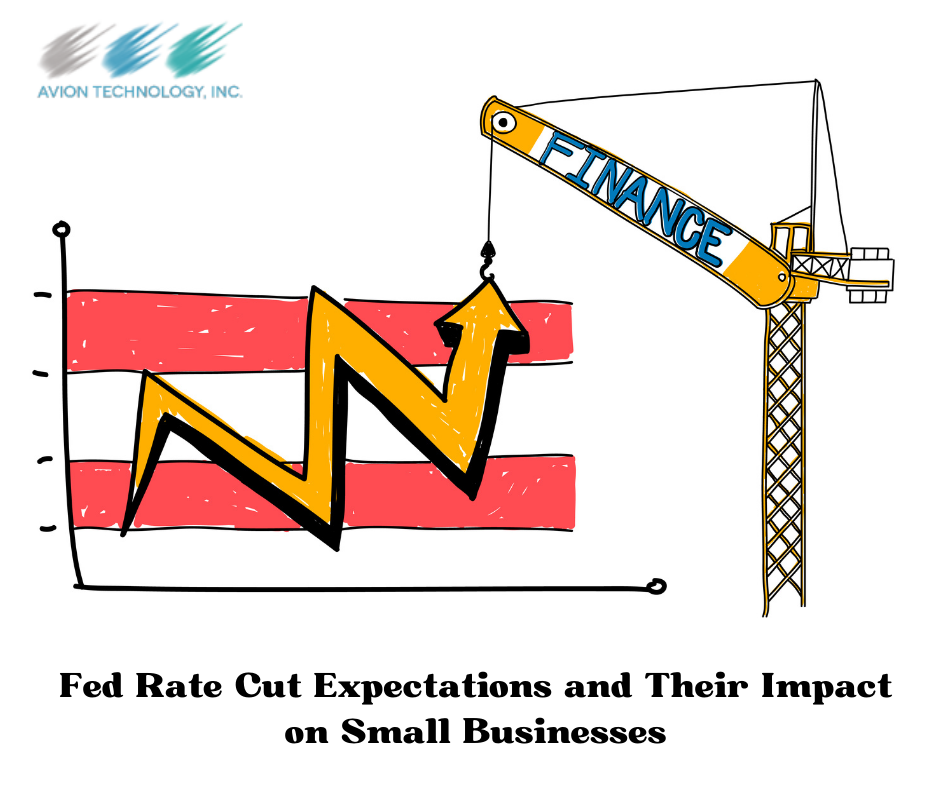
Fed Rate Cut Expectations and Their Impact on Small Businesses
What Are Federal Rate Cuts?
The Federal Reserve uses interest rate adjustments to stimulate or cool the economy. A rate cut typically occurs when the Fed reduces the federal funds rate, the interest rate at which banks borrow and lend to each other overnight. This rate influences various financial products, from mortgages to small business loans. Rate cuts are generally introduced to stimulate economic activity, especially during an economic slowdown or recession. Lower interest rates make borrowing cheaper, encouraging businesses and consumers to spend more. Conversely, rate hikes control inflation by making borrowing more expensive, thus slowing down spending. The Fed has indicated that rate cuts may be on the horizon, and many are speculating on when and by how much.Why is a Fed Rate Cut Expected?
The expectations of a rate cut stem from several factors, such as:- Slowing economic growth: Concerns over declining GDP growth, inflation, and other macroeconomic factors have fueled speculation about a potential rate cut.
- Inflation control: While inflation is still challenging, lowering rates can temporarily boost businesses by making financing easier.
- Global economic conditions: International trade tensions, supply chain disruptions, and geopolitical uncertainties influence the Fed’s decision-making process.
The Impact of a Fed Rate Cut on Small Businesses
Small businesses are vital to the economy, accounting for much job creation and economic output. When the Fed cuts rates, it creates opportunities and challenges for these businesses. Here's how it might play out:1. Access to Cheaper Financing
Perhaps the most immediate benefit of a rate cut is lower borrowing costs. Many small businesses rely on loans to fund expansion, manage cash flow, or invest in new technology. A lower interest rate means cheaper debt, making it easier for businesses to secure capital without heavily impacting their bottom line.- Impact on IT Companies: Many small—to medium-sized IT companies rely on external funding to support research, development, and adoption of new technologies. Lower borrowing costs can enable these firms to innovate faster, scale their operations, and compete more effectively in a tech-driven world.
- Impact on Small-Cap Industries: For small-cap industries, which typically operate on tighter margins, cheaper access to capital could mean the difference between growth and stagnation. Companies in manufacturing, retail, and other sectors can take advantage of lower loan payments to expand their business, upgrade infrastructure, or increase inventory.
2. Boost in Consumer Spending
Lower interest rates affect businesses and consumers. When rates drop, consumers are more likely to spend because borrowing costs on items like cars, homes, and even credit cards decrease. This increase in spending can drive up demand for goods and services, benefiting small businesses across multiple sectors.- Retail Sector: Small retail businesses stand to gain from higher consumer spending, especially if the lower rates make it easier for customers to finance larger purchases. Whether through in-store purchases or e-commerce platforms, increased spending power can significantly boost revenue.
- Service Industries: Service-based businesses like restaurants, salons, and entertainment venues could see an uptick in customer traffic. With consumers more willing to spend, these businesses might experience higher foot traffic, sales, and client retention rates.
3. Increase in Business Investments
Businesses themselves tend to spend more when borrowing is cheaper. Rate cuts can encourage small business owners to invest in upgrading equipment, hiring more employees, or expanding their physical or digital footprint. This leads to more robust business operations and increased competitiveness in a crowded marketplace.- Impact on IT Companies: For IT companies, this could mean more spending on software development, cloud infrastructure, cybersecurity enhancements, and artificial intelligence (AI) tools. Companies in this sector are always looking for ways to streamline operations and increase efficiency, and lower rates could provide the financial flexibility to make those investments.
4. Stock Market Response and Small-Cap Companies
The stock market reacts positively to rate cuts as investors anticipate stronger corporate earnings and economic growth. Small-cap companies with a market capitalization of less than $2 billion often benefit from rate cuts because they rely more heavily on debt than larger companies.- Impact on Small-Cap Stocks: Lower borrowing costs can improve the financial health of small-cap companies, allowing them to finance growth at lower costs. This often results in higher stock prices, benefiting small business owners and investors. Furthermore, small-cap companies in biotech, energy, and consumer goods sectors may see an uptick in investor interest as their growth prospects improve in a lower-rate environment.
5. Challenges for Banks and Lenders
While lower rates benefit businesses looking to borrow, they can be a double-edged sword for banks and lenders. With lower interest rates, banks earn less on loans, which can lead to tighter lending practices. Small businesses, especially those in riskier sectors or with limited credit histories, might find it harder to secure loans despite the lower rates.- Potential Impact on IT Startups: Small IT startups often rely on venture capital or loans to fuel their growth. If banks become more cautious about lending, some of these startups might struggle to access the funding they need, potentially stifling innovation in the tech sector.
6. Increased Competition
With cheaper financing and improved consumer spending, more businesses may look to expand or enter new markets, leading to increased competition. Small businesses must stay agile and innovate to stand out more competitively.- Impact on IT Companies: In the IT sector, this could lead to more competition as new startups emerge and existing companies expand their offerings. Staying ahead requires constant innovation, cutting-edge technology investment, and superior customer service.
Long-Term Impacts of Fed Rate Cuts on Small Businesses
While the immediate effects of a rate cut are largely positive for small businesses, potential long-term consequences must be considered.1. Inflationary Pressures
Sustained low interest rates can lead to inflationary pressures. While rate cuts can stimulate short-term economic growth, they can also increase prices over time. This could mean higher goods, services, and labor costs for small businesses. Business owners must balance the benefits of cheaper borrowing with the risk of rising operational costs in the long run.2. Debt Accumulation
While lower interest rates make it easier to borrow, they also encourage debt accumulation. Small businesses must be cautious about too much debt, as an eventual rate hike could increase repayment costs. Proper financial planning and cash flow management are essential to avoid getting trapped in a cycle of debt.3. Economic Uncertainty
Finally, the possibility of rate cuts reflects underlying economic uncertainty. While lower rates can provide temporary relief, they also signal that the Fed is concerned about the economy's health. Small business owners should be mindful of broader economic trends and prepare for potential downturns or periods of volatility.Sector-Specific Impacts of Fed Rate Cuts
Let's delve a bit deeper into how rate cuts impact specific sectors within the small business landscape:1. IT Sector
The IT sector is capital-intensive and requires ongoing research, development, and innovation investment. Lower borrowing costs make it easier for small IT companies to secure funding for growth and expansion. Moreover, lower rates can spur consumer and business spending on technology, benefiting small IT firms offering software, hardware, or digital services.2. Retail Sector
Retailers, especially small independent stores, are highly sensitive to changes in consumer spending. Lower rates encourage more online and offline consumer purchases, increasing revenue for small businesses. Additionally, retail businesses can benefit from cheaper loans for expansion, renovations, or inventory increases.3. Healthcare Sector
Small healthcare providers, such as independent medical practices or dental offices, can benefit from a rate cut. These businesses often need equipment, technology upgrades, or facility expansion loans. Lower rates can help reduce borrowing costs and increase operational efficiency.Why Small Businesses Should Stay Informed
Fed rate cuts present various opportunities and challenges for small businesses across sectors—from IT companies to retailers and healthcare providers. The key benefits are access to cheaper financing, increased consumer spending, and better business investment opportunities. However, the potential risks of inflation, debt accumulation, and increased competition must also be considered. Small business owners should remain informed about rate changes and be ready to adapt their financial strategies accordingly. With proper planning and a keen understanding of market conditions, businesses can take full advantage of a Fed rate cut and position themselves for growth and success. Whether in the tech industry or running a small retail store, staying agile in today’s competitive landscape is essential. As the Fed weighs its next move, it is time to prepare for what’s ahead—whether that means refinancing debt, investing in new technology, or ramping up marketing efforts.475 adminOctober 7, 2024

DIY Prototyping Or Work With A Designer?
DIY Prototyping:
a. Cost-Effective Solutions: DIY prototyping can be budget-friendly, especially if you have the necessary tools and skills. You can use free or low-cost prototyping software and materials, reducing upfront expenses. b. Hands-On Learning: Taking the DIY route allows you to gain valuable hands-on experience. It's an opportunity to deepen your understanding of the design process, from concept to creation. c. Flexibility and Control: DIY prototyping offers complete control over the design process. You can make instant adjustments, experiment with ideas, and iterate quickly without external dependencies. Working with a Designer: a. Professional Expertise: Designers bring a knowledge base and experience to the table. They understand design principles, user experience, and industry trends, ensuring a polished and professional result. b. Time Efficiency: Hiring a designer can expedite the prototyping process. Professionals are skilled at efficiently translating concepts into tangible designs, potentially saving you time, and allowing you to focus on other aspects of your project. c. Access to Advanced Tools: Designers often have access to premium design tools and software, enhancing the quality and sophistication of their prototypes. This access can result in a more refined and polished final product. Conclusion: Choosing between DIY prototyping and working with a designer ultimately depends on your project requirements, budget constraints, and personal skills. While DIY offers cost savings and hands-on experience, a professional designer brings expertise and efficiency. In some cases, a hybrid approach, combining your DIY efforts with occasional professional input, might be the ideal balance. Remember, the key is to evaluate your project's unique needs and choose the approach that aligns with your goals. Whether you're a hands-on DIY enthusiast or seeking the finesse of a designer, the goal is to create a prototype that brings your vision to life effectively and efficiently. Resource: https://www.toptal.com/designers/prototyping/guide-to-prototype-design https://www.interaction-design.org/literature/article/design-thinking-get-started-with-prototyping https://www.theenglishwoodworker.com/prototyping-yay-or-nay/ Disclaimer: Wherever any material is quoted as sourced from the published text with publishing rights vested in an individual, it is stated that it is a pure quotation and has no intention to claim it as our own. Image Source: www.freepik.com895 adminDecember 19, 2023

Top Design Considerations To Keep In Mind While Designing Your Product
1381 adminDecember 13, 2023

AWS Stack
857 adminSeptember 26, 2023

What Works In Lead Gen In Chicagoland
724 adminSeptember 7, 2023

What Does Not Work In Lead Gen In Chicagoland
747 adminSeptember 6, 2023

The Long Tail Of Good Companies
761 adminAugust 30, 2023

What Venture Capital Firms Look for When Funding Startups
659 adminAugust 23, 2023

Amazon EC2 vs. Amazon S3: Key Differences & Cloud Efficiency
1115 adminAugust 22, 2023

From Design To Development
633 adminJuly 3, 2023

The Importance of Execution in Startup Success
628 adminJune 30, 2023

Building A Founding Team
582 adminJune 29, 2023

When Should You Begin Looking For Funding?
656 adminJune 28, 2023
Top 5 Ideation Tools To Help Detail Out Your Idea
577 adminJune 21, 2023

How to Set Up a Project Acceptance Metric for Your Agency’s Next Project
607 adminJune 16, 2023 Youtube Video

Tattoo This On Your Forearm – Data Is The New Gold
589 adminJune 15, 2023 Youtube Video

User Acceptance Testing Best Practices For Your Agencies’ Projects
648 adminMay 25, 2023 Youtube Video

The Long Tail Of Good Companies
761 adminAugust 30, 2023

When Should You Begin Looking For Funding?
656 adminJune 28, 2023

Do You Have A Testing Process?
Software Testing checks that software or application does what it is supposed to do. The advantages of testing include avoiding defects, reducing development costs, and improving the performance of your software.
Why is Software Testing Necessary?
Software testing is an essential aspect of the software development life process. It involves verifying and validating the functionality, performance, and security of a software application or system to ensure that it qualifies the requirements and specifications of the intended user.
What is the Importance of Testing?
Let's look at the benefits of software testing in the software development life cycle:
Testing should be started in the early stages of the SDLC (Software Development Lifecycle), if testing is not done in the early stages, then the cost of defect resolution is high, and defects are found in the later stages.
In today's competitive market, only a quality product survives for a long time, so application testing is essential in the SDLC to ensure they produce a good quality product.
Testing is essential as its software application cannot be debugged.
The most important thing about testing is that the development environment is different from the test environment, and the testing done in the test environment is similar to the production environment.
Risks of Not Doing Software Testing:
Here are some common pitfalls of not correctly testing software before deployment.
Excessive Expenses:
Fixing software bugs requires immediate attention. This process is easy during pre-launch testing with software development.
An important consideration is the cost of eliminating defects or defects associated with improper software testing. These costs include long work hours, lost productivity, and lost profits during software downtime.
Delayed Product Launches:
For a product to be launched quickly without any error, it must be tested throughout the development process or before it goes to market. While in-house software testing can help catch many bugs before product launch, without third-party software testing, many defects risk detection until it's too late.
Dissatisfied Users:
Software users have certain presuppositions about their products; they expect Software to run fast, work correctly, and protect their private info. If software bugs hamper them from having a positive user experience, they will churn and probably not return.
Finally, it is crucial to have a testing process to ensure the quality and reliability of software products. A well-designed testing process can help identify and fix defects and problems early in the development cycle, saving time and resources in the long run. Implementing a testing process can also improve customer satisfaction and product confidence.
Resource:
https://www.ibm.com/in-en/topics/software-testing
https://www.tutorialspoint.com/software_testing/software_testing_quick_guide.htm#:~:text=Testing%20is%20the%20process%20of,contrary%20to%20the%20actual%20requirements.
https://www.softwaretestingclass.com/importance-of-testing/
https://www.ibeta.com/risks-of-not-testing-software-properly/
Disclaimer: Wherever any material is quoted as sourced from the published text with publishing rights vested in an individual, it is stated that it is a pure quotation and has no intention to claim it as our own.
Image Source: www.freepik.com
476 adminMarch 31, 2023

Your Best Friends To Help Scale Up Your Agency
Your Clients: Client Relationships Are the Heart of your Business. Your clients are your most important asset. Building solid relationships with your clients and providing exceptional service will help you retain and attract new ones. Be sure to listen to their needs, communicate regularly, and go above and beyond to exceed their expectations.
Employees: Your employees are the backbone of your agency. Hiring and retaining talented and passionate employees who share your vision is critical to success. Create a positive and supportive work environment, provide opportunities for professional development, and recognize and reward employee contributions. Considering your employee as a friend can help to build growth, enhance engagement, and make the workplace more productive.
Technology: Technology gives you unlimited access to information. The Internet opens up every one of the details that can help you succeed in your business. Technology can help you streamline processes, automate tasks, and improve efficiency. Choose the right tools and platforms to help you manage projects, communicate with clients, track progress, and analyze data.
Networking: Networking is about collaborating and engaging with people for mutual benefit. Building a solid network of contacts and partners can help you expand your reach and gain new opportunities. Attend industry events, join relevant associations, and collaborate with other agencies and professionals to build your network.
Mentor: Mentorship is a mutually favorable professional relationship in which an experienced person (mentor) imparts knowledge, skills, and wisdom. A mentor or advisor can provide valuable insight, guidance, and support. Look for mentors who have experience in your industry and can offer advice on growing your agency.
In Conclusion:
Growing your agency requires hard work, dedication, and a robust support system. Build strong relationships with your clients, employees, and network, leverage technology, and seek guidance from mentors to help you achieve your goals. You can take your agency to the next level with the right friends.
Resource:
https://www.business.com/articles/8-tips-for-scaling-your-business/
https://99designs.com/blog/marketing-advertising/start-digital-marketing-agency/
Disclaimer: Wherever any material is quoted as sourced from the published text with publishing rights vested in an individual, it is stated that it is a pure quotation and has no intention to claim it as our own.
Image Source: www.freepik.com
543 adminFebruary 21, 2023

Usually, Pain Points While Scaling A Small Digital Agency
Every agency owner wants to work with the biggest clients, build the most prominent team, win the most significant awards, and land the biggest procurement deals.
Unfortunately, the path to sustainable growth is lined with potential pitfalls that threaten your ability to scale and your agency's entire operation.
After reading this blog post, you can find solutions to what is holding your agency back and power through those pain points.
1. You Scale Beyond Your Skills: Your clients refer you to others as you complete projects. These new clients refer you to others; in theory, the whole process snowballs until you're working with the top names in your vertical. Before saying yes, to a big project, take a closer look at what is required to execute the project. Do you need to bring in other talents? Can you partner with another agency that specializes in a new area? It's better to turn down an opportunity you don't deserve — no matter how good it sounds — than to accept it and blow away your carefully crafted brand reputation.
2. Your system is not scalable: Measuring services as an agency is complex. Because it requires a lot of manual effort and skill, you will always need help if you want to scale, but your systems and processes still require significant manual effort. Take the time to get your house in order with more scalable solutions before investing heavily in growth.
3. You Don’t Give Your Past Clients A Graceful Exit: As your agency grows, your service offerings are likely to change. Your price points will vary. How you build your packages will change for the new, possibly more significant, customers you're targeting. As a result, you may have clients on your roster who are not a good fit for your changing agency.
Here's what you don't want to do: keep them limping along with your agency because you're too afraid to tell them your growth means you're not a good fit for their needs.
Growth may be the holy grail of most agencies, but it can be a double-edged sword. By planning to avoid the pitfalls described above, you can improve your agency's ability to scale without compromising performance or integrity.
Resource:
https://www.forbes.com/sites/forbesagencycouncil/2020/01/21/four-pitfalls-most-digital-marketing-agencies-encounter-when-scaling/?sh=46e1105f3440
https://www.autogrow.co/agency-growth-secrets/
https://www.searchenginejournal.com/scale-small-agency-brand/306157/#close
Disclaimer: Wherever any material is quoted as sourced from the published text with publishing rights vested in an individual, it is stated that it is a pure quotation and has no intention to claim it as our own.
Image Source: www.freepik.com
506 adminFebruary 20, 2023 Youtube Video

How To Scale Your Agency In The New VUCA World
Even on the ground, change needs to happen faster. Enterprises are plagued with concerns about the effectiveness of their digital efforts. Despite significant investments in new technologies, success in high performance and business impact usually fail to live up to expectations. Companies must find ways to bridge this gap between digital's enormous potential and the current reality of its sub-par impact.
What does VUCA mean?
VUCA defines volatility, uncertainty, complexity, and ambiguity -- qualities make it challenging to analyze, respond to, or plan for a situation or condition.
Minimizing these traits can significantly improve a leader's strategic abilities and produce better results.
Volatility is the quality of being subject to frequent, rapid, and significant changes. Small triggers can lead to big changes.
Uncertainty occurs when events and outcomes are unpredictable. Cause and effect be better understood, and experience may not apply to the situation. It needs to be made clear which direction events will take.
Complexity involves many issues and factors, some of which may be intricately interconnected. The relationship between things and people is challenging to understand. A change in one place can cause unexpected changes in other things. Multiple layers obscure cause and effect, and it is unclear which factors are important in decision-making.
Ambiguity is a need for clarity and difficulty in understanding a situation. Information can be misread or misinterpreted. In ambiguous cases, not all facts are clear. The goal or intended outcome may only be apparent to some parties involved.
Digital Strategy in a VUCA World:
A digital strategy lays the foundation for delivering the right experience based on real-time intelligence.
There are three impact areas around which companies can align their digital strategy and get the best results:
Customer Experience: Digital transformation allows enterprises to move from creating disparate customer experiences to an integrated, customer-centric approach. With the growing number of options available to do this and the accompanying digital clutter, enterprises need to provide a frictionless and intuitive customer experience. Ensuring a seamless, well-integrated, omnichannel communication strategy enhances the customer experience. Often, customer experiences are determined by how your brand interacts with the customer.
A company's response system can make or break the relationship when customers call, email, or use social media to interact with enterprises.
Acceleration: One of the most significant opportunities in digital technology and accompanying business models is scalability. They can allow you to create and grow new businesses faster. However, you need to find the right product-market fit, develop a suitable business model, make intelligent technology choices, and leverage the ecosystem smartly, where a dynamic strategy, broken down into micro levels, becomes critical to success. Keep in mind that It's a continual change process.
Insight: The speed, volume, and variety of data that is now possible present enormous opportunities for our customers, such as one-to-one personalization on a level, And helping enterprises improve the quality of their decision-making to another level. AI and machine learning bring tremendous opportunities. The opportunities provided by data are unprecedented. It is fair to suggest that digital strategy is data strategy!
A digital strategy stipulation a change in mindset as organizations move from legacy to digital. It is an overall strategy, not just a strategy related to a particular performance or peculiar this is a complete shake-up of the status quo. It is cross-functional. While the system needs to be holistic in a VUCA world, fundamentally, the approach to the process needs to be rethought.
In short, VUCA is accurate, and we're already during massive digital transformation and disruption. Enterprises can step up and leapfrog the competition by adopting ambitious digital strategies.
Resource:
https://www.cioaxis.com/cio-insights/building-scalable-models-in-the-vuca-world-the-cio-view
Disclaimer:
Wherever any material is quoted as sourced from the published text with publishing rights vested in an individual, it is stated that it is a pure quotation and has no intention to claim it as our own.
Image Source: www.freepik.com
495 adminJanuary 17, 2023 Youtube Video

The Power of Having A Team Vs. Doing It On Your Own
Working as a group can be very beneficial. For instance, if you're working on a single project, you might miss out on some great ideas that someone else could share with the group when you see what you've already done. After years of experience in corporate, we decided to share our knowledge with you.
Power of Having a Team:
Productivity increases: The extra people work together, the more they can achieve every day, and the result, the quality of the final product, is usually good.
Profit: By working together as a team, you can do things that would have been incredibly difficult if you had worked alone.
Better decisions: When more people are permitted to have input into the decision-making process, you incorporate more viewpoints and skill sets, often resulting in better decisions.
Improved Customer Service: A team approach works well when it comes to providing customer service. A team environment can facilitate sharing of ideas, knowledge, challenges, and solutions to customer problems, all of which help everyone build better customer relationships.
Knowledge Shared: Working in a company environment allows everyone to learn from each other, which can be especially favorable for those who have worked on the same project for a long time. A better assessment of your success when you work alone can be challenging to assess your success accurately. However, if you work in a team, you will be able to see the impact of your efforts on the overall project.
Doing It on Your Own:
Yes, teams produce great results. Group members recompense for each other's weaknesses and share a broader perspective. Teamwork is organizational strength at work – but it's not the only way.
Working alone has many clear advantages – both to the worker and to the organizations and clients they serve. Many people dream of being their boss.
Less distraction. Focusing on your ultimate goals is easier when you're not distracted by other people's concerns.
More opportunities for personal creativity. With no one telling you what you must or should do, you have a better time being creative and bringing your unique vision to a project.
Specific hours require your attention and dedication when working on a long-term project with others. However, if you are working alone on the same project, you can control when you are working and when you can spend time with your friends and family.
More flexibility, working with others sometimes need you to show flexibility you wouldn't be able to if you were working alone.
Final Words:
Competent managers know their team members. They know who "plays well" with whom. They understand when certain people need a break from the group to work single and when everyone needs to come together.
Independent workers lose the benefits of teamwork. Group workers compromise with others and often tend toward "group think." Fortunately, the individual/team debate is not black-and-white.
Resource:
https://toggl.com/blog/teamwork-vs-individual-work
https://www.hugo.team/blog/team-collaboration-vs-working-alone
Disclaimer:
Wherever any material is quoted as sourced from the published text with publishing rights vested in an individual, it is stated that it is a pure quotation and has no intention to claim it as our own.
Image Source: www.freepik.com
533 adminDecember 22, 2022

Connecting With Industry Experts
If you're looking for experts in your industry, here is something worth a read.
When it comes to identifying experts in your industry, some resources make it incredibly easy. Many tools are available to help you find the ones making waves in your industry.
In today's world, fellow industry connections may seek you out online to learn more about your professional background and interests. Like you, put your best and most professional foot forward. When networking through social media, stay on professional sites like LinkedIn and Twitter and keep your profile accurate, up-to-date, and complete.
Include professional photos, a personal summary, and an evaluation of your skills to give potential connections a better sense of your nature, abilities, goals, and how you can add utility to their network.
Stay in touch with your connections by sharing relevant content such as informative blog posts, inspiring TED talks, provocative industry white papers, or local networking events. In your note, tell them why it made you think of them and how it can provide value.
Monitor Social Media Hashtags: You can reach more audiences using social media hashtags. Trending industry hashtags will help you identify what your industry—and, more importantly, your industry experts—are communicating. You can join the conversation by using the same trending hashtag.
If you're looking to connect with experts in your industry offline, an easy way to communicate with them is through industry organizations and associations. With a quick search, especially on LinkedIn, you'll see what organizations your experts belong to and how they interact personally with their peers. You can also become a member of those organizations and participate in their events and networking socials. Meeting people face-to-face can significantly affect their engagement with you. Since most of our lives are online, building relationships online and offline with industry experts is essential.
Reaching out and engaging with experts in your industry is an integral part of your brand strategy. Experts can help grow your business and interacting professionally with them can help build your brand and industry credibility.
Resource:
https://seapoint.digital/how-to-identify-and-engage-with-industry-experts-2/
https://joe-escobedo.com/6-ways-connect-industry-experts-content/
Disclaimer:
Wherever any material is quoted as sourced from the published text with publishing rights vested in an individual, it is stated that it is a pure quotation and has no intention to claim it as our own.
Image Source: www.freepik.com
590 adminDecember 15, 2022

Top 5 Product Definition Tools
Then, investing in improving and making product definition processes more effective can help. These days, a wide range of tools can help you save money, work more efficiently and deliver better products.
This article will highlight the five best product definition tools to help you identify the right one.
1. Monday.com
Monday.com is an online product definition platform that enables teams of all sizes to plan, track and manage their daily work. From product roadmaps to weekly iterations, monday.com helps teams define clear ownership, analyze and track their position, manage sprints, and collaborate. monday.com's easy-to-use platform makes it easy for the crew to work together from anywhere.
It lets you convert all data into attractive charts and Graphs and efficiently track projects. In addition, it facilitates effective real-time collaboration among your team; Your staff will be able to quickly and easily update the tool and import and export data.
2. Airfocus
Airfocus is the first and only modular product management platform on the market, built specifically for product teams to manage products to market, internal developments, IT portfolios, and more. The flexible platform helps product teams manage strategy, understand user needs, prioritize and align their teams on clear roadmaps.
3. Trello
Trello project management tool that helps product teams collaborate and organize.
Trello’s Key Features include the following:
• Kanban boards and checklists for easy task management
• Automate workflows with Trello's Butler bot
• A mobile app for Android and iOS devices for Product Management, Productivity, Team Management, etc.
4. Jira
Jira Software is a product definition tool that helps teams of all types manage work. Jira was initially designed for bug and issue tracking. Now, Jira has evolved into a versatile work management tool that can handle all kinds of work, including necessary management and testing.
Jira’s Key features include the following:
• Scrum and Kanban Boards for Agile Teams
• Create a roadmap to communicate the product strategy clearly
• Detailed analysis of team performance
• Built-in workflow automation
5. ProdPad
Another excellent product management tool, ProdPad, provides product definition with an easy-to-use way to develop a strategy. Using a drag-and-drop tool, you can create a lean product roadmap and communicate and define your product strategy without getting bogged down in the build process. Prod Pad Key features include:
• Road Mapping,
• Task Scheduling/Tracking
• Customer Management
• Project Management
• Prioritization
• Notifications
Product management can take time and effort. However, using the right product management tools, such as those described in this article, can help you manage, distribute, and track work more quickly, ensuring that you follow all steps and deadlines correctly.
Resource:
https://theenterpriseworld.com/top-5-product-management-tools/
https://theproductmanager.com/tools/best-product-management-tools/
https://clickup.com/blog/product-management-tools/#53-9-figma
Disclaimer:
Wherever any material is quoted as sourced from the published text with publishing rights vested in an individual, it is stated that it is a pure quotation and has no intention to claim it as our own.
Image Source: www.freepik.com
589 adminDecember 1, 2022

When To Look For Funding
Most successful businesses don't live in the moment. They are forever crunching the numbers to determine how they are growing; This number is likely to change over months, years, and decades, including being honest about how much you think you will earn and what you need to spend to reach your goal.
By forecasting regularly, you'll take the first step toward establishing capital, not just when you think you need it, but when you feel you need it.
When to seek funding?
If you run out of cash before the end of your forecasting period or your margins are so tight that any drop in customers could put you in trouble, you need funding. A good general principle is to have at least six months' benefit of fixed costs in your pocket.
It's also worth getting funding when your ambitions require networks and knowledge you don't have. Remember to underestimate the value of having like-minded investors buy into your vision, and never be afraid to turn down a high number from an investor you don't think is a good fit.
If you've already got a buffer, or you're in an industry where growth is notoriously slow, but the value of this growth is high, you can postpone fundraising - sometimes for years. You should never seek or accept funding if you are doing it to tick a box.
Remember that it is always early enough to get funding. So for every early-stage investor, a seed investor is sitting on the other border of the coin.
You need funding; what next?
Remember that funding is not a gift. It's an investment that your backers need a return on—asking too much or being blindsided by recommendations that sound too good to be true can be just as detrimental to your business as not raising enough.
You can always add more later if you need. If you have a track record of forecasting accurately and using capital as efficiently as possible, you will always be an attractive bet for investors.
Resource:
https://www.eu-startups.com/2021/07/when-to-seek-funding-and-more-importantly-when-to-stay-clear/
Disclaimer:
Wherever any material is quoted as sourced from the published text with publishing rights vested in an individual, it is stated that it is a pure quotation and has no intention to claim it as our own.
Image Source: www.freepik.com
456 adminOctober 31, 2022

5 Tips to Scale up your Agency Painlessly
Once they hit the ceiling, some agencies can bloat rather than grow into more prominent brands. You will need more people to meet your Agency's growing demands effectively. With the proper steps and ready to grow your business, even a small agency can become a reputable brand. Here we list the essential steps you'll need to follow when scaling your small Agency up Painlessly.
Step 1: Optimize Your Process & Workflow
While trying to grow their business, they often fail to address the most critical step of optimizing their existing processes, which can be costly as some smaller agencies are still developing and changing their workflow. Outline each process step, from accession and onboarding to campaign tracking. The aim is to make the businesses trackable and repeatable, so you don't have to create a whole new process every time. You can break down each campaign or project into outputs and further down into a list of tasks, making it easier for each co-worker to stay on track with their specific tasks to fulfill their responsibilities.
Step 2: Scale Your Service Offering
Scaling your service contribution is another crucial step in scaling your small Agency into a brand. You will provide your clients with services that complement each other instead of going to multiple agencies for a single campaign, saving them time, effort, and resources as they can do everything in one place.
Step 3: Develop Great Relationships
To grow your small Agency into a brand, you need to create a brand perception that differentiates you from other agencies. For this, you must develop a good relationship with your clients. There are many ways to build great relationships for your brand. With industry experts and peers, you can connect with them on social media, interact with their content, ask them the right questions and interview them. It proves how valuable relationships can be to growing your small Agency painlessly.
Step 4: Expand Your Team
When scaling up your Agency, you will naturally need more people. You'll have more time to focal point on other features of the operation if you delegate talent acquisition. Moreover, an expert recruiter will find it easier to narrow down the most viable candidates for different job roles.
Don't hesitate to invest some time and money in training; this will help strengthen your team with highly-qualified professionals who have received the proper training to perform their duties.
Step 5: Remember the Long-Term
Your focus on the bigger picture is essential when growing your company; This is true even if your sights are set on experiencing rapid expansion in the future. Focus on growing your customer base while simultaneously working to improve your company's internal structure. You'll have a better possibility of successfully growing your business and planning for long-term success. Preparation is required, and organization is vital if you want to succeed; so use these tips to continue on track and successfully brand your Agency.
Resources:
https://www.searchenginejournal.com/scale-small-agency-brand/306157/#close
https://www.bookkept.com.au/5-tips-for-quickly-scaling-your-business-and-achieving-repeatable-growth/
Disclaimer:
Wherever any material is quoted as sourced from the published text with publishing rights vested in an individual, it is stated that it is a pure quotation and has no intention to claim it as our own.
Image Source: www.freepik.com
494 adminSeptember 30, 2022

How to Define your Product Idea in 5 Easy Steps
1. What Kind of Idea is it?
Until you know your idea could be the next Tetrapak or Post-it, an objective opinion will help confirm what chance it has of getting it off the drawing board. Find someone whose opinion you value (preferably an experienced product designer or business-minded person) and ask them.
Following are the types of questions you may want to challenge.
What is the problem?
Starting with the problem it solves:
• How did the idea come about?
• What provoked or motivated it?
• Is it rooted in a situation you encountered or noticed?
• Is it because of something you do?
• Is it technology-led? See something inspiring and want to use it in a different application?
• Have you researched your market? What is its price?
• What benefits does your idea bring to people?
• How would you describe its key features?
Study your competition
• What's already out there and its success
Differentiation
• How is your solution different from others?
• Why choose your brand or product?
• Does it use better materials?
Managers with sufficient experience and a strategic vision of the company, competition, clients, and suppliers are critical to this process.
2. Measuring the Opportunity:
Once you have gathered information about market trends and your strategic objectives, the next step is to analyse the product-ready segments and predict future buying habits as closely as possible.
3. Develop the Concept:
In this phase, the new product concept is refined to meet the needs of potential customers and stand out from the competition. How can this be achieved? Get opinions from leading users who can feel the market's future needs. Also, rely on a team with proficiency in various disciplines: design and production people for technical requirements, marketing experts to reach customers, and finance and management departments to determine the funds available.
4. Testing, Product:
You need to build your prototype and evaluate how well it works. Is your product:
• Offer a series of features that meet customer needs?
• Reach the market at the right time?
• Work efficiently concerning development and production costs?
• Maintain a healthy balance between launch cost and product profitability?
5. Position and Launch:
After designing an in-depth study of the product, the next step is to decide on its strategic position. How do you want potential customers to observe the product? At this stage, one must consider financial, functional, and emotional factors.
Traditionally, functional innovations were a highlight in new products. But this has become less defensible in the current environment, as technological advances allow competitors to respond and innovations to enter the market quickly. When competing products have the same price and features, the difference is mainly due to an emotional factor. It is at the heart of the relevance of brand image, communication, and the so-called intangible attributes of a service or product.
Resource:
https://www.forbes.com/sites/iese/2016/06/01/five-steps-to-develop-a-new-product/?sh=51fc6b492eef
https://www.imaginationfactory.co.uk/blog/post/3968/Idea-to-Product-in-5-Steps/
Disclaimer:
Wherever any material is quoted as sourced from the published text with publishing rights vested in an individual, it is stated that it is a pure quotation and has no intention to claim it as our own.
Image Source: www.freepik.com
526 adminSeptember 27, 2022 Youtube Video

Filing For A Patent
Step 1: Create your invention
The invention is the initial step for an innovator who wants to proceed with their creation, getting critical to get as much information as possible. Some essential questions that the inventor should consider are: what is the field of the alteration, what is the profit, and how will it aid improve currently existing solutions? Not all inventions qualify for patent protection. Section 3 of the Patents Act identifies the subject matter.
Step 2: Patent Investigation and Drafting
Following clarification of the invention, the inventor must do a patentability search which is the better half since it will aid in resolving whether the vision is new or not. The Patents Act requires that all innovations fulfill the novelty requirement. After a thorough search and preparation, one must consider a patentability report and opinion. The patentability search determines the nearest potential previous arts.
Step 3: Submitting a Patent Application
The actual procedure begins with submitting a Patent Application. After preparing the patent application may be filed with the government patent office using the Form 1 application form, creating a receipt with the patent application number. Under Form 2, one can also file a provisional patent application if the innovation is still in its early stages. The advantage of filing a transitional application is that it allows you to obtain a previous date of filing, which is essential in the patent industry. In addition, one has 12 months to file the entire specification. One must utilize the Form 28 application to file for patents for start-ups and small businesses.
Step 4: Application Publication
From filing the whole specification, the application is published 18 months after the filing date. There are no particular essentials for posting from the applicant. If the competitor does not wish to wait 18 months, they can file Form 9 with the specified costs to request early publication. The patent exercise is published one month after the request for an early announcement.
Step 5: Submit a Request for Examination
Unlike publication, the examination is not automatic, and the applicant must request that the patent office study the patent application. Under Form 18, one must file a typical request 48 months after applying. Upon receiving such a request, the regulator assigns the application to a patent examiner, who examines it using various patentability criteria, such as novelty, non-obviousness, inventive step, and suitability for industrial application, and provides the applicant with the First Examination Report (FER).
Step 6: Respond to the Objections
The applicant must react to the patent office's complaint through the First Examination Report. The applicant is required to respond in writing to the objection expressed in the examination report. The applicant can demonstrate the invention's patentability and attempt to dismiss the whole complaint cited. Depending on the circumstances, one may even require physical hearings or video conferencing.
Step 7: Patent Grant
After resolving any objections, the application is submitted for a grant once it is determined to fulfill all patentability conditions, and lastly, the applicant would be given the patent. The issuance of a patent is announced in the patent journal, which is published regularly.
Resource:
https://www.uspto.gov/patents/basics/patent-process-overview#step1
https://economictimes.indiatimes.com/news/how-to/how-to-go-about-patent-filing-in-india-all-you-need-to-know/articleshow/86417211.cms
https://iptse.com/how-to-file-patents-understanding-the-patent-process-in-india/
Disclaimer:
Wherever any material is quoted as sourced from the published text with publishing rights vested in an individual, it is stated that it is a pure quotation and has no intention to claim it as our own.
Image Source: www.freepik.com
549 adminSeptember 8, 2022

Testing – Digital Agency
The testing strategy aids in the creation of a baseline for digital marketing efforts. It aids in discovering the appropriate consumers, marketing channels, providers, and creativity, resulting in highly optimized marketing campaigns that increase revenue while saving money.
When building your business, it can be challenging to determine which marketing methods are most effective with your target demographic. A/B testing and other conversion optimization tactics allow you to experiment with different approaches. This process will enhance your content, deliver the most satisfactory customer experiences, and achieve your conversion goals faster. This AB testing primer will teach you the principles of the technique.
What is A/B Testing?
A/B testing is also known as split testing. A/B testing is a randomized experimentation process where multiple versions of variables (web page, page element, etc.) are shown to different segments of website visitors simultaneously. This will determine which version has the most significant impact and drives business metrics.
At its most basic, A/B testing compares two versions of something to see which works better. Consider the experiments you carried performed in elementary school. You will witness different results if you plant two seeds in two cups of earth and place one in the closet and the other by the window. A/B testing is a type of experimental setting.
Running an A/B test compares a variant to the existing experience allowing you to ask specific questions about changing your website or app and then gather statistics on the impact of that change.
Testing removes the uncertainty from website optimization and allows for data-driven decisions that alter company dialogues from "we believe" to "we know." You can verify that every change provides positive outcomes by evaluating the impact of changes on your metrics.
How Does A/B Testing Work?
To conduct an A/B test, you must produce two distinct versions of the same piece of content. Each content will have a single variable changed, showing these two versions to two similar-sized audiences. The audience will evaluate which one fared better over a set period (long enough to make accurate conclusions about your results). A/B testing allows marketers to see how one version of marketing content compares to another. Here are two sorts of A/B tests you might run to improve the conversion rate of your website:
Example 1: User Experience Test
Perhaps you want to test whether placing a specific call-to-action (CTA) button at the top of your site rather than the sidebar would increase its click-through rate.
To A/B test this concept, construct a second web page that employs the revised CTA positioning. Version A is the current design with the sidebar CTA — or "control." The "challenger" is Version B, with the CTA at the top. Then you'd put these two versions to the test by presenting them to a predefined percentage of site visitors. Ideally, the rate of visitors who view each version should be the same.
Example 2: Design Test
Maybe you'd want to see if altering the color of your call-to-action (CTA) button increases its click-through rate.
To A/B test this concept, create a second CTA button with a different button color that goes to the same landing page as the control. Use the green call to action button variation in your marketing material to obtain more clicks after your A/B test.
Process of A/B Testing
You may begin running tests with the A/B testing framework listed below:
Gather Information: Your analytics frequently reveal areas where you may begin optimizing. Start with high-traffic parts of your website or app to collect data more quickly. Look for pages with low conversion or a high drop-off rate that may be improved.
Identify Objectives: Conversion goals are the metrics you use to judge whether the variant is more effective than the original version. Goals might range from clicking on a link to purchasing or signing up for an email list.
Create Hypotheses: Once you've decided on a goal, you can start brainstorming A/B testing concepts and hypotheses for why you believe they'll be better than the present version. Once you compile a list of ideas, rank them in terms of predicted impact and implementation difficulties.
Create Variations: Make adjustments to an area of your website or mobile app experience using A/B testing tools (such as Optimizely). This may be altering the color of a button, rearranging the pieces on the page, concealing navigation elements, or something completely unique. Many popular A/B testing programs provide a visual editor that makes modifications simple. Ensure that your experiment is tested to ensure that it works as planned.
Run Experiment: Start your experiment and wait for visitors to join in! Visitors visiting your website or app will be randomly allocated to either the control or variant of your experience. This will result in assessing how everyone performs; their involvement with each event is monitored, tallied, and compared.
Analyze the Results: Once your experiment is finished, it's time to examine the findings. Your A/B testing program will display the experiment data and show you the difference in performance between the two versions of your website and whether there is a statistically significant difference.
It does not disrupt your consumers' experience or send out disruptive feedback questionnaires. A/B testing is an efficient approach to measuring your audience's response to a design or content proposal. Simply experiment with something new and let the outcomes speak for themselves. A/B testing reduces the risks involved when undertaking an optimization program. This helps you to significantly improve your website's UX by eliminating all weak links and finding the most optimized version of your website.
Resource:
https://support.google.com/optimize/answer/6211930?hl=en
https://www.optimizely.com/optimization-glossary/ab-testing/
https://hbr.org/2017/06/a-refresher-on-ab-testing?registration=success
https://mailchimp.com/marketing-glossary/ab-tests/
https://blog.hubspot.com/marketing/how-to-do-a-b-testing
Disclaimer:
Wherever any material is quoted as sourced from the published text with publishing rights vested in an individual, it is stated that it is a pure quotation and has no intention to claim it as our own.
Image Source: www.freepik.com
584 adminSeptember 6, 2022
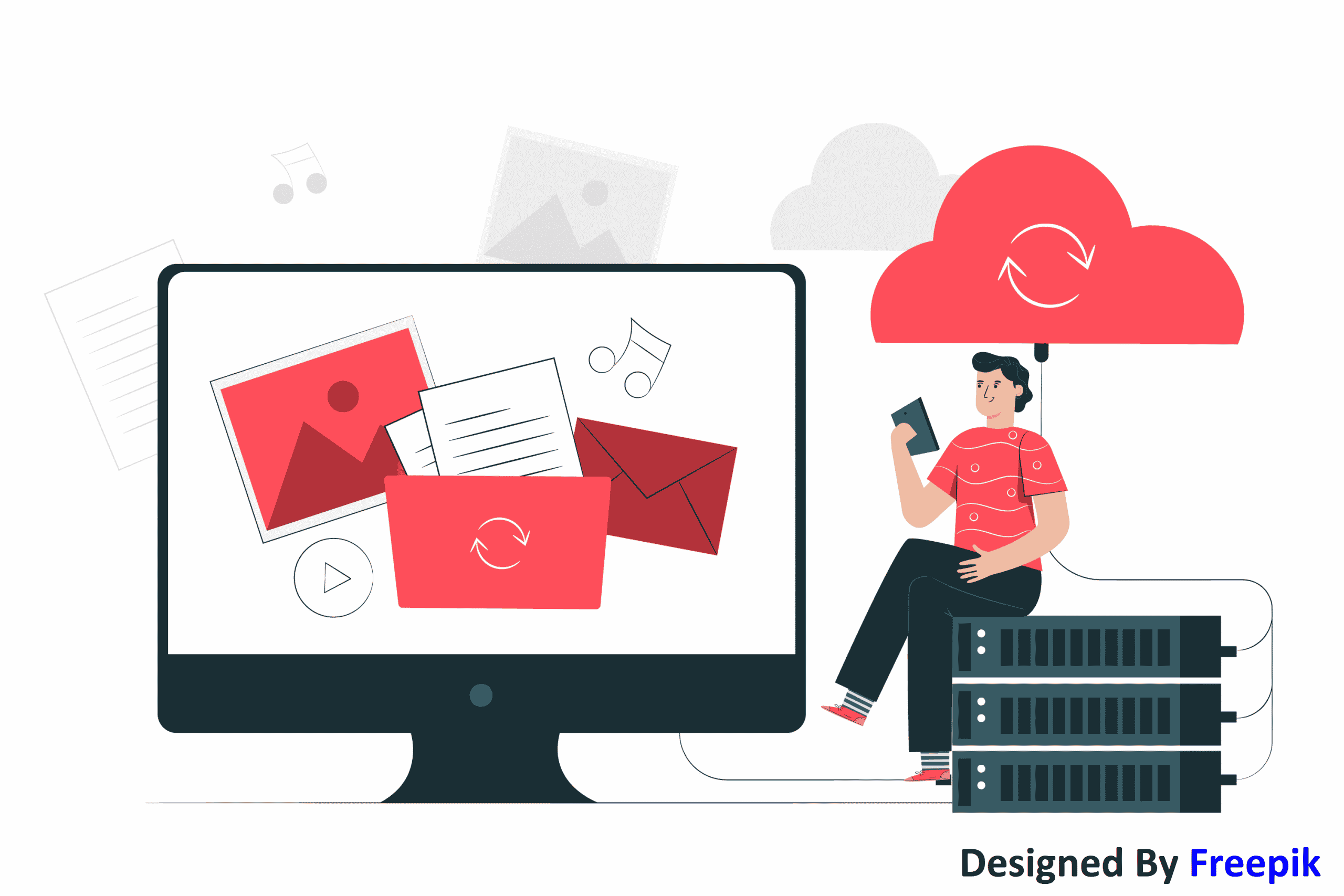
Cloud Hosting
Cloud hosting is a type of hosting that is becoming increasingly popular owing to its easy and useful capabilities. This service hosts websites, manages domain names, and manages databases. The utilization of offshore server resources that can readily expand to accommodate peak demands is what makes cloud hosting more appealing than in-house hosting.
What is Cloud Hosting?
Cloud-hosting is a means of hosting a website or internet service using a remote server rather than hosting the service on your server. The benefit of this is that you no longer have to maintain the server yourself, and you can access your website from anywhere in the world.
This is the process of storing data on the Internet. You can use your computer to access your files and programs at a time when you need them This simply means that your website makes use of the virtual resources of multiple servers to accommodate all aspects of hosting your site. The load is balanced, security is ensured, and hardware resources are virtualized and ready to use as needed. The cloud is a server cluster
How does cloud hosting work?
At its most basic, cloud hosting is classified as both Infrastructure as a Service (IaaS) and Platform as a Service (PaaS). Users are provided with the virtualized hardware resources required to deploy their own software environment while developing a Web application under the IaaS umbrella. On the PaaS side, consumers are already given a software environment in which to deploy and create Web applications more rapidly.
Each server in a cloud environment performs a certain set of duties. In the case that one server fails, other servers act as backups to supply the necessary resources to ensure the continued availability of web hosting services. When you keep your website in a cloud hosting environment, the information is distributed among many redundancy to guarantee that the website is always accessible to both you and your web visitors.
Cloud hosting often includes all aspects of website maintenance, such as cloud storage and database management tools. Many services are created with non-technical users in mind, providing a type of control panel with various features that make establishing and administering a website easier than ever before. Cloud hosting allows you to manage your domains, set up FTP accounts for remote file transfers, modify databases directly, and do a range of other tasks.
Benefits of Cloud Hosting:
• Scalability
Cloud hosting is capable of easily handling massive server loads. This is accomplished by new upgrades, hardware additions, and the application of load balancing technology. There is no need to be concerned about your website being down due to a server crash, since other servers will always pick up the slack at the appropriate moment. It indicates that a website hosted on cloud infrastructure is extremely unlikely to collapse.
• Simple Administration
Cloud hosting takes use of centralized administration of network services and servers, which simplifies management and assures flawless operation without sacrificing quality.
• Storage and size options are both Customization:
Because there is such a large network of servers, the user has practically endless hosting options if the need arises... In other words, you may establish servers with unlimited capacity; they can also be accessed via internet management panels, such as API services.
• Increased Effectiveness:
The utilisation of virtual pooling of available resources improves overall system efficiency, and the performance of individual resources such as software, servers, and networks also contributes to overall system performance.
• Multi-location Capabilities:
Another significant benefit of cloud disaster recovery is its ability to provide multi-site availability. SAN replication enables very quick fail-over as well as the ability to return to the production site following a catastrophic occurrence or disaster recovery test.
Cloud Hosting Solutions:
There are several cloud hosting companies throughout the world, each with its unique set of features and functions to appeal to both non-technical and technical consumers. Just Host, Go Daddy, and iPage are among the most popular. Each provides low monthly costs as well as a variety of options to enhance the value of their service.
Future of Cloud Hosting:
Cloud hosting is frequently used by websites that have surpassed the capacities of their current shared hosting provider. If a website is particularly popular and puts a burden on the resources provided by a shared server, you may need to find an alternative option. Dedicated hosting, in which your site is hosted on its server, is a common solution. The issue with dedicated hosting is that it is substantially more expensive and necessitates a certain level of IT expertise. Many of the benefits of dedicated hosting can be obtained through cloud hosting while avoiding the majority of the issues. To host a single site, cloud web hosting uses a virtual network of cloud servers. It differs from standard hosting in that it stores one or more sites on a single server.
The fundamental advantage of cloud hosting is dependability. When one cloud server fails, other servers might step in to keep the website operational. It is also less prone to hardware failure, and webmasters may scale their hosting resources to accommodate traffic spikes as needed.
As a result, it is the preferred platform for large-scale projects such as enterprise websites, eCommerce stores, online marketplaces, and search engines.
An Overview of Cloud Hosting
To host a single site, cloud web hosting uses a virtual network of cloud servers. It differs from a standard hosting in that it stores one or more sites on a single server. The fundamental advantage of cloud hosting is dependability. When one cloud server fails, other servers might step in to keep the website operational.
It is also less prone to hardware failure, and webmasters may scale their hosting resources to accommodate traffic spikes as needed.As a result, it is the preferred platform for large-scale projects such as enterprise websites, eCommerce stores, online marketplaces, and search
Resource:
https://www.milesweb.com/blog/hosting/what-is-cloud-hosting-how-does-it-exactly-work/
https://www.businessnewsdaily.com/5030-what-is-cloud-hosting.html
https://www.hostinger.in/tutorials/what-is-cloud-hosting
https://www.itproportal.com/features/benefits-of-cloud-website-hosting/
Disclaimer:
Wherever any material is quoted as sourced from the published text with publishing rights vested in an individual, it is stated that it is a pure quotation and has no intention to claim it as our own.
Image Source: www.freepik.com
634 adminSeptember 5, 2022

Product Development
What exactly is Product Development?
The process of bringing a plan from concept through delivery is referred to as product development. Whether launching a new product or improving an old one, the product development cycle begins long before anything is developed. Everything from conceiving the first concept to carefully planning, developing, and putting it to market — and then analyzing its performance — is covered.
Product development has traditionally been associated with the construction phase of the product lifecycle. Requirements were set beforehand and implemented in successive stages for teams following tight waterfall techniques. Most product teams are now adopting a more iterative approach based on agile methods. Customer input is solicited early and frequently, work is distributed in stages, and change is expected and welcomed.
How to Make a Product Development Strategy
A product development plan should encompass the path from concept to market, including as many stakeholders as possible to guarantee their requirements and concerns. These concerns are met and involve the need to ensure the finished product has a market value.
A product team's development stages may be divided into the following categories:
1. Determine Market Demand
The first step in developing a product is establishing if there is a market demand for it. You should be able to identify interest in your product and problems to solve by conversing with consumers and conducting additional research activities such as test marketing and surveys.
2. Calculate the Opportunity
A product should not be established just because there is a need to be solved or a sign of market interest. Not every problem requires a product-based solution, and the consumer must be prepared to pay the right price for the answer.
3. Visualize the Product:
Your team may start getting creative and brainstorming ideas to build solutions that solve the problem while also meeting market demands. This process might result in developing various viable solutions that need evaluation.
4. Test the Solution:
Because prototype design and development can be costly, it is essential to take the time to examine and validate your thoughts. One must evaluate to clear out concepts that aren't worth pursuing further.
5. Create a Product Roadmap:
Once the submitted concepts have been agreed upon, the product management team will develop a roadmap for your project. This team will determine what themes and goals to establish to address the most critical aspects of your situation. This process should result in the development of an early version of the product that can be tested and assessed by market segments. One may also find more information regarding product roadmaps here.
6. Create a Minimum Viable Product (MVP)
Following your product roadmap should result in constructing a product with sufficient capacity for your client base. It may not be the complete product, but it should be enough to test the market and get preliminary feedback.
7. Distribute the MVP to beta Testers:
The MVP should be issued to market segments to gauge interest and gather input. The MVP allows you to start determining marketing messaging, channels, and sales force strategies, extending beyond the product to include package design concepts and price. This critical step establishes a feedback loop between you and your consumer base, allowing them to submit ideas, complaints, and suggestions to help enhance your final product.
8. Ongoing Evaluation and Development:
You can start working on product additions and adjustments using the MVP release's input. You can ensure that your design meets your clients' demands by listening to their input. You can necessitate strategic goal formulation and may require numerous revisions before you have a market-ready final product.
The problematic aspect is product development. It's where brilliant ideas meet reality when utopian visions of the future collide with the technological and human resource constraints that separates dreamers from doers.
To prevent a good product vision from being delayed amid challenging work and obstacles, one must strategize a roadmap to be firmly integrated with Agile planning and maximize the result.
Resource:
https://www.aha.io/roadmapping/guide/what-is-product-development
https://www.twi-global.com/technical-knowledge/faqs/product-development
https://www.productplan.com/learn/what-is-product-development/
Disclaimer:
Wherever any material is quoted as sourced from the published text with publishing rights vested in an individual, it is stated that it is a pure quotation and has no intention to claim it as our own.
Image Source: www.freepik.com
662 adminJuly 12, 2022 Youtube Video

Scaling Up – Small Businesses
If you know what you're doing, scaling the sale of actual items isn't even that difficult. Again, raise your marketing investment, and as demand rises, expand your stock and adapt your fulfillment logistics correspondingly. But what about growing an agency? That's a whole other tale.
Signs That It's Time to Expand and Scale Your Agency:
It's not always evident that you're ready to expand your web marketing firm. However, you might be afraid to scale things up; this is reasonable, especially given how many small firms fail because they grow too rapidly.
By keeping an eye out for you're getting inquiries from other markets, Leads Are Skyrocketing; You're Turning People Away these indicators, you may avoid scaling before you're ready. These are all excellent signs that it is time to learn how to expand your agency and take it to the next level.
How to Scale Your Digital Marketing Company:
Make an Entry-Level Positioning System:
Finding people to fill new entry-level roles will be a significant element of expanding your organization. When you begin to prepare to grow, make sure you have a strategy for evaluating entry-level candidates and identifying people who appear to be a good match for the role.
Hire topic experts:
The digital marketing industry teaches you a lot about developing and operating a marketing business. You've also probably discovered that you're not an expert on specific subjects.
Consult with a Recruiter:
Don't think you have to tackle the recruiting process alone if you're having trouble finding the right personnel to help you expand your firm. Consider hiring a recruiter. They can assist you in finding the best people to fill specific jobs and identifying those who provide the most value to your company.
Accurately Track Time:
Along with raising your rates, you should figure out where you're losing money and which clients, staff, or tasks aren't as profitable as they should be because overly demanding customers and incompetent personnel consistently cost agencies money. It's partly so because those losses might quickly go under the radar.
It might be challenging to determine whether clients are squandering your time or when an employee isn't pulling their weight or working too slowly. Determine where you're losing money by tracking time to the minute and adjusting procedures as needed.
Simplify the Client Onboarding Process:
If you don't already have a procedure to make customer onboarding easier, now is the time to start. When you start growing your business, additional clients will always come in. Ensure your system allows you to quickly onboard them so that consumers aren't left waiting for someone to contact them about their order.
Form Beneficial Collaborations:
Begin working on building productive ties with other professions. It is easy to recruit new clients if you collaborate with industry experts and people who operate firms that complement yours, making it easier to address the demands of your current clientele. Look for colleagues who offer services that your organization does not. Consider what you can offer them to make your collaboration as mutually beneficial as feasible.
Take A Step Back:
Last but not least, after your agency has effectively scaled, it is generally advisable to withdraw oneself from the front lines. Avoid micromanagement. You hired the people you did for a purpose. Either work to your strengths or take a step back and allow your team takes over.
Resource:
https://www.outbrain.com/blog/scale-your-marketing-agency/
https://mention.com/en/blog/scale-digital-marketing-agency
https://digitalagencynetwork.com/how-to-scale-your-digital-marketing-agency-to-the-next-level/
Disclaimer:
Wherever any material is quoted as sourced from the published text with publishing rights vested in an individual, it is stated that it is a pure quotation and has no intention to claim it as our own.
Image Source: www.freepik.com
524 adminJuly 8, 2022

Ideation
Ideation is a creative process where designers explore ideas in sessions (e.g., brainstorming, worst possible idea). It is the third level of the Design Thinking methodology. Participants gather with open minds to generate ideas in response to a problem statement in a supported, judgment-free environment. Ideation is a third stage of the design thinking process that encourages open thinking and risk-taking to generate solid and distinct ideas. Ideation differs from a typical concept planning session because it allows for independent thinking and teamwork. In most idea brainstorming sessions, team members become weighed down by listening to a superior's strategy. Their thoughts become focused in one direction on hearing from the superior, and their strengths and inventiveness are lost. As a result, the team generates pet ideas that support one significant idea while overlooking the capabilities of each member that should be utilized.
Finding New Perspectives is the Goal of Ideation Sessions:
It isn't easy to obtain the perspective needed to identify design solutions. You'll need a dedicated location for standing back and seeking and seeing every view to conducting good ideation sessions. But first, your team must identify the appropriate problem to treat. After "Empathize" (gaining user insights via research/observation) and "Define" (identifying links/patterns within those insights to produce a meaningful and feasible issue statement or point of view), Ideation is the third phase of the design thinking process.
Before looking for ideas, your team requires a clearly defined challenge to a focused problem statement or point of view (POV) to motivate and guide everyone. "How might we...?" queries, such as "How might we build an app that searches for affordable hotels in safe neighborhoods?"
Assist in reframing difficulties and encouraging effective collaboration toward potential solutions to bring people together to generate ideas and break down barriers. It would be best to have a trained facilitator and a creative environment, which includes a ready room with posters of personas, relevant information, etc. Your team will also need guidelines, such as a 2-hour time limit, quantity-over-quality concentration, a ban on distractions like phones, and a "There is no bad ideas" mindset.
Ideation Techniques:
Because of the nature of Ideation, it is critical to adopt appropriate strategies for the type of thoughts you are attempting to develop. The plan you select must also meet the needs of the ideation team, their levels of creative output, and their previous experience with ideation sessions. Here's a rundown of the essential ideation techniques:
Brainstorm:
Brainstorming is a well-known approach that uses group interaction to generate solutions by building on one another's ideas. Use this strategy with a group of five to seven people for more effective brainstorming. Limiting your brainstorming session to 20 minutes and having a minor group helps keep the topic focused. To develop more diverse ideas, try to include participants from various backgrounds or perspectives.
As the tagline "1+1=3" suggests, ideas are combined to form one good idea. Participants should be able to discuss their thoughts without fear of being criticized freely.
Brain Dump:
A brain dump is similar to Brainstorm; however, it is completed independently. The participants jot down their thoughts on post-it notes and then share them with the group.
Storyboarding:
When designing or optimizing processes, storyboarding is a valuable tool. Participants build a visual tale that illustrates their ideas and potential outcomes, allowing them to understand areas of improvement. Follow your consumer through the process, including the effects of your solutions.
Mind Mapping
Mind mapping is a visual technique that develops linkages between the problem and alternative solutions your team is attempting to address. Write your problem statement or a high-level term linked to the situation in the center of a piece of paper or whiteboard. You will detail any related solutions or ideas raised by the team in the area surrounding that statement and use lines to connect them to the central theme. Next, add a layer that outlines how you will implement the recommended solutions, tying it to the preceding layer.
Worst Possible Idea:
The worst idea technique challenges participants to think of their worst possible solutions to a problem. While a brainstorming session supports all ideas, some people may be concerned about potential criticism; this strategy alleviates that concern by welcoming terrible ideas. It frequently creates a more enjoyable environment as people try to entertain one another and use their ingenuity to develop outrageous ideas.
Questioning Assumptions:
Many sectors have preconceived notions about accomplishing things, but this technique challenges those assumptions to generate more innovative ideas. As a result, you might choose to apply this strategy to improve an existing product or create a new one. Consider what you want to solve or develop, then brainstorm 20 to 30 assumptions about that product, service, or idea. These assumptions can be both optimistic and wrong, and they should apply to all elements of your company.
Final Thoughts
Ideation is frequently the most exciting step of a Design Thinking project since it allows for practically available free-thinking within the specified subject. The goal of the Ideation stage is to produce a vast number of ideas — ideas that may inspire newer, better ideas — that the team can then filter and narrow down to the best, most practical, or most original ones. Numerous excellent ways can assist the design team during the Ideation sessions.
Resource:
https://www.interaction-design.org/courses/design-thinking-the-beginner-s-guide
https://www.interaction-design.org/literature/topics/ideation
https://www.indeed.com/career-advice/career-development/ideation-techniques
https://www.nngroup.com/articles/ideation-in-practice/
Disclaimer:
Wherever any material is quoted as sourced from the published text with publishing rights vested in an individual, it is stated that it is a pure quotation and has no intention to claim it as our own.
Image Source: www.freepik.com
579 adminJune 14, 2022

Top Tools of the Trade
1] Perl:
Perl has a more malleable and straightforward language. It has a shell language, a simple database, Interfaces, surprises, and a sound expression engine. It is an essential tool for building other devices.
2] HP Jet Admin:
There is no better tool than the hp’s jet admin. Management software jet admin 7.5 is running as a secure web application accessible from any browser.
3] Symantec Ghost:
Symantec Ghost is a disk that cloning and backup tool developed by Murray Haszard for binary research. This technology was acquired in 1998 by Symantec.
Symantec Ghost is an award-winning software solution for imaging and deploying desktops, tablets, and laptops servers.
Resource:
https://www.infoworld.com/article/2665101/top-10-tools-of-the-trade.html
Disclaimer:
Wherever any material is quoted as sourced from the published text with publishing rights vested in an individual, it is stated that it is a pure quotation and has no intention to claim it as our own.
Image Source: www.freepik.com
489 adminJanuary 19, 2022

4 Ways to Protect Your Customer’s Data
Considering that hacks are on the rise, and security incidents are not uncommon, it’s important that your company continues to explore methods to shield your customer’s data from malicious actors. Here are four tips when it comes to protecting your customer’s data.
1. Choose the Right Tools
Businesses are collaborating and sharing information with team members, vendors, and various partners on a daily basis. This is a necessity for businesses with remote staff members, which have increased since the onset of the COVID-19 pandemic.
In order to safeguard against this as a security flaw, companies must choose collaboration and communication tools that are secure. When choosing a cloud storage provider or deploying project management tools, companies should be prioritizing security.
Any digital tool that allows employees or clients to access documents or request information from databases should be analyzed for potential risk. A major component here is also the training around these tools. When team members understand the technology you’re using, the company as a whole is better protected.
2. Replacing FTP Scripts
There are many organizations that are still exchanging information using custom programs or scripts. Being that this methodology is now considered outdated, this process presents a security risk.
The architecture of FTP scripts is typically very vulnerable, and offers limited control of data. As a result, they are not accepted by the primary compliance regulations, and their use should be stopped immediately. As a replacement, consider secure FTP solutions that guarantee confidentiality. Using an alternative will improve security while providing total control and traceability of data movements, which ensures compliance with regulations.
3. Locate Compromised Devices
The prowess of modern hackers should not be overlooked, which is why any device with an internet connection should be considered “at risk”. Whether it is a work computer, personal smartphone, or even a connected smart device, hackers are looking to exploit the technology to acquire valuable data from businesses and their customers.
Businesses must remain proactive, and work to locate any compromised devices in your internal network. Additionally, it is important to consider the deployment of solutions that focus on network traffic inspection and threat detection. There are a number of options on the market available, and they provide advice on what is needed in order to avoid the threat of a data breach.
4. Data Encryption
Data that is being stored or shared should always be encrypted, as this ensures its confidentiality. The major benefit being that encrypted data is unreadable should it be accessed by someone without permission. This is why data encryption is so powerful.
File transfer software encrypts data in transit, and rights management solutions help control access to documents and information, despite the location of the data. There are a number of options available when it comes to encryption software. Always make a decision based on your specific needs and the desired outcome.
Disclaimer:
Wherever any material is quoted as sourced from the published text with publishing rights vested in an individual, it is stated that it is a pure quotation and no intention to claim it as our own.
We suggest that businesses look at their vulnerabilities and constantly work to improve their data protection. Avion Technology specializes in assisting throughout this search for improved data security solutions. To learn more about our unique approach to programming, click here
Image Source: www.freepik.com
529 adminJune 28, 2021

6 Project Management Tools for Agencies
Every agency is different and necessitates different solutions. Luckily, there are a myriad of options available, each with its own user interface, user experience, and set of tools. We advise all agencies to consider the following questions before selecting and deploying a project management tool.
- Are you concerned with scalability?
- Do you need a tool with flexibility?
- What features are most important to you?
- How will your clients use the tool?
- What integrations are required?
- Do you have a training process?
- What is your goal for the tool?
Approaching the decision-making process with the right questions in mind will ensure that you choose the tool that is best for you and your team. Being that there are so many options on the market, we want to take a little time to look at the top six tools. If any of these tools seem helpful, we implore you to do some more research and really dig into the features and reviews of each option.
Basecamp
Basecamp has solidified itself as one of the most common choices among agencies that seek a simple management and communication tool. It allows for users to assign tasks to individuals or groups, discuss projects on message boards, generate reports for a team’s capacity, and provide an outward facing screen for clients.
Asana
Asana, like most project management tools, allows for teams to manage projects, store files, and collaborate on the platform. Project planning is fairly simple, allowing for instructions to be added, deadlines to be set, and assignments to be made. Asana’s visual kanban option makes it easy for tasks to be moved from stage to stage, as Asana’s visual elements bring clarity to project tracking.
Features include the assignment of users to tasks, communication organized by task (outside of email), customizable calendars, customizable fields for team members to capture information and track status.
Teamwork
This project management tool was built for both in-house and remote agency teams. It has become known for its ability to simplify collaboration through customizable workflows and easy to use project templates. Many cherish this tool for how intuitive it is for users when it comes to visualizing deliverables and creating lists of tasks.
Features include, customizable templates, task tracking, visualized milestones, real-time status updates, and in-app communication.
Trello
Many people consider Trello a combination of a digital whiteboard and pinboard. Users can create tasks that are pinned to custom “boards”, which can then be worked on individually or as a group. The tasks can be commented on, shared, assigned, and attachments can be added. Boards can then be placed in different areas so that projects are transparent and team members are accountable for their deadlines.
Features include, creation of custom boards and tasks, checklists within tasks, task assignments with attachments and deadlines, commenting on tasks, and the creation of public or private links for shareability.
ProofHub
When an organization like NASA is using your project management tool...it must be effective. Proofhub combines many features and aims to eliminate the need for too many tools within your business. It allows for project planning, collaboration, organization, and makes it easier to deliver projects on time.
Features include, online proofing to cut back on feedback time, de-stressing the task management process, Gantt chart visualizations, and an effective mobile app for both Android and iOS users.
Scoro
Scoro has built a name for itself around how comprehensive of a tool it is. It is being deployed by both professional and creative services companies in order to bring structure to workflows. This goes beyond project management and into a business management solution, which includes tools for automated quoting and billing.
Features include, one platform for team members and clients, seamless workflows that organize all silos within a business, real-time overviews and reports, and integrations with platforms such as Outlook, Mailchimp, Dropbox, and more.
In Conclusion
As a programming partner, we understand the monumental importance of strong project management. The tools that you choose will help provide a structure that can elevate your operations. Start by asking yourself the right questions in order to properly gauge your organization’s needs. The answers to these questions will set you on the path to uncover the project management tool that is best for your agency.
Disclaimer:
Wherever any material is quoted as sourced from the published text with publishing rights vested in an individual, it is stated that it is a pure quotation and no intention to claim it as our own.
We’ve successfully completed over 700 projects for our clients over the last 12 years. A number of these clients have gone on to become successful VC funded ventures. If you’d like to learn more about our unique approach to programming, click here.
Image Source: www.freepik.com
501 adminJune 22, 2021 Youtube Video


What Works In Lead Gen In Chicagoland
724 adminSeptember 7, 2023

What Does Not Work In Lead Gen In Chicagoland
747 adminSeptember 6, 2023
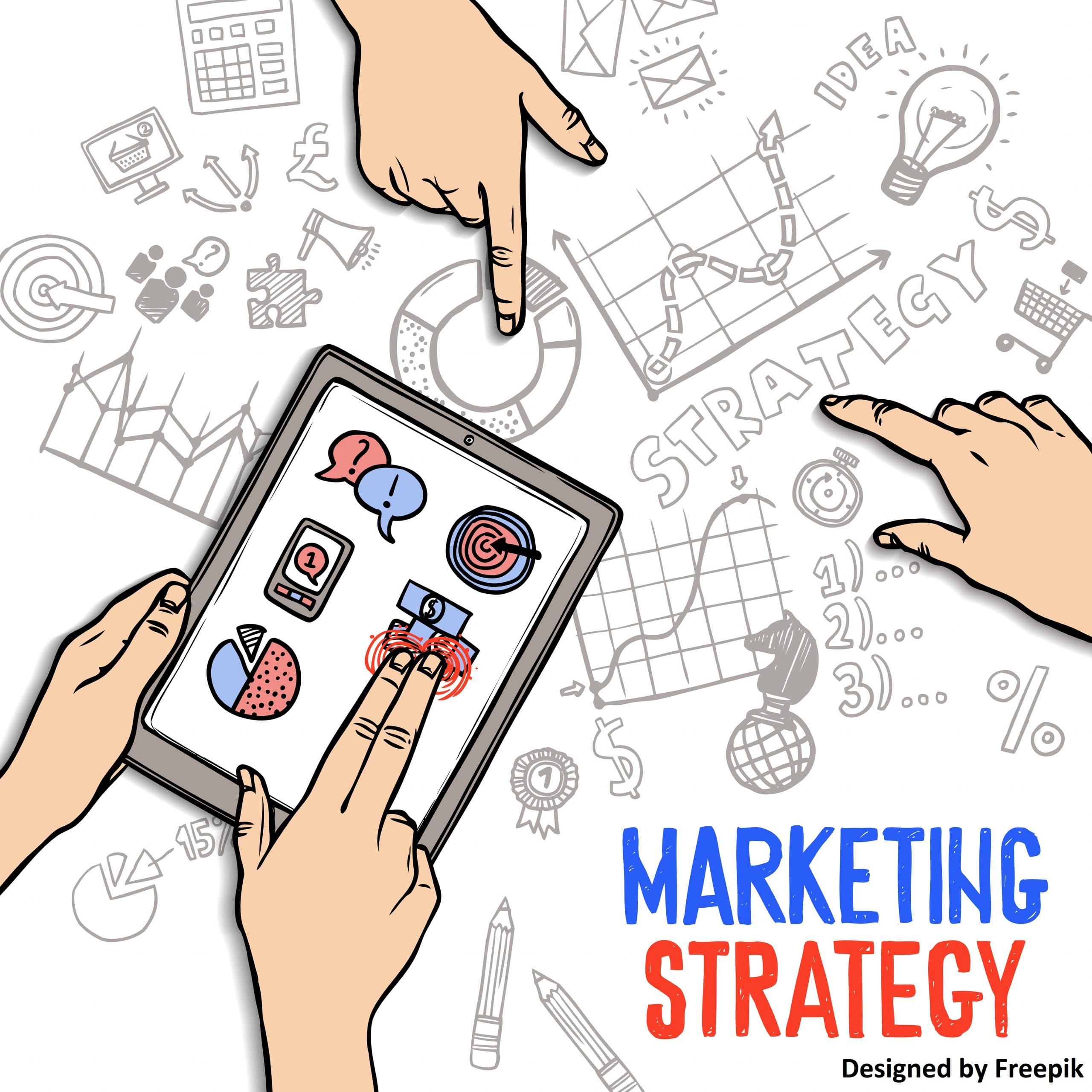
DIY SMM Strategies For Your Chicagoland Small Business
501 adminApril 13, 2023

Firing Your Worst Agency Clients
When you ignore bad client behavior, you are sending a clear message to your team - that revenue from one client is more important than the happiness of your employees. You are creating a vast employee retention risk.
Let's see how to decide and then how to proceed.
How do you decide to Fire your worst agency clients?
Here are some of the problems you might face with your worst agency clients:
Broken client communications: You work on client projects but need more support or interest from them.
Unrealistic demands: This is a common situation. Some clients need to pay more attention to the original scope of work. They become aggressive to get their way.
They threaten you and your employees, Block payments.
No project support: You find yourself running in circles with this client. They veto all your ideas. But they never provide insight to move the project forward. Poor anger management: Misbehaviour with you or your team member, bad temper attitude, None of these make a great client. Late payments: No one likes constantly chasing invoices. Not to mention struggling with cash flow as a result. Although you can often overcome this challenge, some clients need better payers. And sometimes, it might make more sense to replace them.
Firing a Client While Practicing Warmth & Competence:
Once you've decided that firing the worst agency client is correct, you want it to go as smoothly as possible, follow these steps:
Pick up the phone: Don't dismiss agency clients via email—a call conveys warmth and is more personal than an email.
Consider transit time: Ideally, give at least 30 days' notice so the customer is safe.
Send a recap email: Reiterating what you discussed on the call. Remember to include the next step. Unless the client is unethical or abusive, we recommend helping them find a new agency. At the very least, this includes offering them some names to contact.
Stand firm: Once you decide to fire a client for a reason, stick to the decision. Flip-flopping shows your team that you lack courage—and that's not good for employee retention.
Conclusion:
Firing a client takes work. Such a business decision can carry heavy emotional weight. But at the same time, toxic customer relationships can affect your agency's growth. Good luck!
Resource:
https://sakasandcompany.com/how-to-fire-bad-clients/
https://agencyanalytics.com/blog/how-to-fire-client
Disclaimer: Wherever any material is quoted as sourced from the published text with publishing rights vested in an individual, it is stated that it is a pure quotation and has no intention to claim it as our own.
Image Source: www.freepik.com
540 adminFebruary 17, 2023
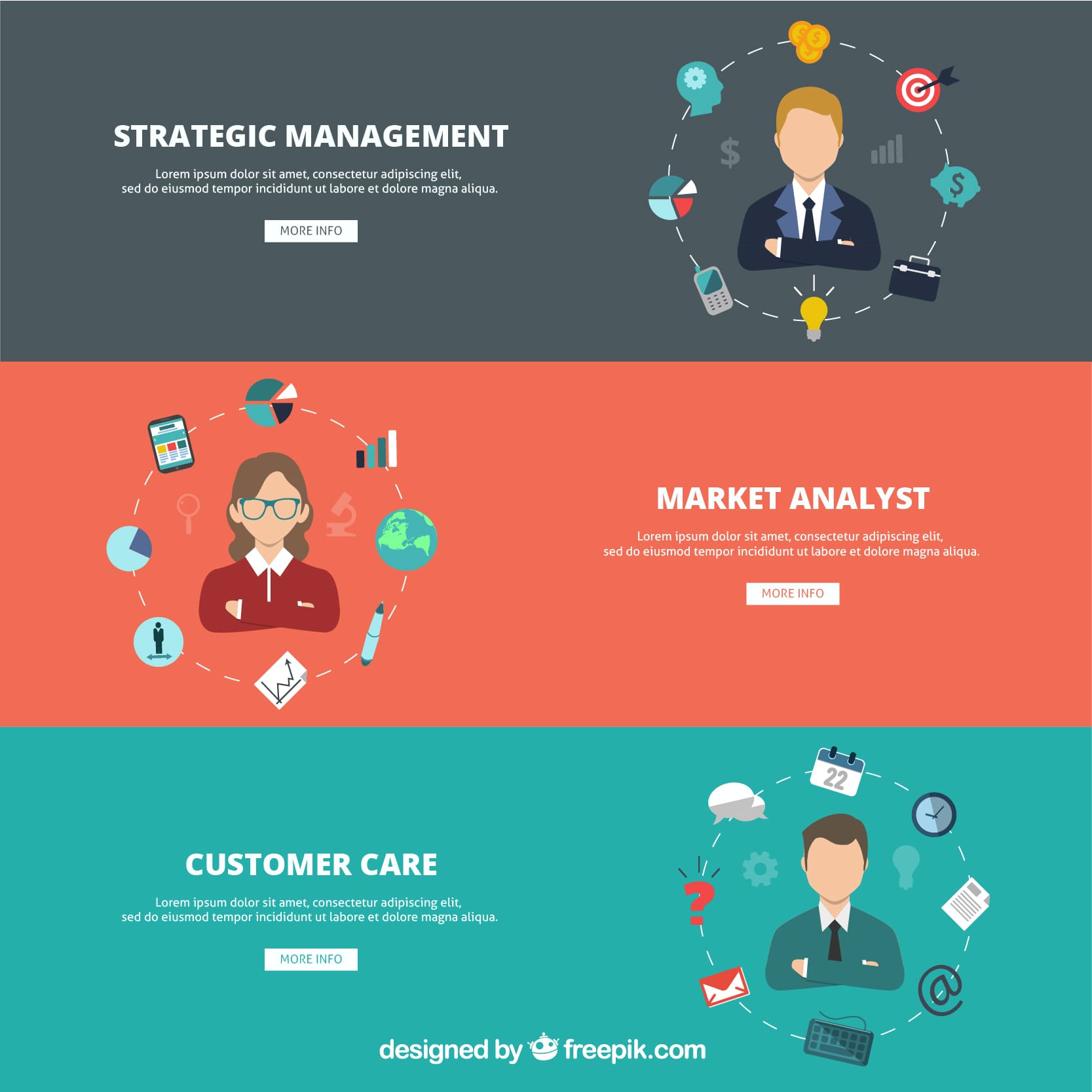
5 SMM-Based Reputation Management Strategies For Your Chicagoland-Based Small Businesses
According to sources majority of marketers use social media to promote their business. Social media is only getting big. If you're not marketing on it, you're missing out on a massive chunk of your target customers.
Here are five critical social media marketing strategies to give them a much-needed facelift this year.
Create a Plan & Stick to It: With a strategy, your content is likely to stay on track. Set a limit for published tweets daily and adjust daily numbers, but you have to hit a number, even as small as four tweets per day gives you a benchmark and at least a goal.
Tip: Check how often your competitors post and do industry research to find the right content to publish daily on each channel.
Treat each channel as an Individual Entity: Treat each channel as a separate entity. Content can be spread across all channels. LinkedIn has a more business-focused audience looking for in-depth, educational content. Instagram has an audience likely looking for engaging visual content. Please pay attention to your follower demographics on each channel and publish social media copy and content that appeals to them.
Customer Service: Trust is lost if a visitor tweets to your handle or posts on your Facebook page and has yet to receive a response. Because of your need for more communication, disgruntled potential leads are now turning to your competitors to find answers to their questions.
Negative feedback also needs to be addressed, preferably with patience and respect. But think of your social channels as an opportunity to show how great you are to your customers.
Find distribution channels and critical times to post: You must post on social media when most of your audience is online. The research will show all the social media platforms on which your audience is most active and engaged with your niche and brand.
Your marketing strategy should note your brand's purpose on each social media platform. You can then adapt your content and actions accordingly on each platform.
It would help if you studied your audience and when they are most active on social. Integrating these findings will enable you to identify precisely when your brand should post on each channel to ensure you connect with your target audience.
Track your social media metrics: Tracking is often considered tedious and time-consuming. It can be, but it will only take a few hours per month. Set aside time every month (preferably on the first day of the month) to review essential metrics for your business. Here are some stats to focus on: number of posts, follower growth, clicks to your site/products, page views, post impressions, likes or shares, etc.
Resource:
https://www.wordstream.com/blog/ws/2014/01/09/social-media-marketing-strategies
https://www.brandwatch.com/blog/the-5-step-social-media-marketing-strategy/
Disclaimer: Wherever any material is quoted as sourced from the published text with publishing rights vested in an individual, it is stated that it is a pure quotation and has no intention to claim it as our own.
Image Source: www.freepik.com
485 adminFebruary 10, 2023 Youtube Video

Strategies To Improve Your Agencies Margins
Even without adding more clients, there is much room for improvement.
Today, we’re sharing strategies to improve your bottom line and make you more money.
Offer High Value, Low-Cost Upsells, and Cross-Sells:
Getting a prospect to become a client is the hardest part, but offering upsells and cross-selling is accessible once they cross that line. Think about how much extra cash is lost in the grocery store checkout line. You've already bought everything you need, but additional offerings of chocolate, gum, and magazines add to the total purchase price and consistency. The same can happen in your business. We've tested it and made hundreds of thousands of dollars by offering small upsells.
Outsource Manufacturing to Reduce Overhead:
Instead of paying overhead, you need to hire employees, taxes, rent, coffee, or Friday lunch, and you can outsource deliverables for a fixed price and pay your employees to manage the process. It's probably not worth your time to bring anything that isn't your core service in-house (at least not at first), and you may be able to improve your margins by outsourcing dramatically.
Offer Premium Packages:
A certain percentage of your clients will always be willing to pay more for the better service you offer. Time and again, we have been experiencing this in our own business.
When we started our business, our 1st product was $100, and someone bought it. Then we made a version that cost $600"¦ and someone bought it. Then we combined several products and offered a high-end package at $500, and someone bought it. But it would never have happened if we didn’t have the offer. It was relatively easy to execute, but we had to offer it.
Try offering a more Costly, premium package and watch your revenue and margins grow!
Productize Your Services and Create SOPs:
When you customize every product, running a scalable operation that hurts margins becomes increasingly challenging. But if you can productize your services, you can define your processes and scale. It allows you to make more sales, reduce costs and ensure you get what you promised to the client.
For example:
If you run an email marketing organization, you can sell a package of several emails per month.
If you run a web design agency, you can sell websites through multiple pages.
When you manufacture and package your services, you can eliminate all the margin wasted from customization.
If you follow these tips, your margins will increase, and your business will run more smoothly.
Resource:
https://www.woorank.com/en/blog/increase-agency-margins
Disclaimer: Wherever any material is quoted as sourced from the published text with publishing rights vested in an individual, it is stated that it is a pure quotation and has no intention to claim it as our own.
Image Source: www.freepik.com
462 adminFebruary 8, 2023

Is The Agency Market Saturated?
In this blog, we are talking about Digital Marketing agencies:
A digital marketing agency is not saturated, but it is highly competitive. With the growing number of online businesses vying for customers' attention, it can be challenging for digital marketing agencies to differentiate themselves and stand out from the competition. However, it also allows digital marketing agencies to be creative and innovative in reaching consumers. Many businesses still need to start using digital marketing effectively to reach their target audience, leaving ample room for the industry to grow.
One way for a digital marketing agency to stay ahead of the competition is to practice in a specific niche or industry. For example, an agency may focus on serving the needs of small businesses or specifically serve the dental industry. By focusing on a specific sector, an agency can understand the unique challenges and opportunities in that market and offer more effective solutions to clients.
Another way to stay competitive is constantly adapt to technological and consumer behavior changes. The digital marketing landscape is continually evolving, and agencies must be proactive in keeping up with the latest trends and best practices. It could include investing in new tools like AI and machine learning or incorporating new channels like voice search optimization or chatbots.
Finally, the digital marketing industry is not saturated but highly competitive. By keeping up with or constantly adapting to changes in technology and consumer behavior, digital marketing agencies can stay ahead of the competition and continue to grow their business.
Resource:
https://www.adlibweb.com/is-the-digital-marketing-field-saturated-heres-what-you-need-to-know/
https://www.rightlydigital.com/digital-marketing-is-a-saturated-field/
Disclaimer: Wherever any material is quoted as sourced from the published text with publishing rights vested in an individual, it is stated that it is a pure quotation and has no intention to claim it as our own.
Image Source: www.freepik.com
701 adminFebruary 7, 2023

Margin Killers To Watch Out For While Running A Small Digital Agency
Generally, the higher your net profit, the better your business is doing. If your profit margin is higher than the industry average, your Agency has a competitive advantage. In other words, your Agency is doing well compared to others running similar operations to yours.
With that knowledge, it's clear why business owners need to create a plan to increase their Small Digital Agency net profit margin.
Here are three tips to improve your Agency's profit margin:
1. Market to your Existing Customers: Did you know that marketing to your existing customers costs much less when attracting new customers? It is because existing customers are already converted, making it easier to upsell and cross-sell them. Maintaining their positive experience and effectively targeting their needs is essential to keep them returning and recommending your brand to others. They are creating an effective loyalty program for your existing customers to encourage them to return or spread the word about your Agency to their circles. Loyalty programs can come from cashback, discounts, or exclusive sales. Offering this to existing customers will increase their chances of converting them into your brand evangelists.
2. Remove Unprofitable Products from The Shelves: Review the performance of your products and determine which ones are generating less profit. It is only possible to continue to produce a particular product if it sells well in the first place. As much as possible, ensure all your products contribute to your profits. Doing so will help you eliminate some costs and improve profitability.
3. Streamline to Reduce Overhead Costs: Streamlining operations is one of Small Digital Agency's most significant drivers of profitability. Review your agency operations and identify areas where you can cut costs.
You can also streamline your digital agency operations by automating tasks. For instance, using a CRM solution to automate sales processes could save your staff time and avoid human errors. Automating aspects of your customer service process can also speed up issue resolution and reveal patterns that inform better services going forward. Marketing teams can use automation to time promotions based on customer engagement, targeting customers more likely to purchase based on their recent actions.
In Summary, having a solid profit margin is a pre-requisite: Whether your goal is to sell your Agency for the maximum amount possible – or to build a business that can provide long-term cash flow and sustainable employment for your team. It's important to remember that measuring performance is a process - not an event. We encourage you to establish a cadence by which you measure these essential agency metrics, thus ensuring that the business is moving in the right direction.
Resource:
https://parakeeto.com/blog/digital-marketing-agency-profit-margin/
https://www.techadv.com/blog/5-strategies-improve-your-small-business-profit-margins
Disclaimer: Wherever any material is quoted as sourced from the published text with publishing rights vested in an individual, it is stated that it is a pure quotation and has no intention to claim it as our own.
Image Source: www.freepik.com
470 adminFebruary 6, 2023
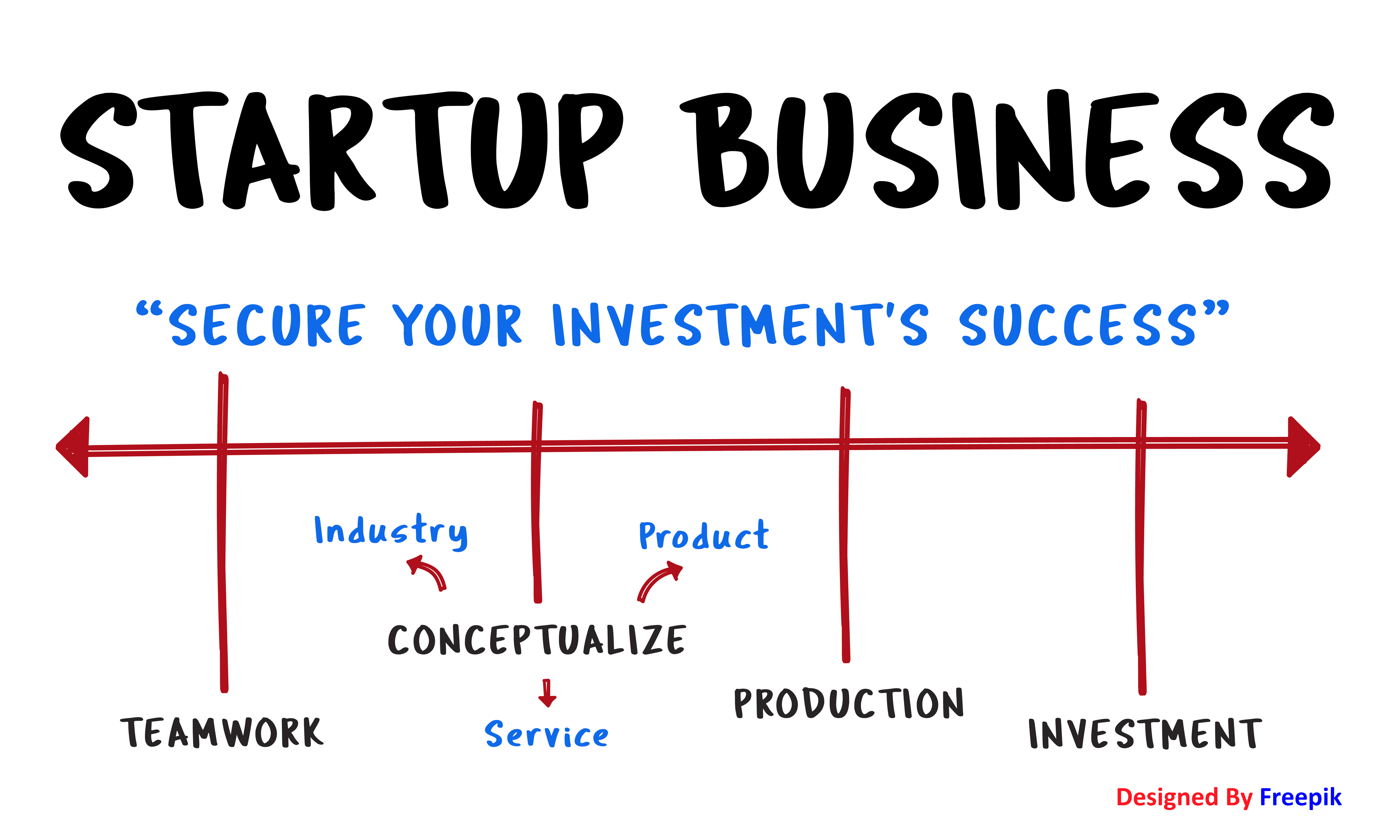
5 Tools To Increase Productivity, Improve Margins, Finish Projects, And Slay Your Competition.
Think about it; the marketing team generates to go to the sales team. The sales team draws attention to leads and closes them as customers. The finance team takes care of invoicing and ensures that the client pays the bills promptly.
Then the creative work begins. Account managers ask clients to complete briefs, and marketing/digital experts collaborate on the project. Throughout the process, account managers interact with customers and make sure everyone is happy.
It's a lot of workflows going on at once, which means a lot of things can go wrong. Here are the top 5 tools to increase productivity, improve margins, finish projects, and slay your competition.
HubSpot: HubSpot is a comprehensive platform that takes care of your marketing, sales, and service needs. HubSpot CRM gives you a real-time view of your entire sales pipeline on a visual, easy-to-understand dashboard. HubSpot provides detailed reports, making it very easy to check your team's sales productivity and individual performance.
Buffer: Buffer is a social media control platform that allows you to plan and publish your content to Facebook, Instagram, Twitter, Pinterest, and LinkedIn from a single dashboard. Buffer also comes with a social media calendar to quickly overview all the posts you have lined up and identify and fill any gaps.
Trello: Trello is another project management tool that makes it easy for you to collaborate on projects with your team members. You can start by creating different cards for each project, then slot your cards under other columns.
You can add due dates and checklists within each card, assign and tag team members, add attachments, etc.
Slack: Slack is used to communicate effectively with customers daily. Client-facing channels provide access to business resources at any time of the day.
This tool allows you to set up multiple channels for team members to discuss specific projects or topics, making it easier for everyone to collaborate.
Ahrefs: Ahrefs is one of the most sought-after tools in the SEO space. This tool allows you to uncover your competitor's keywords and increase your website's search traffic. Using Ahrefs to fine-tune your SEO strategy, you can gain visibility and drive more organic traffic to your website.
Resource:
https://www.cloudways.com/blog/agency-tools/
https://www.powtoon.com/blog/5-tools-for-growing-your-business/
Disclaimer: Wherever any material is quoted as sourced from the published text with publishing rights vested in an individual, it is stated that it is a pure quotation and has no intention to claim it as our own.
Image Source: www.freepik.com
473 adminFebruary 3, 2023

What Are Your Agency Competitors Doing? Use These 5 Tips To Find Out
Below are our top 5 tips and tricks to find out What are your agency competitors doing?
1. Analyze your competitor’s website and SEO strategy:
For competitor's websites you can use:
• SpyFu: This will give you information on the keywords and AdWords your competitors are buying.
• Google Trends: You can stay on top of industry trends and compare your company to others.
• Google Alerts: You can set up alerts for your company and set up alerts for your competitors to find out who is talking about you.
For SEO:
You will need to look at in terms of your site and your competitors:
• Keyword ranking using the (SERP Checker tool)
• Site traffic using the (SiteWorthTraffic tool)
• Website authority using (Website Authority Checker)
2. Look at competitor's social media marketing strengths:
With the rise of social media becoming a powerful tool for business marketing, you'll be able to stay abreast of any exciting updates your competitors share online. By building a list and examining their tweets, Facebook, and LinkedIn posts, you can begin to identify their use of tone and content strategy.
3. Survey your competitor's customers and suppliers:
It may seem obvious, but the most efficient and inexpensive way to gather accurate information is to talk to customers. Once you've won over a new customer, ask whom they used before and why they switched - that way, you can identify what benefits your business.
4. Hire your competitor:
You can hire employees from competing companies and work with competitors' partners. You can then find out how these companies operate and what they are up to next.
5. Analyze Their Rankings Against Keywords:
Once you've determined the keywords your opponent is targeting, use an SEO ranking tool like [AccuRanker] to track your progress against them. You can use this tool to see how your competitors perform against your target keywords if they differ from the above.
If competitors are outranking you, check their website for any supporting material that may help them rank. If so, can you do better?
Resource:
https://articles.bplans.com/10-ways-to-find-out-what-your-competitors-are-doing/
https://www.linkedin.com/pulse/5-tips-how-find-out-what-your-competition-doing-beat-mekelenkamp
https://www.convinceandconvert.com/digital-marketing/monitoring-competitors/
Disclaimer: Wherever any material is quoted as sourced from the published text with publishing rights vested in an individual, it is stated that it is a pure quotation and has no intention to claim it as our own.
Image Source: www.freepik.com
425 adminJanuary 26, 2023
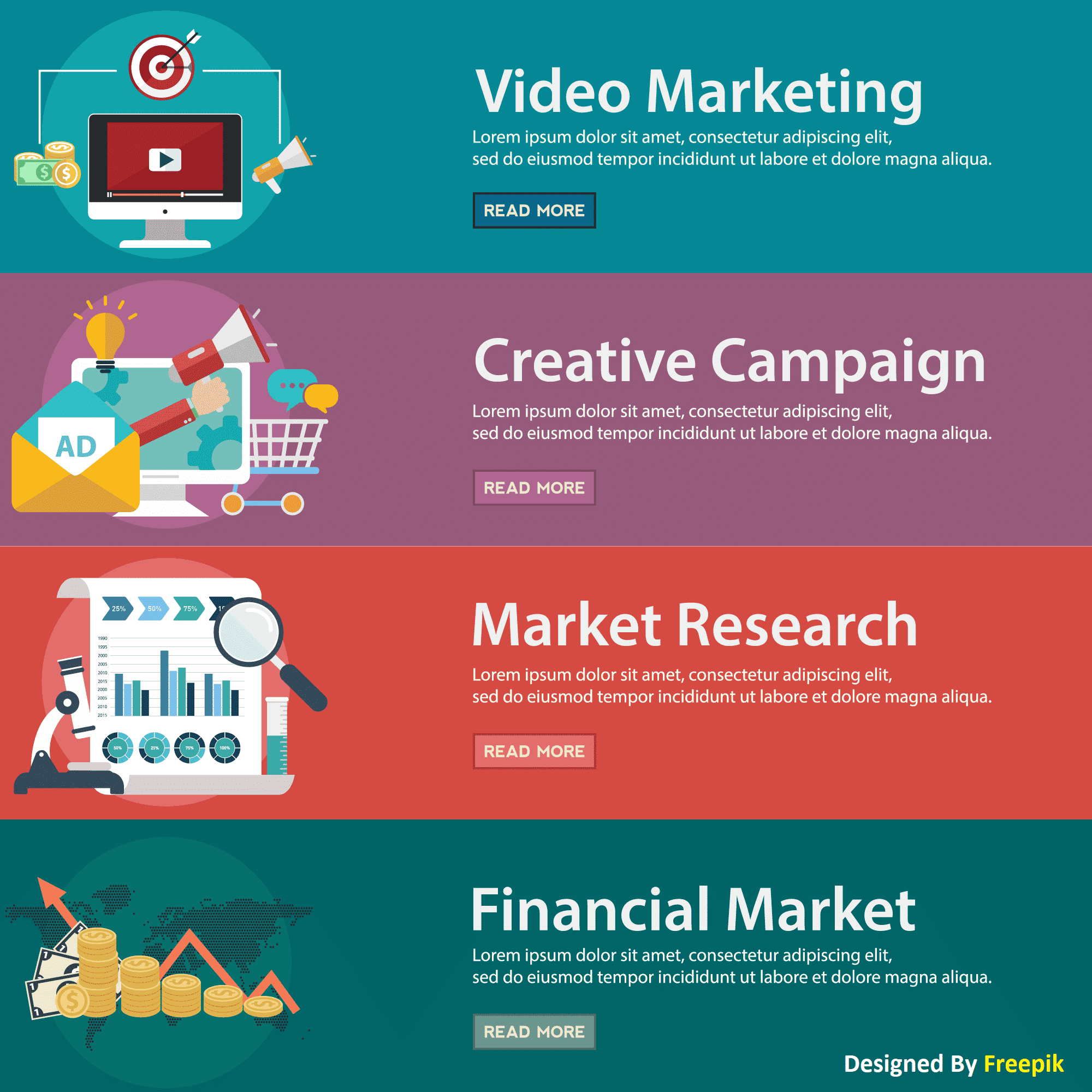
How Small Businesses In Chicago Can Keep The Marketing Funnel Updated
The Benefits of Having a Marketing Funnel:
• Streamline the customer journey.
• Help to Make analytics easy to track.
• Help to Identify areas that need improvement.
• Help define a sales methodology.
• Reduce costs.
• Increase revenues.
Steps When Updating Your small businesses Marketing Funnel :
There are a few essential things a business should look out for when deciding to update its dated marketing funnel to stay relevant in the modern setting.
1. Your Research: The world is changing fast. More is needed to look at quarterly research. Brands need consistent audits to help inform decisions across all marketing channels.
2. Double Down Your Efforts: There is often a tendency to pull back on marketing during tough economic or uncertain times when, in fact, the opposite should be happening. Refining the marketing funnel process and messaging should be an ongoing process.
3. Look At Changes In Customer Needs: Continuously monitor performance to evaluate success and failure, focusing first on your pain points or problem areas. Evaluate your interactions with your clients to ensure their experience is excellent.
4. Consider Your Key Performance Indicators (KPI): Look at your key performance indicators. KPIs typically help determine a company's strategic, financial, and operational achievements relative to other businesses in the same sector.
5. Make Sure It Reflects The User Journey: Marketing funnels should reflect the user journey rather than being driven by sales cycles, target closing times, and the brand's preferred communication tactics.
6. Look At The Bottom Of The Funnel: Look at the bottom of the funnel. If you can't convert people into customers, provide a great experience, and retain them over time, it doesn't matter how much work you do at the top of the funnel.
7. Focus On-High Potential Audiences: Focus on high-potential audiences who have already shown interest in your brand. Be more specific with your ads and target them based on their audience demographics.
8. Look At Your Competitors: Look at what your competitors are doing. Where are they operating paid traffic? Your competitors may have a better process and system than yours. Go through each of their marketing funnels. Select their content. Check out their Facebook ad library of active running ads. As you improve your process, leverage their strengths because they already carry your customers.
Resource:
https://www.forbes.com/sites/forbesagencycouncil/2020/09/25/16-critical-steps-when-updating-your-companys-marketing-funnel/?sh=7ac617de1e3a
https://www.crowdspring.com/blog/marketing-funnels/
Disclaimer:
Wherever any material is quoted as sourced from the published text with publishing rights vested in an individual, it is stated that it is a pure quotation and has no intention to claim it as our own.
Image Source: www.freepik.com
455 adminJanuary 18, 2023
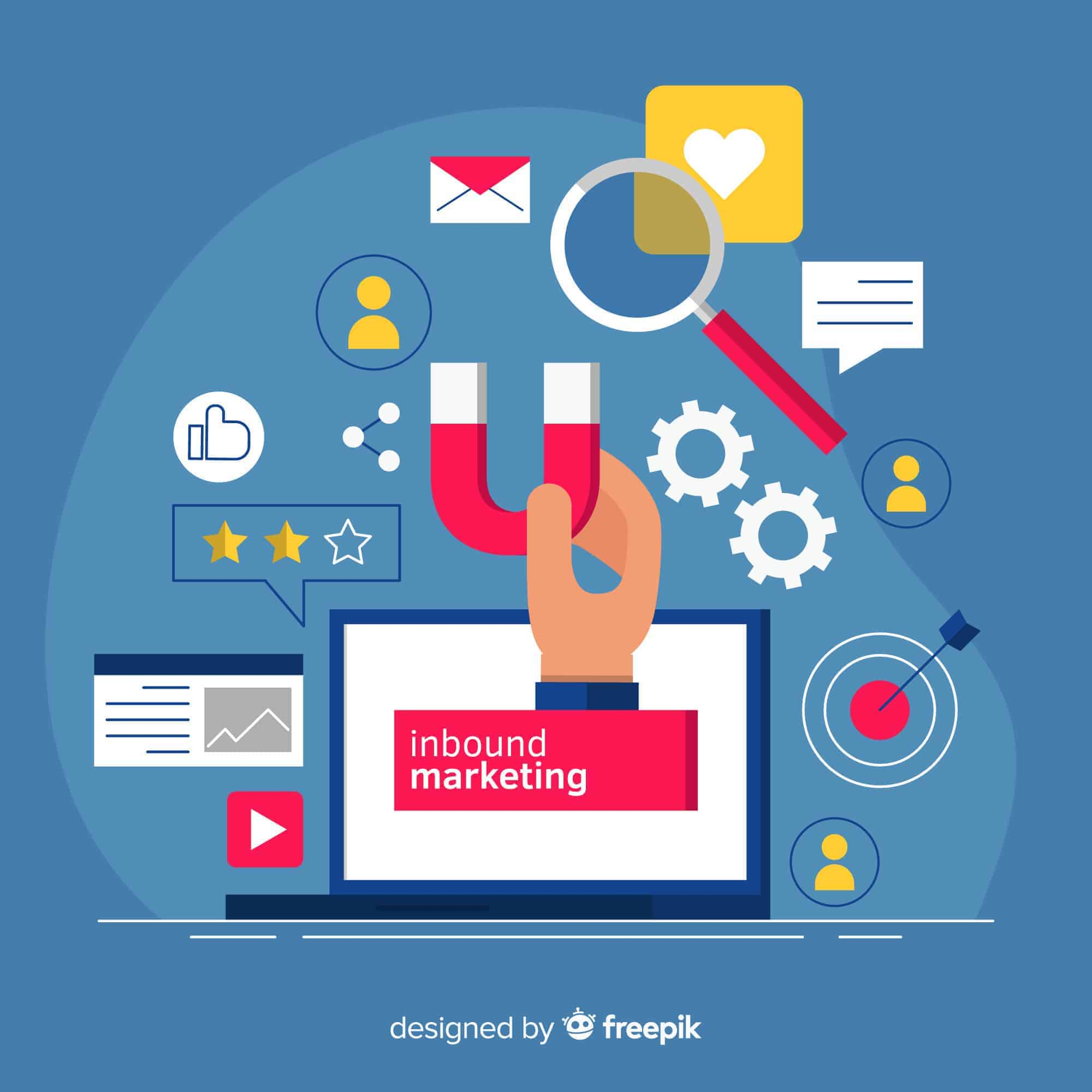
Outdo Your Competitors By Using These Customer Engagement Tricks
What is a Customer Engagement Strategy?
A customer engagement plan of action organizes interactions and activities into a well-structured plan to create the ultimate customer experience, including pre-and post-purchase. This process includes a variety of communication channels to build relationships, improve satisfaction, and actively nurture your customer base.
The Benefits of Implementing Customer Engagement Tricks:
When customers have a satisfying experience, they are more likely to buy, but it doesn't always happen immediately. Your customer experience is how customers perceive your brand or how it is perceived and received from their perspective. Customer engagement is how the customer experiences and interacts with the brand, including their decisions and how they interact and react to your products and services.
Keep a Customer-Centric Mindset:
The only way to ensure customers are satisfied with the experience is to provide what they want. From data collection (through your CRM, sales engagement platform, etc.) to customer feedback and forums, creating an engagement strategy involves social listening and research, just like brand promotion. The more you know about your customer, the better you can target your message and experience.
6 Proven Customer Engagement Tricks:
1. Share Your Company's Story, Mission, and Vision:
The stories are memorable, and people get to relate to your account. They give customers a reason to trust your company. Humanize your brand with a message highlighting your mission, vision, and story. Help customers understand you're 'why' for business.
2. Practice Active Listening:
Customers are very vocal about what they want, so listen. What are they saying and not saying about your business? How do they contrast you to your competitors? Make it easy for customers to give a reaction, share their experiences, record responses and follow up.
3. Provide Some Free Benefits to Users:
Reward users for being loyal customers with something free: things your customers need. Give them free information on how to get the most out of your product or a resource on cost/benefit analysis. Freebies are a way to attract new customers.
4. Take a Social Approach:
Be active on social media sites like Twitter, Facebook, and Instagram. This platform is used for people who want to express their problems with the business or praise them.
5. Address Feedback:
User feedback is one way to measure your customer satisfaction. Collect a mix of technical, quantitative data (through your CRM, sales engagement platform, etc.) and anecdotal, qualitative feedback to understand your customer experience fully.
6. Create a Customer Success Centre:
Set your customers up to win. The Customer Success Centre helps customers access resources and get answers to their questions. The goal is to ensure customers have everything they need to make the right purchase decision or use your products to their fullest potential. With the proper support, communication, systems, and information, your customers may be able to act.
Resource:
https://www.outreach.io/blog/customer-engagement-strategies-for-increasing-conversions
https://www.openpathdigital.com/blog/customer-engagement
Disclaimer:
Wherever any material is quoted as sourced from the published text with publishing rights vested in an individual, it is stated that it is a pure quotation and has no intention to claim it as our own.
Image Source: www.freepik.com
543 adminJanuary 11, 2023

Remembering 80-20 And How It Applies To Your Agency Business
How Does the 80-20 Rule Work?
This rule often indicates that 80% of a company's revenue is given rise to 20% of its customers.
This way, it can be profitable for a company to focus on the 20% of clients that account for 80% of revenue and market to them. By doing so, the company can retain those customers and acquire new customers with similar characteristics.
How To Appeal the 80/20 Rule in Business:
It will help if you get maximum output from minimum input when running an agency business. Here are how intelligent companies work. So, work on the three things that will provide you with the best results.
1. Be Clear on What You Are Doing: As a business proprietor, you need to understand your job thoroughly. Once you understand each aspect of your service offering and your business, you can identify problem areas and work on these problems will increase your business efficiency.
2. Measure: Everything must be measured using analytical tools. Here is the only method to find out what works and doesn't. Many analytical tools are available online. For web analytics, you can use Google Analytics to set up goals and check your performance.
3. Think Boldly and Work Smart: Working smart requires you to think outside the box. Be brave and take some chances. Remember, take calculated risks only when the odds are in your favor.
How to Use the 80/20 Principle?
1. Look at Social Media Results: Social media is prevalent these days. Businesses use social media for better business leads. It also helps in building brand loyalty. Using social media analytics, you can find out which social media strategy works for you on which platforms. You can use this insight to focus on methods that deliver 80% of the results.
2. Know Your Customers and How They Order: Understanding your customer is very important. So studying how they order and how much they order. This information is essential to find the people who contribute the most to your revenue. Finding this information is accessible using analytics.
3. Budget Efficiency: Both over-budget and under-budget are detrimental to a business. Studies show that most new and small businesses spend 7% of their revenue on marketing. Using the 80/20 rule, you need to figure out the marketing spend that will get the best results.
4. Time Management: Being a business owner, you probably think that you need to work 24/7 to be successful. Streamlining your processes is another way to increase your productivity. The 80/20 rule is everywhere. 20% of the activities undertaken cause 80% of the time wasted. To manage time better, take steps to analyze, understand, and reduce just 20% of activities.
5. Leave That Which Does Not Sell: You may make many products or offer a mix of services in your business. However, you may have noticed that these earn you a different amount. It means that only some of your lines are equally profitable.
It's a good idea to leave behind what doesn't sell. You will get 80% of your high-profit services and 20% of lost revenue. It's a process that constantly needs review and refinement.
As a business owner, it's up to you to use the 80/20 rule to your advantage. This rule is not something pulled out of thin air but a strategic, simple way to see the path to continued growth and success.
Resource:
https://dorksdelivered.com.au/business-tips/how-to-use-80-20-rule-to-your-advantage-as-a-business-owner
https://rockcontent.com/blog/pareto-principle-in-business/
Disclaimer:
Wherever any material is quoted as sourced from the published text with publishing rights vested in an individual, it is stated that it is a pure quotation and has no intention to claim it as our own.
Image Source: www.freepik.com
507 adminJanuary 5, 2023

Keywords Which Will Get You The Best Results In The Chicagoland Area
What are Local base Keywords?
Local keywords contain location-specific phrases (Chicagoland Area, Chicago, Etc) that generate results related to the exact geographic location.
Understanding the Chicagoland Area
Chicago is one of the few cities in the world that offers everything under the sun – Chicagoland Area has a sports team in every league, over 7,000+ restaurants, places to drink on every corner, 40 museums, and dozens of universities. The city and suburbs represent every nationality, age group, income level, and industry.
Standing out as a Chicago business can be challenging when there is so much competition. And that's why we're here to be your Sherpa through the competitive landscape of Chicago and Google Search and provide the insights you need to start ranking and pulling organic traffic from your Chicago neighbours.
How do I find local keywords? (Base On the Chicagoland area)
How do you find suitable keywords to type in the results to rank at the top of local searches?
To find the right keywords for local search, you need to do local SEO keyword research. With the help of available keyword research tools like Keywords, Keyword Planner, etc. It will help you to generate a list of local business-related keywords.
For example: if you have a dental clinic in Chicago, you may start by searching "best dental clinic in Chicago."
Phrases for local search:
• [business type/product/service] in Chicago
• [business type/product/service] Chicago
• Chicago [business type/product/service]
• Best [business type/product/service] in Chicago
Example: 1. Root Canal Treatment in Chicago
2. Best Orthodontist near Chicago
How do I choose the best local keywords and rank for them?
1. Specify Your Location
The first and most crucial step in finding local SEO keywords is to specify your location (like Arlington Heights, Chicago). It would help to establish what area you want to target for local search. You can target location keywords near your occupation.
2. Focus on Industry-Related Keywords
Some organizations will try to rank for keywords unrelated to their business because they have high search volume and drive traffic. The problem with this approach is that those keywords won't bring qualified leads to your page. It will high the bounce rate of your website. So, target the relevant products and services you offer. So, if you are a dentist, you can focus on terms such as:
• Dental clinic in Chicago
• Chicago's best dental clinic
• Dental hospital in Chicago
3. Include Keyword Modifiers:
Keyword alternate adds more to your core keyword and help expand your reach and enables you to grab the audience's attention.
• Quality modifiers: "Best" and "Top" An example key phrase is "best dentist in Arlington Heights."
• Occasion: "birthday" or "Christmas."
• Type: The keyword alternative focuses on something your business offers. Popular services.
"Orthodontist in Chicago"
If you're not using keywords for local search, you're missing out on a significant moment to grow your organization. Using local keywords will help you reach out to more people in your region and get them to visit your company, which will help you get new leads and grow. Start using local keywords today.
Resource:
https://www.webfx.com/blog/seo/local-keywords/
https://www.digitalthirdcoast.com/blog/the-ultimate-local-seo-guide-for-chicago-businesses
Disclaimer:
Wherever any material is quoted as sourced from the published text with publishing rights vested in an individual, it is stated that it is a pure quotation and has no intention to claim it as our own.
Image Source: www.freepik.com
550 adminJanuary 2, 2023

UI/UX Trends For 2022 Which Your Small Digital Agency Should Contemplate
In this article side, we are looking at the top UI UX Trends for 2022 that your small digital agency should contemplate:
3D And Animations:
The three-dimensional art of 3D design will enhance your interface as one of the top UI UX trends of 2022, which is what your business needs.
Online technologies like WebGL can create interactive 3D designs and animations that engage and wow the user. With the introduction of 5G networks, these effects will soon be visible on the go.
Collaboration Across Disciplines:
Cooperation in various disciplines. As a designer - With the rise of tools like Figma, adobe xd that bring designers and developers together in a more efficient and file-less design workflow, sharing work has become more manageable. Gathering feedback in real-time from business stakeholders, developers, and users means we can create better and more intentional work faster.
Simplicity for UI/UX:
In UI and UX, designs need to become less cluttered to cut through the visual noise. Users need to absorb information and access what they need before they lose interest or move to an alternative that can give them what they need.
Dark Themes:
After software companies start creating dark instead of light UI mode, we are sure that the interface design trend will go even further.
AR & VR expanding into B2B:
When we think of AR and VR, IKEA's furniture app or gaming comes to mind. In 2022, we will see the expansion of AR VR for B2B purposes.
The remote working trend has created enormous opportunities for remote AR-based or VR-based training and virtual programs.
Mobile app or mobile-friendly browser version:
A Days nearly 60% of all Online surveys are now on a mobile, which is not new, but in most companies, designers first define the user experience from the desktop version. The first reason is habits that are changing slowly, especially for corporate companies. You don't need to be sure about the sales funnel; you can figure it out. Designing a great mobile experience requires more confidence in what to do.
Resource:
https://uxplanet.org/ui-ux-design-trends-of-2022-you-need-to-%D1%81atch-up-to-d02ff6623d5a
https://uiuxtrend.com/top-ui-ux-trends-2022-to-follow/
https://digitalagencynetwork.com/ux-ui-design-trends-for-predicted-by-web-design-agencies/
Disclaimer:
Wherever any material is quoted as sourced from the published text with publishing rights vested in an individual, it is stated that it is a pure quotation and has no intention to claim it as our own.
Image Source: www.freepik.com
468 adminDecember 23, 2022

Google Analytics Indicators You Should Watch Out For
Some standard website KPIs (Key Performance Indicators) include the number of visits, bounce rate, dwell time, conversion actions, geography, and more.
In this Blog, we'll cover the 10 Google Analytics indicators you should watch out for.
The most important Google Analytics metrics to track:
1. The number of visitors: A place to start is looking at how many people visited your website for a given timeframe (for example, 7 days) and how that compares to a different timeframe (for example, the same period last week), giving you an idea of how popular your website is and whether it is increasing or decreasing.
2. Bounce Rate: Bounce rate is a metric that shows what percentage of visitors come to your site and then leaves without visiting another page. They are "bouncing out," so to speak.
A bounce rate ranges from:
26 to 40 percent is excellent
41 to 55 percent is roughly average
56 o 70 percent being above average
3. Session Duration: The next Google Analytics metric one must track the session duration, telling you the time an average visitor stays on your website; this helps you understand engagement levels.
4. Number of Users from Organic SERPs: Who are your site visitors? How is this changing from time to time? For any website you have, organic search traffic is an essential channel for you. These are often your most engaged visitors and are the fruits of your SEO efforts.
5. Conversion Rate: Google Analytics enables you to configure specific "events" as targets. Your conversion rate for that goal measures the percentage of users who complete a sale. There are many other ways to track conversions, especially if you're using WordPress. For example, WooCommerce automatically monitors sales.
6. Average Page Speed: Average Page Speed is a KPI that helps you understand the load times on your website. Of course, there are other tools from Universal Analytics to help measure this in more detail at scale, such as Google Lighthouse and, of course, the "Load Times" report from Ryte Web Performance.
7. User Location: User location is one of most sites' most important Google Analytics metrics. If you show ads, networks often pay different rates for views and clicks depending on where users are. Additionally, if you sell products and services, you may want to focus on customers in a specific area.
8. Percentage of Return Visitors: Help to identify our regular website visitors and our followers. The most valuable visitors to any website are those who keep coming back to our website. Google Analytics shows you what percentage of your traffic is one-off and how many of those visitors are repeat visitors. On average, a reasonable return visitor rate is around 30%.
9. Search Queries: Depending on which version of Google Analytics you're using, you can see the keywords that send visitors to your website from search engine results. These visits fall under the organic traffic category as they come from SERPs.
10. Top Landing Pages: This metric identifies the pages on your website that most users see first. Our website's top landing pages help us understand our most popular products or services. Typically, the top landing pages will be your home page and some of your content pages.
Final Thoughts:
It would help if you defined the right macro and micro goals for your website, and from this, you can derive the parameters, and KPIs one needs to monitor the improvement of the website's performance. Start monitoring these Google Analytics metrics today.
Resource:
https://themeisle.com/blog/most-important-google-analytics-metrics/
https://en.ryte.com/magazine/google-analytics-these-are-the-10-most-important-kpis-for-your-website
Disclaimer:
Wherever any material is quoted as sourced from the published text with publishing rights vested in an individual, it is stated that it is a pure quotation and has no intention to claim it as our own.
Image Source: www.freepik.com
508 adminDecember 21, 2022 Youtube Video

What’s Trending in the Lead Gen Space in Chicagoland
For that, Lead generation experts in Chicago have the best tools and technology to grow your business' market. Industry professionals research, develop, and refine best practices to generate the most accurate leads for their client's needs.
So, in this article, we're looking at lead generation trends that work in Chicagoland. The thing about trends is that they come and go, and the life cycle of these things is getting shorter every year.
We're left with lead-generation strategies that will positively impact the volume and quality of leads you can capture. Here are the ten best examples:
1. Account-based marketing is the new normal for B2B brands.
2. Hyper-personalization
3. On-Page Lead Qualification.
4. Automated marketing and sales integration.
5. Community-Based Marketing.
6. Multimedia thought leadership.
7. Featured snippets
8. Page experience makes UX even more important as a ranking signal.
9. Making GDPR Compliance Usable.
10. Maximize customer lifetime value.
The basic formula for evaluating marketing trends is looking at the current technology, how users have used technology, and what problems this combination could solve.
Lead generation marketing trends come and go. Your ability to go with the flow, innovate, update and always thoughtfully work to optimize the experience will keep you ahead of the game.
Resource:
https://www.ventureharbour.com/lead-generation-trends/
Disclaimer:
Wherever any material is quoted as sourced from the published text with publishing rights vested in an individual, it is stated that it is a pure quotation and has no intention to claim it as our own.
Image Source: www.freepik.com
420 adminDecember 6, 2022

Easy DIY SEO Strategies you can use for your Chicagoland Small Business
These are top tips for small businesses that want to improve their search rankings:
1. Add Your Site to Google My Business:
Google My Business is free and allows you to control what users view on searching for your business on Google. For example, when someone searches for your business or your business is displayed, you will control the following:
• Business description
• Opening and closing times
• Contact information
• Address information
• Links to websites
Also, list your site on Google Maps and enjoy ranking for local search results.
2. DIY SEO by Optimizing Your Site for Keywords:
DIY SEO relies heavily on on-page optimization. You control the on-page factors that affect your site's ranking.
Place the keywords within your content:
• Title tag
• Meta description
• Alt tag
• Header
• Throughout your content
Here are some tools to help you find your keywords:
• Google Keyword Planner
• Keyword generator
• Keyword Surfer
3. Optimize for Mobile: One Study says that about 81% of mobile users search for a product or service online. Whether it uses WordPress, Shopify, or another platform, your site should be easy to optimize for mobile if it still needs to be optimized.
Responsive themes will work on any screen size, allowing visitors to access your site on their smartphone or tablet easily.
You can test mobile-friendly.
Enter your URL and test it to see what changes Google suggests for your site. The test will provide insight into how the page looks on mobile and any issues with page loading.
4. Setup Google Analytics to Measure Your DIY Efforts:
Must have Google Analytics. Yes, you will be able to track your traffic to your site, but Analytics provides a lot of helpful information for SEO.
Google Analytics can provide you with information about your website that you can use to further optimize your DIY SEO for small businesses.
5. Speed Up Your Site to Maximize Conversions from Organic Traffic:
A study found that more than 50% of users will leave a site if it loads in three seconds or less. Speed is also a factor for mobile search Ranking.
Focusing on user experience can lead to higher search rankings.
You'll have plenty of opportunities to optimize your site's speed:
• Use a Content Delivery Network (CDN).
• Install a caching plugin or use a server caching system
• Run Page Speed Insights and follow all recommendations
Resource:
https://www.searchenginejournal.com/small-business-seo-tips/429650/#close
https://www.smallbusinessseohelp.com/blog/diy-seo-tips-small-business/
Disclaimer:
Wherever any material is quoted as sourced from the published text with publishing rights vested in an individual, it is stated that it is a pure quotation and has no intention to claim it as our own.
Image Source: www.freepik.com
1184 adminNovember 11, 2022 Youtube Video

How Much Should Agency Margins Really Be
Setting a goal, on the other hand, is insufficient. You must also keep track of it every month, allowing you to identify problems and patterns in your business. A shift in gross margin might signal various issues, including difficulty with a specific client or cost overruns for the organization. It can also display profitability patterns and how your company compares to industry norms.
What is the true profitability of your advertising agency?
The average marketing agency makes a net margin of 6 to 10%, with digital agencies reporting significantly higher margins of approximately 20%. In rare circumstances, corporate advertising companies declare profit margins up to 40%.
There are many possibilities for improvement in the marketing profession. If your agency is in the lower range — between 6 and 15% — a few strategic improvements could significantly enhance your profits.
What exactly is a decent profit margin?
According to an NYU analysis of US margins, the average net profit margin across industries is 7.71%. However, this does not imply that your superlative profit margin will be the same as this figure.
As a general guideline, 5% is considered a low margin, 10% is regarded as a good margin, and 20% is considered a significant margin. However, a one-size-fits-all strategy is not the most excellent method to define profitability targets for your organization.
On the other hand, consulting firms and software-as-a-service (SaaS) companies typically have substantial gross margins. These companies have lower operational costs, little inventory, and require less cash to get started. Companies that offer high-priced items, such as jewellery stores, may also fall under this category.
Profit margins are also affected by a company's age and size. Profit margins in new enterprises are frequently higher than in large or established businesses. There are fewer sales, fewer employees, and hence lower overhead expenditures. Margins typically shrink as businesses expand.
Margins for enterprises in the same industry can also be affected by geography. For example, a tech company in San Francisco will have vastly different rent and payroll expenditures than a tech company in Dallas.
Finally, a healthy profit margin is determined by your growth objectives. If you want to attract investors, significant finance equipment buys this quarter, or grow your services, and you'll need to boost your margins.
Resource:
https://www.brex.com/blog/what-is-a-good-profit-margin/#:~:text=As%20a%20rule%20of%20thumb,and%20retailers%20are%20low%2Dmargin
https://www.askcody.com/blog/advertising-agency-profitability-field-guide#:~:text=The%20average%20marketing%20agency%20earns,as%20high%20as%2040%20percent
https://agencyanalytics.com/blog/agency-margins
Disclaimer:
Wherever any material is quoted as sourced from the published text with publishing rights vested in an individual, it is stated that it is a pure quotation and has no intention to claim it as our own.
Image Source: www.freepik.com
729 adminSeptember 15, 2022

Tips for Slaying Your Agency Competition
In today's economic situation, freelancers and small studios will have to fight harder than ever to stay afloat. How do you overcome such tough competition? How do you stay a notch up from the crowd and ensure you receive the business?
There are numerous strategies to outperform your competitors. You may employ many tactics to be the greatest, from focusing on customer service to making the most of search engines. The following pointers will assist you in standing out from the crowd.
1. Identify the clients' pain areas:
One possible approach to outperform your competitors is to answer the needs of your shared target audience better than they can. Ask open-ended inquiries to determine what your clients want while utilizing your products or services. After identifying a customer's pain spots, you can try to remedy them by expressing their problems in the customer's language. Once you've determined who at their firm can solve those pain points and who is authorized to acquire your products and services, you can move on to the next phase. (This person is not always the same person who can solve the problem.)
2. Establish your brand:
When you first start, or if you're in the process of rebranding, make an excellent first impression on potential clients. Examine competing websites to see how they portray themselves. Consider the aesthetics of their logos and web designs. Are they business-like? Fun? Approachable?
Examine their branding to see if there are any flaws. Look for areas where you can improve. Define your branding by thinking about your USP and attempting to represent what your firm stands for - not just through your visual identity but through the tone and language you use in your writing.
3. Establish competitive pricing:
One of the simplest methods to outperform your competitors is to provide lower prices. To find the optimum pricing point, you must first understand your competitors' goods or services costs. Investigate which competitors give the best value, helping you decide what you are selling adds more value to the table and, as a result, should be priced higher.
If beating your competitors is your top pricing issue, use a pricing strategy based on competition. This method disregards product prices and consumer demands and focuses on the current market rate for your goods or services. You then set your price to be within the range of prices offered by your competitors.
4. Keep ahead of the competition:
Change is an unavoidable part of running a business.
Because it engaged artists to operate its stores rather than businesspeople, Urban Outfitters became a major disruptive force. They had complete control over the interior design of their stores, and the results were stunning. Every Urban Outfitters location was distinct, whereas the competitors' sites were all the same. The company's sales have increased by 500% in the last decade to over $3 billion.
5. Give excellent client service:
Providing excellent and memorable customer service is an excellent method to establish customer loyalty and distinguish yourself from the competition.
Prioritize recruiting people who understand your products and services and your brand. Don't hurry in recruiting customer service representatives. It is more vital to find the right people for the job than it is to fill those roles.
Disclaimer:
Wherever any material is quoted as sourced from the published text with publishing rights vested in an individual, it is stated that it is a pure quotation and has no intention to claim it as our own.
Image Source: www.freepik.com
477 adminSeptember 8, 2022
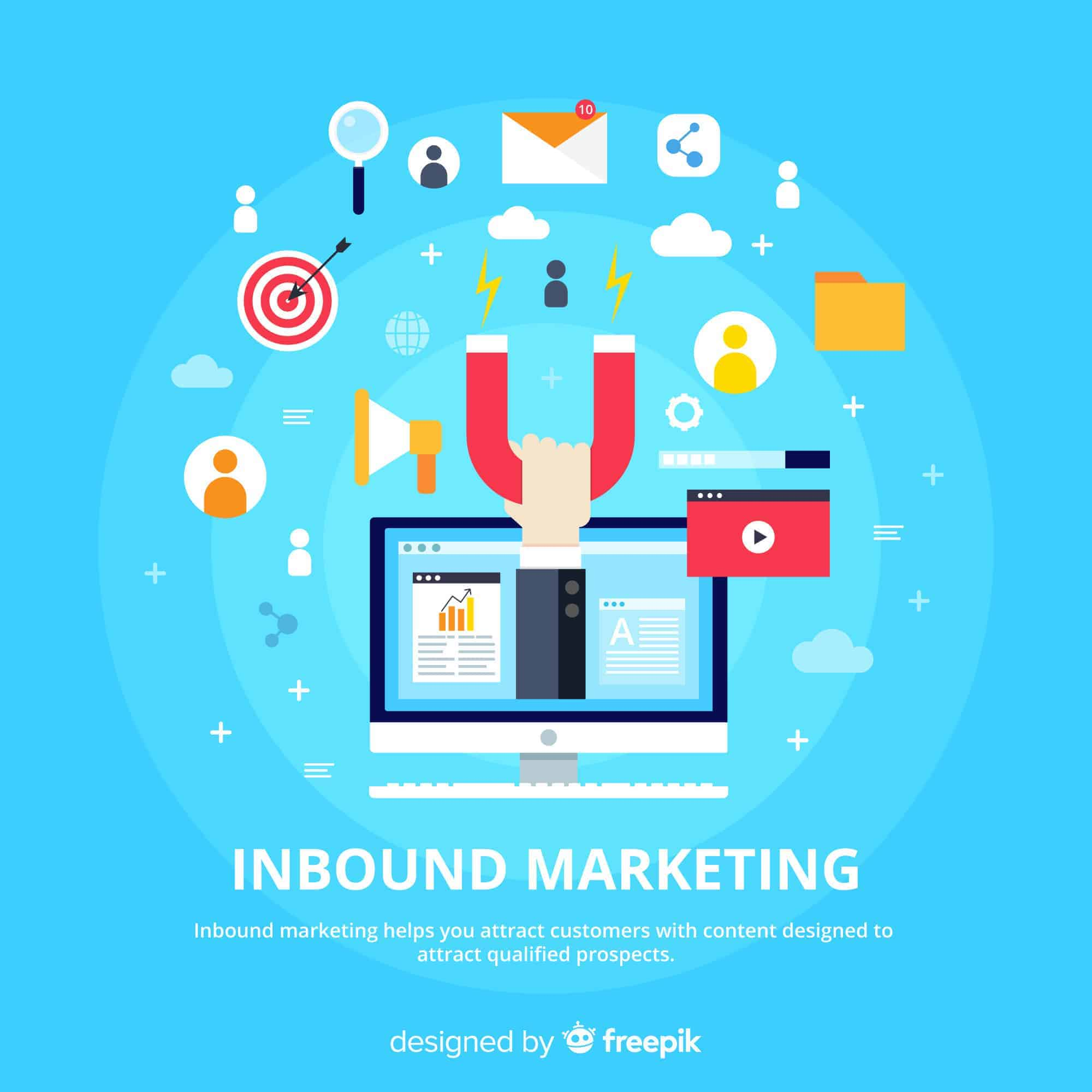
Ways to Make A Website A Lead Gen Magnet
Enter the lead magnet by delivering a resource in exchange for the prospect's email address or any other sort of contact information, these small packages of delight work as incentives that entice website users to become prospective purchases. And the good news is that lead magnets take less time to make than you think.
What is a Lead Magnet?
The lead magnet is free assets that entice potential clients to click on your link, and visitors are more likely to connect to your email list and, in the end, become paying users if you use this free material.
Here are the three ways to make your website a lead generation magnet:
Create PDF files of High-Performing Blog Posts:
If so, you're only a few footsteps away from converting your most good blog article into a valuable PDF booklet that you can use to expand your company's email list.
First, review your site statistics to identify high-traffic blog entries. When you've found the relevant post, include additional material so that the PDF is more valuable than the original blog post. You could even spice it up by incorporating other images.
Finally, provide a form field so subscribers can enter identifiers like their name, email, and phone number, and you're done.
Parts of your Product or Service should be given away.
When you offer a lead magnet to build your email list, remember that your ultimate aim is to sell your product or service.
Your lead magnet should ideally serve to pre-sell whatever product or service you will eventually want your subscriber to purchase.
What better approach to entice subscribers to buy your product than to give it away for free? It might be a website template design for a graphic designer. Potency must be the first module of your online course as a business consultant. It might also be a short list of properties for a real estate agent.
Handout / Cheat Sheet
Cheat sheets and handouts are practical because they often give highly tactical information that saves the prospect a significant amount of time. While frequently supplied in PDF format, cheat sheets take a different approach than reports and guidelines.
Cheat sheets are one or two pages long and to the point. These are frequently presented as checklists, plans, and mind maps.
Resource:
https://www.impactplus.com/blog/how-to-create-a-lead-magnet
https://www.leadpages.com/blog/15-ways-to-create-a-high-value-lead-magnet/
https://optinmonster.com/9-lead-magnets-to-increase-subscribers/
Disclaimer:
Wherever any material is quoted as sourced from the published text with publishing rights vested in an individual, it is stated that it is a pure quotation and has no intention to claim it as our own.
Image Source: www.freepik.com
522 adminAugust 2, 2022

Search Engine Optimization (SEO) and Social Media Marketing (SMM)
SEO stands for Search Engine Optimization, whereas SMM stands for Social Media Marketing, the most recent of the three. Let's learn more about SEO and SMM.
SEO (Search Engine Optimization):
SEO is a term for search engine optimization, a collection of strategies aimed at improving the visibility and positioning of web pages in organic search results. Because organic search is the most commonly used method for people to discover and access online information, a robust SEO plan is critical for increasing the quality and number of visitors to your website.
How does SEO work?
Search Engines use BOTS to maneuver through websites collecting information about the web pages and indexing them. An index is like a library where the librarian can retrieve a book (in this case, a web page) you want.
Following that, algorithms analyze pages in the index by taking hundreds of ranking variables or signals into consideration to determine how pages appear in search results for a given query. In the analogy stated above, the librarian has read every book to know the best answers to your questions.
SEO's Importance in Marketing
The definition of SEO can be divided into three parts to understand its importance:
- Organic Search Results: Unpaid listings on a search engine results page (SERP) are selected by the search engine to be most relevant to the user's query. Ads (often known as PPC or pay-per-click ads in this context) dominate SERPs. Organic search results differ from these adverts in that they are positioned based on the organic ranking algorithms of the search engine rather than by advertiser bids. You cannot pay to rank better in organic search results.
- Organic Traffic Quantity: The traffic quantity states the number of individuals arriving at your site through organic search results. Users are likely to click on search results near the top of the SERP, so utilize your SEO approach to rank the relevant pages high. With more high-quality visitors, more worthwhile conversions will increase.
- Organic Traffic Quality: You can attract all the traffic, but it is only relevant if they come because Google tells them. For instance, if you're a resource for Apple laptops when you're selling apples, the visitors are likely to depart without converting. Visitors interested in the products, information, or other resources the site provides constitute high-quality traffic. High-quality SEO takes advantage of a search engine's efforts to match a user's search intent to the web pages listed in the SERP.
SMM (Social Media Marketing):
Social Media Marketing (SMM) sells a company's products and services on social networks. SMM allows businesses to communicate with existing consumers to promote their desired culture and mission. Marketers can track the success of their efforts using data analytics tools designed specifically for social media marketing.
There are also a variety of social media management solutions available to assist businesses in making the most of the social media networks described above. Buffer, for example, is a platform of social media management tools that can assist in achieving success with social media marketing; this helps success in developing a brand or growing the business.
Social media has transformed, with approximately 4.1 billion internet users and about 3.1 billion social media users.
According to a survey of over 600 social media users conducted by 'The Manifest,' people regularly visit a range of social media networks through a mobile app or PC web browser.
Importance of Social Media Marketing:
Social media is usually used for increasing brand exposure. According to Hootsuite, public social feeds account for 52% of online brand discovery. In other words, most individuals find out about new brands through social media.
Every day in 2019, people spent 2 hours and 24 minutes. And this statistic has increased as well: time spent on social media has climbed by 1.4 percent resulting in excellent means to not only contact your target audience but also interact with them over time.
Every year, social networks become more critical in terms of increasing sales. In 2019, for example, 43 percent of internet users utilized social media to investigate products before purchasing. Although only 12% of people are ready to click a "purchase" button on Facebook or Instagram, social media plays an extensive role in the early phases of the buyer's journey.
Resource:
https://moz.com/learn/seo/what-is-seo
https://sendpulse.com/support/glossary/social-media-marketing
https://www.techfunnel.com/martech/social-media-marketing-guide/
https://www.tzisolutions.com/blog/what-are-seo-sem-and-smm-what-are-the-main-differences#:~:text=SEO%2C%20SEM%20and%20SMM%20are,these%20three%20online%20marketing%20platforms
Disclaimer:
Wherever any material is quoted as sourced from the published text with publishing rights vested in an individual, it is stated that it is a pure quotation and has no intention to claim it as our own.
Image Source: www.freepik.com
679 adminJune 16, 2022

Margins – Digital Transformation Leads to Revenue Growth
Digital transformation may help your firm save money and stand out from the crowd. Revenue growth is greatly aided by digital transformation. And as the 2020 pandemic showed, it was not just a growth element but also a lifeline for enterprises to survive.
The Pandemic Booster:
The COVID-19 dilemma appears to present a startling look into a future society where digital has become crucial to every encounter, driving businesses and individuals to move quickly up the adoption curve. A future in which digital channels are the primary (and, in some cases, exclusive) method of consumer contact and automated processes are the primary engine of productivity—and the foundation of flexible, transparent, and reliable supply chains. A future in which agile working methods are required to meet daily changes in client behavior.
According to a survey, within six months after the pandemic's onset, the values of digitally mature enterprises increased by 23%. The importance of the least digitally advanced enterprises increased by only 7%. Companies are doing more online commerce as customers do. The crisis hastened the adoption of digital transformation by three years. Organizations are now three times more likely to claim that at least 80% of their consumer contacts are digital.
Digital Maturity and Transformation:
Not all digital transformations are the same. As seen by the shops in the preceding example, a level of digital maturity is critical to revenue growth and business survival. Digital maturity is a long process that equips organizations with the tools to navigate the future. In other words, digital transformation is reactive, but digital maturity is proactive.
That is not to imply that digital change is blind. The cornerstone of digital transformation is technology (although it takes much more than tech). Consider the following example of digital transformation in the absence of digital maturity:
Moving beyond the CRM, your marketing department may utilize a marketing automation platform, while your sales department may use a CRM. If each forum is categorized and not connected, you'll have more challenges than efficiencies. Both are critical components of digital transformation and customer-centricity, but as silos, they hamper essential cooperation in the absence of an integration strategy.
A Fresh Perspective on Profit Margins and Growth:
Traditional margin improvement approaches, including operating model transformation, outsourcing, and external expenditure reduction, are soon becoming table stakes that are unlikely to produce the requisite margin and performance improvement.
Businesses should consider a new approach to margin and business improvement that can assist them in identifying, prioritizing, and pursuing new growth opportunities. Processes like generating cost savings, freeing up cash, and supporting the development of capabilities and talent required to achieve their strategic vision to help them thrive in an uncertain environment. This innovative technique includes several crucial components:
- A clear idea of the surroundings
- Understanding the value lever trade-offs
- Using many tactics at the same time
- Using modern technology to their full potential
- Organizational alignment
A Comprehensive Approach to Revenue Growth
Sustaining growth is challenging for any business, but the benefits are enormous: organizations that exceed their rivals in revenue growth and economic profit generate more returns to shareholders every year.
Several reasons contribute to growth transitions being a long-term task. Successful growth initiatives need cross-functional collaboration, but businesses frequently fail to identify an end-to-end owner accountable for results. Attractive end markets constantly shift and create new possibilities, but few firms can effectively reallocate resources. Digital technology and analytics have the potential to accelerate growth. Many businesses lack the essential expertise and competencies in analytics and general management tasks.
A comprehensive approach to increasing portfolio and market performance, commercial excellence and innovation, and business development may compound the top-line gains. Firms that successfully grasp one area have attained yearly growth rates one percentage point greater than the sector average. On the other hand, mastering two or all three categories may improve annual growth by 3.6 percentage points higher than peers.
Companies that efficiently use big data might create more income and produce more unique ideas and competencies. They develop new income streams, company divisions, and stand-alone enterprises.
Many organizations have large volumes of data that have the potential to be utilized to reduce costs or improve customer experience. Having data is not enough. Using it efficiently will make informed judgments. Understanding the impact of that information on the firm's profit margin is critical for developing a plan that maintains the company's profitability. Obtaining the correct information entails determining whether data is pertinent to the company's decision-making process.
Digital transformation is a challenging task. Each organization must assess its prospects, needs, and resources to prioritize its activities and achieve its objectives.
Resource:
https://www2.deloitte.com/us/en/pages/operations/articles/global-cost-management-survey.html
https://www.pedowitzgroup.com/digital-transformation-revenue-growth/
https://www.mckinsey.com/industries/advanced-electronics/our-insights/accelerating-revenue-growth-through-tech-enabled-commercial-excellence
https://datascope.io/en/blog/leverage-digital-technology-to-increase-revenue/
Disclaimer:
Wherever any material is quoted as sourced from the published text with publishing rights vested in an individual, it is stated that it is a pure quotation and has no intention to claim it as our own.
Image Source: www.freepik.com
649 adminJune 16, 2022
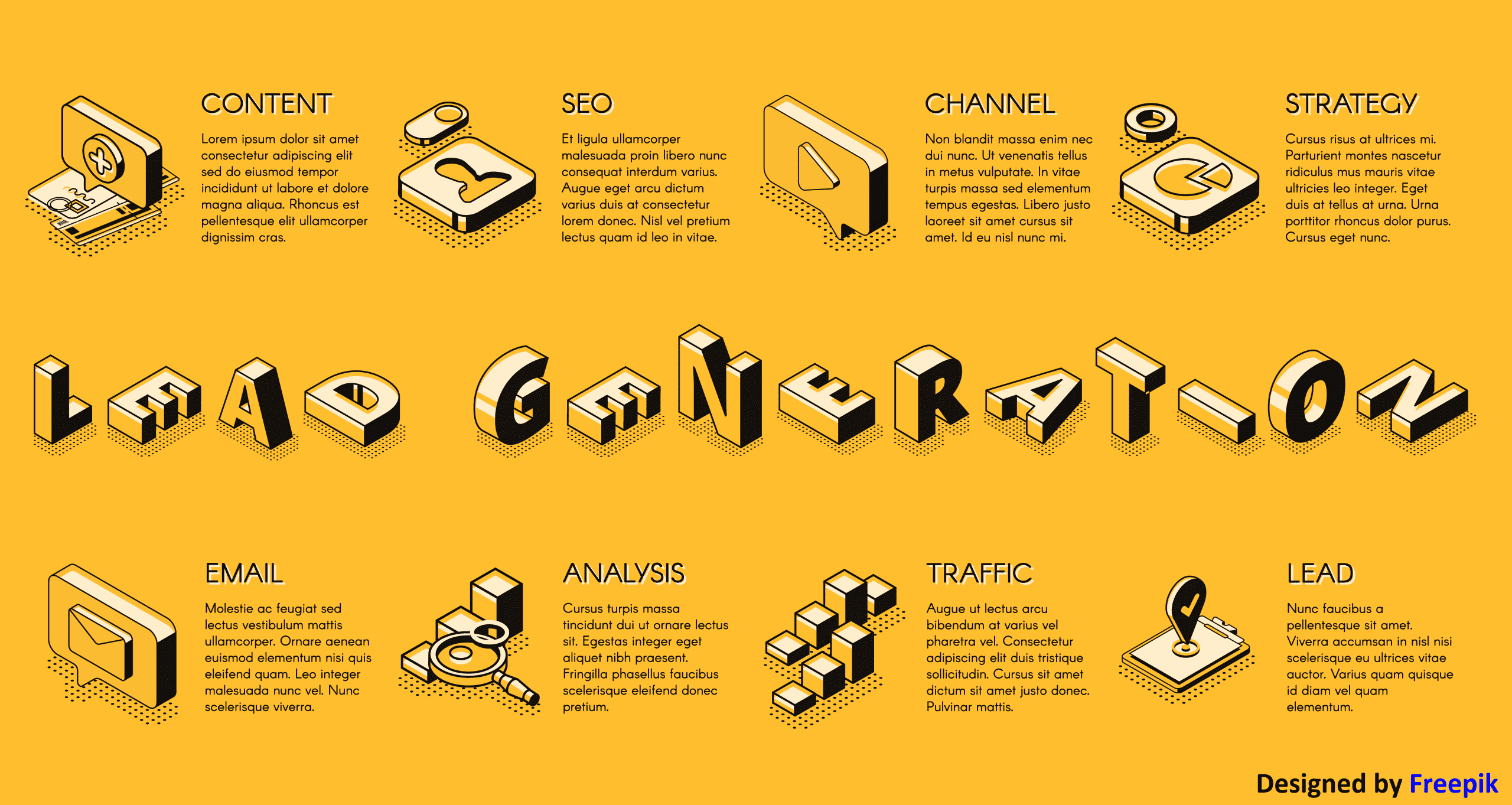
Lead Generation
A person interested in a company's product or service in any way, shape, or form is a Lead.
Leads are usually heard from a business or organization after communicating (by submitting personal information for an offer, test, or membership) rather than receiving random calls from the person purchasing their contact information.
Suppose you survey online to learn more about taking care of your car. A day or so later, you will receive an email from an auto company that has created a survey on how they can help you take care of your car. This process would be much less inconvenient than if they called you when you didn't know you cared about car maintenance, right? This act is that of a leader.
And from a business perspective, the information that the auto company collects about you from your survey responses helps them personalize open communication to solve your existing problems - and don't waste time calling leads who have no interest in auto services.
Stages of An Effective Lead Generation Process:
Lead Awareness:
This stage is about how Leads become aware of an organization and its offerings. Significant activities in the Lead Awareness Stage include networking, public relations, advertising, and content; these are some goal-setting shareware you can use. Also, in most businesses, referrals or search results are the first exposure an organization receives.
Lead Education:
Once lead awareness is created, you must build trust in your products, services, solutions, and skills. A relevant newsletter, event, or seminar can be an excellent tool for lead education as it allows you to showcase your skills, knowledge, resources, and experience over time. What the lead education offer teaches is essential here.
Lead Sampling:
Today's shift in a lead generation now incorporates lead sampling.
Lead Conversion:
Lead conversion, or what most businesses still refer to as sales, is a seriously altered action. If the lead generation process described above is followed to date, very few deals are left. The task here is to ensure the prospect sees the desired results achieved through a solution. It's still a drama of learning and content, but now it's time to show all the evidence and predict the outcome of your process.
Resource:
https://www.verizon.com/business/small-business-essentials/resources/generating-and-converting-leads-is-mostly-what/
Disclaimer:
Wherever any material is quoted as sourced from the published text with publishing rights vested in an individual, it is stated that it is a pure quotation and has no intention to claim it as our own.
Image Source: www.freepik.com
499 adminMay 17, 2022
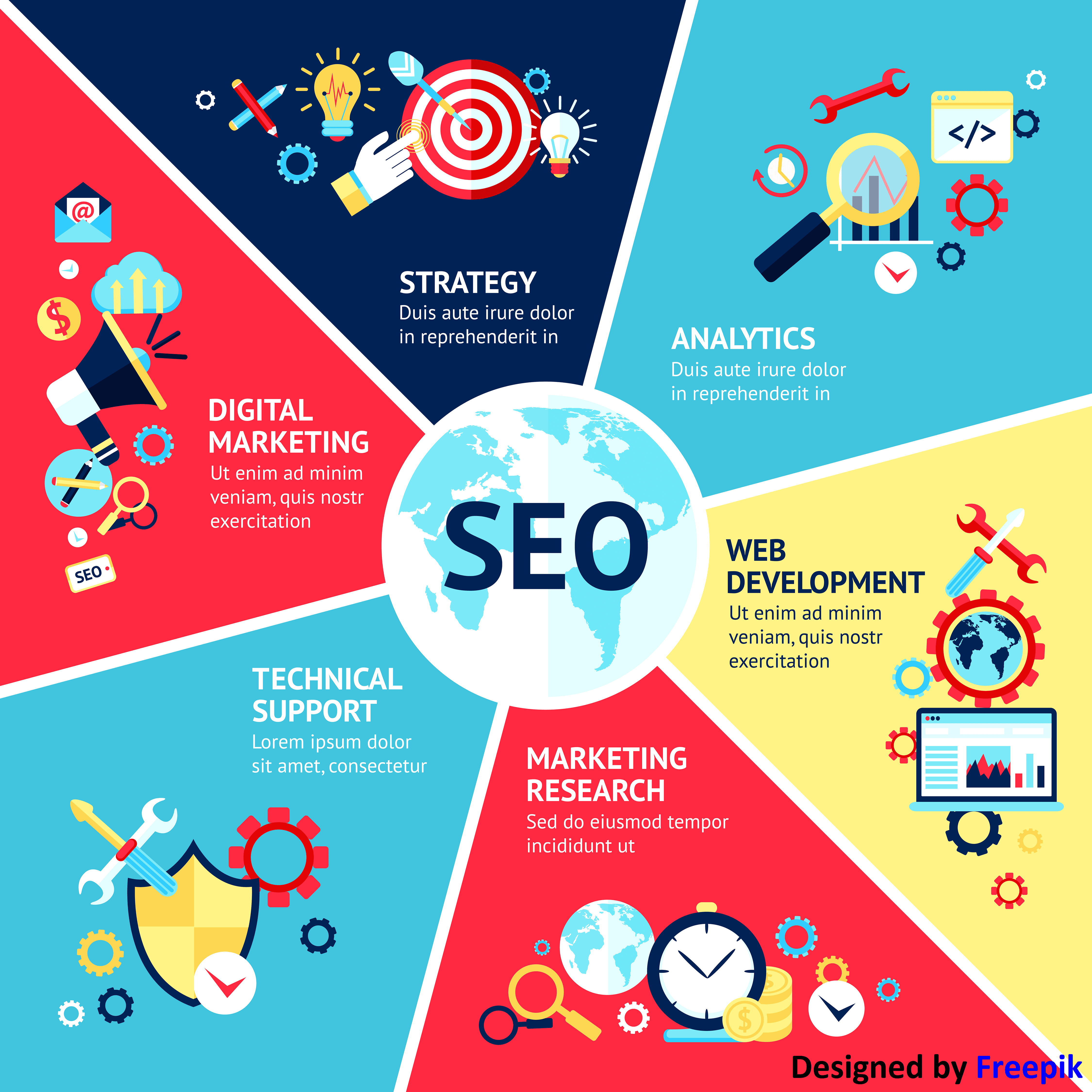
Dwell Time-Why is it Important for SEO
What Is Dwell Time?
Dwell Time is the Time spent by a Google searcher (users) on a page in search results before returning to the SERPs. Many SEO professionals consider dowel time to be an important Google ranking signal.
For Example:
If you search"how to lose weight" on Google, the first result looks like a good fit. So you click on it. But when you get there and the content isn't helpful, after 5 seconds, you click back on the results. Your Dwell Time was 5 seconds. And google algorithm understands that you weren't happy with that result. Page visitors opt-out of your website for several reasons.
These can be:
- The site is spammy
- Content is misleading
- Content has many grammatical errors
- Slow page loading speed
- The website is not mobile-friendly
- Too many pop-up windows
- Other
Why Is Dwell Time Important for SEO?
One can use Dwell Time to determine how long a particular web page caters to visitors. It indicates the quality and relevance of your page content. The more time visitors spend on your web page before returning to the SERPs, the more valuable your page distributes to online users.
For content-oriented websites, the longer Dwell time is when your page content captures the online user's search intent. It is a valuable insight as search engines consider optimized content one of the most important ranking signals.
Resources:
https://thriveagency.com/news/what-is-dwell-time-and-why-it-is-important-for-seo/
https://backlinko.com/hub/seo/dwell-time
https://www.searchenginejournal.com/dwell-time-seo/294471/#close
Disclaimer:
Wherever any material is quoted as sourced from the published text with publishing rights vested in an individual, it is stated that it is a pure quotation and has no intention to claim it as our own.
Image Source: www.freepik.com
599 adminMarch 29, 2022

Top 5 SEO Strategies for 2022
Keep updating yourself on the latest developments in SEO and make sure you see the positive results of your SEO strategy; look at the SEO trends that will have the most significant impact in 2022.
1] Create quality content: Google sets its priorities to high-quality, relevant content over everything else when ranking websites in search results—creating quality content with keyword optimization. Use advanced SEO keyword research tools like Semrush and Ahrefs to zero in on your ideal target keywords. Also, include keywords in title tags, meta descriptions, and URL slugs to make it easier for search engines to find them and understand your content.
2] Leverage ethical link-building practices: Link building is an old SEO technique that is still relevant today. Using guest blogging helps share your content with the world, build quality backlinks, and improve your search rankings. Also, create a social media strategy to promote each of your articles through various channels. Track and reclaim your website broken links.
3] Optimize all images: Images optimization is essential for website speed. Using TinyPNG helps achieve good-quality images. To search engines better understand your content, you need to optimize your images with keywords relevant to that image.
4] Improve the user experience: Optimizing your site architecture, improving your site speed, and increasing your site security ranks you high on the SERPs.
5] Repurpose your content: You can repost your content in different ways. Create a slide deck from a blog post and post it on a slideshow owned by LinkedIn. Turn your blog posts into podcasts and post them on iTunes or SoundCloud.Create a video tutorial from your blog post and post it on YouTube.
SEO will thus be an integral part of digital marketing in 2022.
Resource:
https://www.forbes.com/sites/forbescoachescouncil/2022/01/21/seo-strategies-for-2022-how-to-maintain-strong-rankings/?sh=1bc426777c92
https://www.godelta.com/blog/important-seo-techniques
https://fastersolutions.com/top-5-seo-trends-of-2022/
Disclaimer:
Wherever any material is quoted as sourced from the published text with publishing rights vested in an individual, it is stated that it is a pure quotation and has no intention to claim it as our own.
Image Source: www.freepik.com
556 adminMarch 21, 2022

10 DIY Off-Page Optimization Tips
SEO has three essential techniques:
1] On-Page Search Engine Optimization
2] Off-Page Search Engine Optimization
3] Technical SEO
1] On-Page Search Engine Optimization (On-Page SEO):
We do all this within a website, such as a keyword-optimized to attract searchers & engines, title, description, content, image, etc.
2] Off-Page Search Engine Optimization (Off-Page SEO):
All the work that you did outside of the website is Off-page SEO. Like link building, help improve your website position in SERP, etc.
3] Technical SEO:
We are doing one-time work like domain name, hosting, robots.txt optimization, etc.
Top 10 Off-Page SEO Techniques:
1] Social Media Engagement:
Social Media Engagement Is the best Off-page SEO technique. It will help improve brand value and help to grow your business and help in backlinking.
2] Question and Answer:
Question & Answer is one of the best techniques. From this technique, you can increase your website traffic. Quora is the best platform for generating backlinks.
3] Creating Shareable Content:
Great content is the best factor in search engine optimization. We have to create the best and most shareable content. It will increase your website session duration.
4] Video Submission:
If you want to make your video desired to submit your video content, that will help in backlinking.
5] Image Submission:
Share your photos on popular snap submission websites. Before submitting an image, check the title tag, URL, etc.
6] Use Google My Business:
Google My Business is helpful for local SEO ranking.
7] Build Relationship:
The best way is to build relationships by showing worth and becoming an asset for the company from which you want to get a link. Nowadays, you can use LinkedIn, Facebook, and many other social channels for relationship building.
8] Competitive Research:
There are many tools out there for identifying where your competitors get links.
9] Document Sharing:
Create attractive documents related to your website or blog that will help build your audience's trust.
10] Quality Content Is King:
All the SEO activities only work when your content is user-friendly. It will provide quality information to your crowd. It will be to get quality, long-lasting backlinks to your site.
Resource:
https://echovme.in/blog/off-page-seo-strategies/
https://www.forbes.com/sites/forbesagencycouncil/2017/07/26/13-tips-to-build-off-page-seo-and-boost-your-brands-visibility/?sh=4c2499a074b5
Disclaimer:
Wherever any material is quoted as sourced from the published text with publishing rights vested in an individual, it is stated that it is a pure quotation and has no intention to claim it as our own.
Image Source: www.freepik.com
549 adminFebruary 2, 2022

Basic Yoast SEO
This plugin has five million+ active installations and has been downloaded more than 350 million times.
Last Updated: 7 days ago
Requires WordPress Version: 5.6 or higher
Requires PHP Version: 5.6.20 or higher
How to use Yoast SEO on WordPress?
Yoast SEO help in taking care of your WordPress SEO, taking the website ahead of the competition, write the best content with Yoast SEO.
The first thing you Log in to your WordPress website. Then install the Yoast SEO plugin, activate it.
You can do readability analysis to help you write easy-to-read and understand the content.
The SEO analysis:
If you want to create a search engine-friendly page, that's why the SEO analysis tool is there for you. The SEO analysis focuses on the page's title, headline, URL, meta description, and image alt tags.
A Google preview: shows you how your website page looks in search engine result pages and mobile phones.
If you analyze all the topics, you publish or schedule your content with Yoast SEO.
Resource:
https://yoast.com/beginners-guide-yoast-seo/
Disclaimer:
Wherever any material is quoted as sourced from the published text with publishing rights vested in an individual, it is stated that it is a pure quotation and no intention to claim it as our own.
Image Source: www.freepik.com
605 adminDecember 27, 2021 Youtube Video

Investment Rounds Explained: Seed, Series A, B, & C
Most successful startups actively seek external funding at various stages of their development and growth. Outside investment processes are commonly broken down into specific rounds of funding. These rounds include Seed, Series A, Series B, and Series C. Each round allows for investors to obtain equity or partial ownership of the company in exchange for capital.
A fundamental understanding of each investment round is critical for both company owners and those interested in evaluating entrepreneurial prospects. Each round of funding aims to bring ideas to life, empower entrepreneurs to drive growth, and ultimately sustain a successful business that generates substantial long term revenue.
Let’s take a look at each unique investment round...
SeedThe first official investment round that a business partakes in is called ‘Seed funding”. This initial financial support is meant to assist in the early growth of a business venture. The goal is to fuel revenue generation and strategic initiatives during the infant stages of operations. Often, this funding is allocated by the new business for product development or initial expenses like staffing and market research.
The types of investors that assist with Seed funding vary. Sometimes these investors are the founders themselves or their friends and family. Beyond personal relationships, VC firms, incubators, and Angel investors are common contributors in the Seed round of funding. Angel investors are arguably the most common early investors, and they require equity in the company in exchange for their investment. Being that many of these initial investments contain some degree of risk, equity requests have become common.
The specific amount raised during the Seed round can vary from $7,000 to $2.5 million, as it depends on the startup being considered. While many startups eventually move on to other rounds of funding, some decide that Seed investment is all that they need and never engage in further rounds. On average, companies in the Seed round are valued between $3 - $6 million.
Series ASeries A funding is often sought by businesses that have already proven their ability and demonstrated that they are successful to some degree. This demonstration of success can be in the existence of a strong user base, or consistent revenue over an extended amount of time. The objective of Series A funding is to truly scale products, users, and operations.
One of the primary differences between Seed round and Series A is the existence of a solid business model that will lead to sustainable success and an ability to monetize. While many startups successfully raise Seed money, they struggle to monetize. This round of investment has a significant range, as it is not uncommon for Series A rounds to obtain anywhere from $3 - $20 million. If the business in question is within the tech industry or is considered a ‘unicorn’, then Series A funding can average $15 million.
Investors are looking for much more from businesses at this stage than in the Seed round. While the Seed round is focused on powerful ideas, Series A companies must possess a strategy that positions a strong idea for success. These investors are often working at VC firms, and the process is much more nuanced. VC firms are looking for companies that have already received a single investor at this stage, known as an “anchor”. This first investor helps attract the attention of other competitive investors.
An emerging trend within Series A funding rounds is the presence of equity crowdfunding. This provides an alternative for businesses that are unable to create buzz or interest within the VC space. This is a common issue, as less than 50% of businesses that received Seed funding go on to secure Series A funding. Businesses in the midst of Series A funding can be valued at around $25 million.
Series BWhen a business moves into the Series B round of funding, they are well past the development stage. At this point in operations, investment is meant to expand the market potential and reach of a business, as the user base is already established. In order to obtain Series B funding, a company must demonstrate to investors that it is ready to scale sustainably and successfully.
In order to achieve this scale, businesses often bring in additional talent with a track record for business development. Often these professionals are in sales, tech, or advertising. The cost of acquiring this level of talent is a hefty one, which is why the average Series B raise is $33 million. At this point, the company is established and its valuation is reflective of its success to date (between $30-$60 million).
The investors in this round possess the same professional profile as those in Series A. Often an anchor investor at a VC firm gets the ball rolling and inspires others to invest. The primary difference here is the presence of a few select VC firms that specialize in funding later-stage companies.
Series CEvery business that goes through Series C funding is already a success. Because of this, the funds raised in this round usually go towards product development or the acquisition of new companies. Series C investors are looking to more than double the amount that they inject. The idea is to scale as quickly and smoothly as possible, as the business is already successful to some degree.
Being that rapid scale is often the goal here, acquisition of another company is a common use of funds. Since the primary company is successful, it becomes much more conceivable that the same team would be able to acquire a similar or related company and integrate it. This is especially effective if the company being acquired is a competitor with a slightly different offering or market. This allows the Series C company to immediately expand.
Another common approach is to broaden the target market. If a company is a huge success in America, Series C can help expand operations overseas where a similar approach can be used to scale quickly.
Due to the demonstrated success of companies that make it to Series C, the investment is viewed as much less risky. A less risky investment increases the presence of potential investors. This is why investment banks, hedge funds, and private equity firms all appear during this round. These investors are looking to secure their own positioning as leaders, which is why they are inclined to invest in a company that is already doing very well.
Series C businesses often secure hundreds of millions of dollars in funding, as they are often valued at around $120 million. This valuation is common of companies that are looking towards an IPO, and Series C only increases this valuation. The primary difference in valuation at this stage is the fact that it is based on real data and not expectations for success.
Disclaimer:
Wherever any material is quoted as sourced from the published text with publishing rights vested in an individual, it is stated that it is a pure quotation and no intention to claim it as our own.
Image Source: www.freepik.com
1802 adminApril 14, 2021

Tattoo This On Your Forearm – Data Is The New Gold
589 adminJune 15, 2023 Youtube Video

The Best Cyber Security Software Used By Chicago-Based Companies
In this blog, we are going to provide the best cybersecurity software used by Chicago-based companies:
1. SiteLock: SiteLock is a leading web security and cyber security software with over 12 million websites under the protection of this solution. From delivering 360-degree security to vulnerability detection, from automatic malware removal to WordPress database scanning, features include web threat management, two-factor authentication, etc. It also enhances security testing for websites and accelerates performance.
2. Log360: Log360 is a log management and cybersecurity device that supports enterprises in keeping their networks and data free from malicious activity. With real-time analysis, correlation, and archiving proficiency, this solution monitors critical changes within groups and tracks suspicious user behavior.
Features: Behavioral analysis, AI/machine learning, incident, management, vulnerability scanning
3. Cyber Control: Cyber security project plan design and framework, fraud detection describing suite, and file security review for data privacy and GDPR. Datplan's cyber control software allows organizations to introduce a robust cyber security risk framework while red-flagging potentially high-risk transactions using anti-fraud detection tools and file security tests to support data privacy and GDPR requirements.
4. Acunetix: Acunetix is one of the leading automated cybersecurity systems designed to combat the alarming growth in web attacks. With a wide range of automatic and manual penetration testing tools, it enables users to gain insight into vulnerability assessments and remediate discovered threats.
Features: IOC Verification, Vulnerability Scanning...
5. AppTrana: AppTrana identifies application risk status, instantly patches vulnerabilities, improves website performance through full site acceleration, and ensures proactive remediation of DDOS/emerging threats through continuous monitoring in one place. This application also helps businesses continue to identify the security status of applications through automated security scans and manual pen testing.
Features: Tokenization, AI / Machine Learning, Behavioral Analytics, Vulnerability Scanning, Allowlisting / Blocklisting.
Resource:
https://www.softwareworld.co/top-cybersecurity-software/
https://www.guru99.com/cybersecurity-software-tools.html
Disclaimer: Wherever any material is quoted as sourced from the published text with publishing rights vested in an individual, it is stated that it is a pure quotation and has no intention to claim it as our own.
Image Source: www.freepik.com
505 adminJanuary 27, 2023

The Cost Of Hiring A Part Time Cyber Security Officer In Chicago
The Importance of Cyber Security:
The importance of cyber security degenerates to the need and requirement to keep particulars and data safe. Today, people store large amounts of data on computers, servers, and other connected devices. Much of this is sensitive, including personally identifiable information, passwords, or financial data. And then, there is intellectual property (IP).
If a cybercriminal gains access to this data, they can wreak havoc. They can share sensitive information and use passwords to steal your funds. Organizations must have security measures in place that enable them to comply.
In the case of public services or government agencies, cyber security helps ensure that the community can rely on its services.
Benefits of cyber security
By implementing security measures, businesses and individuals (such as MSSPs) can protect themselves and others from a full range of cyber security threats.
With cyber security, companies know that unauthorized access to their network or data is protected. Both end users, organizations, and their employees benefit.
It's not just detection that strengthens cybersecurity but also mitigation and response.
The cost of hiring a part-time cyber security officer in Chicago:
The average annual Part-Time Cyber Security salary in Chicago is $78700. Most pay between $43210 to $113108 per year. According to glassdoor.com, cyber security officer part-time cost in Chicago is- $49.27 - $52.35 Per Hour (Employer est.)
Cyber Security Salary by Position, Low & High
| Position | Low | High |
|---|---|---|
| Information Security Manager | $150,000 | $225,000 |
| Cyber Security Engineer | $126,000 | $213,000 |
| Application Security Engineer | $130,000 | $200,000 |
| Network Security Engineer | $120,000 | $208,000 |
| Cyber Security Analyst | $114,000 | $160,000 |
| Penetration Tester “Ethical Hacker” | $114,000 | $160,000 |
Resource:
https://mondo.com/blog-highest-paid-cybersecurity-jobs/
https://www.logpoint.com/en/blog/what-is-cyber-security/#:~:text=With%20cyber%20security%2C%20companies%20have,it's%20also%20mitigation%20and%20response
Disclaimer:
Wherever any material is quoted as sourced from the published text with publishing rights vested in an individual, it is stated that it is a pure quotation and has no intention to claim it as our own.
Image Source: www.freepik.com
489 adminJanuary 23, 2023

Top 5 Cyber Threats You Need To Make Your Agency Clients Aware Of
As attackers automate more and more attacks, it's easier for them to target hundreds, if not thousands, of small businesses at once. Small businesses often have less stringent technical defenses, less consciousness of threats, and less time and resources for cyber security. It makes them easy targets for hackers than larger businesses.
For these reasons, agency clients need to be aware of threats and how to stop them. This article will cover the Top 5 cyber threats you need to make your agency clients aware of.
Phishing Attacks: Phishing is one of the most prominent and widespread types of cyber-attacks. The social engineering attack is where the attacker impersonates a trusted contact and sends fake mail to the victim. The victim opens the mail and clicks on the malicious link or opens the attachment of the mail. Phishing attackers gain access to confidential information and account credentials by doing so.
Malware Attack: It is one of the most common cyber-attacks. “Malware” refers to malicious software viruses, including worms, spyware, ransomware, adware, and Trojans. A Trojan virus disguises itself as legitimate software. Ransomware blocks access to critical components of a network, while spyware is software that steals all your confidential data without your knowledge. Malware breaches networks through vulnerabilities. When a user clicks on a dangerous link, downloads an email attachment, or when a contaminated pen drive is used.
Weak Passwords: Another significant threat small businesses face is employees using weak or easily guessed passwords. Many Agencies Clients use multiple cloud-based services, which require different accounts. These cloud-based services can often contain sensitive data and financial records. Using easily guessed passwords, or using the same password for multiple accounts, can compromise or hack this data.
Man in the Middle: A man-in-the-middle attack is also known as an eavesdropping attack. In this attack, the attacker comes in between the two-party communication, i.e., hijacks the session between the client and the host. By doing this, hackers steal and manipulate your data. The client-server communication is cut off; the communication line goes through the hacker.
Denial-of-Service Attack: Denial of service is a significant risk for companies. In this attack, Attackers target systems, networks, or servers and flood them with traffic to exhaust their resources and bandwidth. When this happens, it becomes overwhelming for the server to keep up with incoming requests, resulting in the website it hosts either shutting down or slowing down. The leaves legal service requests need to be addressed. It is also known as a DDoS attack when attackers use multiple compromised systems to launch this Denial-of-Service attack.
Resource:
https://expertinsights.com/insights/the-top-5-biggest-cyber-security-threats-that-small-businesses-face-and-how-to-stop-them/
https://onlinedegrees.und.edu/blog/types-of-cyber-security-threats/
https://www.simplilearn.com/tutorials/cyber-security-tutorial/types-of-cyber-attacks
Disclaimer:
Wherever any material is quoted as sourced from the published text with publishing rights vested in an individual, it is stated that it is a pure quotation and has no intention to claim it as our own.
Image Source: www.freepik.com
560 adminJanuary 19, 2023

5 Reports You Should Monitor On Your Cybersecurity Dashboard?
In an ever-evolving threat space, there are ways to optimize security postures and plans with better, more effective reporting.
A good dashboard is key to summarizing data from a monitoring solution, and here are five reports you should be monitoring on your cybersecurity dashboard.
1. Mean-Time-to-Detect (MTTD) and Mean-Time-to-Resolve (MTTR): How long do security threats go unnoticed? Mean-Time-to-Detect (MTTD) measures how long your team is aware of indicators of understanding and other security threats. What is the average response time for your team to acknowledge a cyber-attack once it becomes aware of it? A better measure of the quality of implementation of your incident response plan.
2. Number of systems with known vulnerabilities: Knowing the number of endangered assets in your environment is a crucial cybersecurity metric for determining the risk to your business. Managing updates and patches is a complex process, but very important to avoid errors in your environment. A vulnerability scan that covers all assets will indicate what needs to be done to improve your company's security posture.
3. SSL certificates: An SSL certificate is a small-scale file that certifies the ownership of the cryptographic keys of the website or company with which the data is being exchanged, guaranteeing the transaction's authenticity. Monitoring the security requirements for each certificate and ensuring that they are correctly configured on the server prevents them from falling into the wrong hands and that your company's digital identity is not used to steal user information.
4. Unidentified Devices on Internal Networks: When employees bring their own devices, they can introduce malware and other cyber risks, as can poorly configured Internet of Things (IoT) devices, which is why a network intrusion detection system is an essential part of organization security.
5. No "Superuser" access level: Best practices in information security management include complete control of user access levels to company resources, requiring employees to access only the data, systems, and assets necessary for their work. Identifying the access levels of all network users allows you to adjust as needed by blocking any superuser or administrator that doesn't make sense.
Resource:
https://valerity.com/2020/10/20/the-5-aspects-your-cybersecurity-dashboard-should-provide/
https://cipher.com/blog/10-cybersecurity-metrics-you-should-be-monitoring/
https://www.upguard.com/blog/cybersecurity-metrics
Disclaimer:
Wherever any material is quoted as sourced from the published text with publishing rights vested in an individual, it is stated that it is a pure quotation and has no intention to claim it as our own.
Image Source: www.freepik.com
630 adminJanuary 16, 2023

What Should Be The Cyber Security Spent In Your Clients’ Maintenance Contract?
Everything is digital these days, both on-premises and in the cloud. So cyber security personnel and security measures are something you will have to spend money on. But how should your company decide how much money to budget for security? And how should your company decide how to spend it?
Creating a Cybersecurity Budget Breakdown:
All organizations should consider five main categories when allocating their cyber security maintenance contracts.
Compliance: Some compliance ordinances dictate security budgets distribute in the healthcare sector. For example, HIPAA defines data privacy and security obligation to protect individuals' medical records and other personal health information. To meet these obligations and avoid potentially significant fines, CISOs must budget for specific tools and technologies.
Ongoing existing risk assessments: Proactive CISOs must continuously monitor the effectiveness of security controls in their environment and calibrate against prevailing attack vectors. Suppose the risk rises above a previously agreed-upon threshold. In that case, the CISO needs to assess the risk and discuss the risk with management to find another budget or reallocate the budget -- or agree to accept a higher risk level. Tools and services for budgets in this category include cyber insurance, bug bounty initiatives, penetration testing, and incident response.
Ongoing security training: Security training is no longer an event on the annual mandatory compliance checklist. Every employee and contractor must be involved in this ongoing effort. Using public shame or fear to motivate employees is not adequate. Instead, cybersecurity training needs to be memorable.
New business initiatives: A CISO must evaluate any new business initiative adopted within the company and implement a security budget to ensure that the company and its new customers remain secure. For example, marketing departments may outsource content creation to an overseas third-party provider or decide to store all customer support cases in a cloud storage platform. Both of these scenarios have additional risks, which CISOs and security teams should address before implementing.
Business priority shifts: It can be related to people, technology, or revenue. From a public perspective, an example of a business priority shift is the hybrid, or, in some cases, permanent work-from-home model and the adaptation required to maintain cybersecurity best practices. From employee onboarding -- and offboarding -- to employee use of a shared home router, local offline data storage, home privacy needs to personal devices, and video conferencing, all require security adaptation and budget realignment.
What is a typical cybersecurity budget?
While there is no versatile answer when determining what a "typical budget" looks like for cybersecurity operations, some studies can provide some sensitivity.
Recent research by Deloitte and the Financial Services Information Sharing and Analysis Centre found that financial services spend an average of 10% of their IT budgets on cybersecurity. It costs approximately 0.2% to 0.9% of company revenue or $1,300 to $3,000 per full-time employee. For a more significant picture specification, consider that Microsoft CEO Satya Nadella recently disclosed in a statement that the tech behemoth would "invest more than $1 billion annually in cybersecurity for the foreseeable future". Finally, it is worth noting that the US President's 2019 budget allocated $15 billion to spend on cybersecurity, which is about 0.3% of the entire economic budget ($4.746 trillion).
Resource:
https://www.mstech.com/client-contract-includes-cybersecurity-restrictions/
https://www.techtarget.com/searchsecurity/tip/Cybersecurity-budget-breakdown-and-best-practices
https://cybersecurity.att.com/blogs/security-essentials/how-to-justify-your-cybersecurity-budget
Disclaimer:
Wherever any material is quoted as sourced from the published text with publishing rights vested in an individual, it is stated that it is a pure quotation and has no intention to claim it as our own.
Image Source: www.freepik.com
504 adminJanuary 6, 2023

Do You Have A CCSO?
What does a Cloud Security Officer (CCSO) Do?
Cloud security is a set of policies, technologies, and controls used to protect cloud-based virtual data and services.
Many more companies are moving to cloud-based virtual networks and cloud-based storage solutions that provide a lot of flexibility but have security challenges.
Cloud security officers (CCSO) understand that a virtual environment must be protected from threats with adequate security controls to prevent, control, detect and remediate intrusions and vulnerabilities. They plan, implement and report on their cloud security controls, focusing on 'hardening' the environment through identity management, physical security, employee security, privacy, access testing, access control, data integrity, and encryption….
Job Responsibilities of Cloud Security Officer:
Cloud security officers are involved in various practices related to designing, implementing, and configuring cloud security systems. You will be responsible for the onboard security of the cloud technology and the data contained within these systems.
This job also entails that professionals must work back-to-back with their team of employees. So, the assignment asks the professional to collaborate with the rest of the workforce. In this way, the issue is resolved spectacularly, and the various perceptions jumping on the table from different perspectives can be used well.
Resource:
https://www.cloudinstitute.io/blog/cloud-security-engineer-job-role-and-responsibilities/
https://mile2.com/cloud-security-officer/#:~:text=They%20plan%2C%20implement%2C%20and%20report,%2C%20data%20integrity%2C%20and%20encryption
Disclaimer:
Wherever any material is quoted as sourced from the published text with publishing rights vested in an individual, it is stated that it is a pure quotation and has no intention to claim it as our own.
Image Source: www.freepik.com
508 adminJanuary 3, 2023

Top 5 Cyber Strategies Your Startup Should Know
Did you know that over 40% of cyber-attacks are on startups, while less than 15% are prepared to handle them?
Most startups fail to acknowledge that protecting businesses from cyber fraud is more than antivirus software and firewalls. Another thing that prevents them from investing in good cyber security is the need for more funding.
Still, cyber security should be the first thing on your mind outside of your day-to-day business.
5 Proven Cyber Security Strategies for your Startup:
1. Train and educate employees: Studies show that internal employees cause 43% of data loss. Most of these incidents are accidental. They can lose systems, share login credentials, or open fraudulent emails that trigger virus attacks in the network.
2. Protect the Network, System, and Data: Conduct risk assessments, assess potential risks, identify and analyze potential threats, and devise strategies to bridge all gaps. Access all information about who owns data and what data is stored. Install a good antivirus with a firewall, a threat prevention tool, and ransomware encryption.
3. Back-Up Your Data Regularly: It is critical for businesses to back up data regularly, which is essential to maintain business continuity in the event of data loss.
4. Updating The Software: To improve the company's cyber security, update the software regularly and upgrade to a better technical solution tool whenever necessary. Failure to update the software can lead to an attack on the business.
5. Cloud Security: Small businesses are turning to cloud solutions. While cloud-based systems make businesses highly efficient, accessible, and cost-effective, companies need to adopt appropriate cloud security measures to mitigate cyber vulnerabilities.
Resource:
https://beststartup.us/5-proven-cyber-security-strategies-to-protect-your-startup/
https://margadvisory.com/top-5-cyber-security-strategies-for-small-businesses/
Disclaimer:
Wherever any material is quoted as sourced from the published text with publishing rights vested in an individual, it is stated that it is a pure quotation and has no intention to claim it as our own.
Image Source: www.freepik.com
579 adminDecember 20, 2022

Threat Vectors Most Often Noticed by Chicagoland-Based IT Companies
Below are the top 5 types of information security threats that Chicagoland-based IT companies often notice:
1. Phishing
Phishing involves fraudulent communications intended to steal sensitive data, deploy malware, commit financial fraud, or practically any other nefarious effort you can imagine. Phishing attempts often occur over email with instructions to get the beneficiary to click a link, open an accessory, send money to a bank account, or provide sensitive information. Such sensitive information includes credentials, a common entry point for malware deployment, including ransomware, one of the most expensive cyber threats to address.
2. Vulnerability Exploit
Researchers identify new vulnerabilities daily in software, hardware, and firmware. One needs to stay on top of these searches, so threats don't surprise you.
How to keep systems updated and patched?
Vulnerability scans help identify systems that need patches. And the NIST Cybersecurity Framework recommends using a risk-management process to address vulnerabilities based on priorities.
3. Misconfigurations
Security misconfiguration results from failure to properly apply security controls to devices, networks, cloud applications, firewalls, and other systems. It can include non-payment admin credentials and open ports to unutilized web pages and unsecured files.
This passive attack vector is the organization's problem and can lead to data breaches, uncertified access, and other major security incidents.
4. Compromised Credentials
Cybercriminals use this attack vector because it is straightforward to get sensitive and valuable information through an account once established within an organization, but al., These massive destructions before they are discovered.
5. Supply Chain Vendors
No matter how robust your cybersecurity solutions are, you're only as strong as your anaemic partner, the vendor.
In today's interconnected digital world, the third-party risk is growing exponentially. Numerous high-profile data breaches in recent years have highlighted the consequences of vendor breaches, demonstrating that cybercriminals target suppliers with weak security postures as an entry point into another organization.
Preventing Malvertising
One must prevent malvertising by ad networks by adding authentication; This reduces the possibility of user compromise. Validation may include: vetting potential customers by requiring legal business documentation, two-factor authentication, and Scanning possible ads for malicious content before publishing the ad.
To minimize malware attacks, web hosts should periodically test their websites from unpatched systems and monitor those systems for any malicious activity.
Enterprise security teams must ensure that software and patches are kept up-to-date, and network antimalware tools are installed. This activity helps to reduce the risk of malvertising attacks.
Resource:
https://www.techtarget.com/searchsecurity/feature/Top-10-types-of-information-security-threats-for-IT-teams
https://www.dig8ital.com/post/the-most-common-cyber-attack-vectors-of-2022
https://arcticwolf.com/resources/blog/top-five-cyberattack-vectors/
Disclaimer:
Wherever any material is quoted as sourced from the published text with publishing rights vested in an individual, it is stated that it is a pure quotation and has no intention to claim it as our own.
Image Source: www.freepik.com
585 adminDecember 2, 2022

Cyber Security for Small Business
Due to technological advancements, individuals and companies are now more interconnected than ever. However, the networks that keep people linked are also rife with cyber risks. Companies today rely on these networks to execute financial transactions, sell products, and offer online services; therefore, cybersecurity is critical.
These cybersecurity solutions come in a variety of flavors and prices. And some small and medium-sized firms may lack the cash or money to cover most of them. There is no lack of cyber threats aimed at small businesses, whether ransomware, DDoS (distributed denial of service), phishing, or another danger.
Importance of cybersecurity for small businesses
While major corporations, such as multinational corporations, have the resources to invest in complete cybersecurity systems, small firms may not have the same luxury. Nonetheless, cybersecurity is an integral component of small business operations. Even the most basic security measures can prevent a wide range of dangers, making investing in expensive security solutions useless if your company is tiny. Instead, consider examining your goals and budget to evaluate whether cybersecurity solutions are enough to secure your company's critical assets. So how does cybersecurity benefit you and your business? The following points are some of the ways that cybersecurity helps small businesses.
1. Inform employees of security principles.
Establish fundamental security practices and regulations for employees, such as mandating secure passwords, and develop acceptable Internet use guidelines that specify penalties for breaking firm cybersecurity policy. Establish ground rules for managing and securing consumer information and other essential data.
2. Prevent cyber assaults on information, computers, and networks.
Maintain clean machines: the most effective defense against viruses, malware, and other online risks is to use the most recent security software, web browser, and operating system. Configure your antivirus program to scan after each update. Install any additional critical software updates as soon as they become available.
3. Create an action plan for mobile devices.
Mobile devices can provide substantial security and management difficulties, especially if they contain sensitive data or have access to the corporate network. Users must password-protect their devices, encrypt their data, and install security software to prevent thieves from stealing information. Establish processes for reporting missing or stolen equipment.
4. Create backups of critical corporate data and information.
Back up the data on all PCs regularly. Word processing papers, electronic spreadsheets, databases, financial files, human resources files, and accounts receivable/payable files are all examples of critical data. Back up data automatically, or at least monthly, and save backup copies elsewhere or in the cloud.
Takeaways:
Cybersecurity is critical for every firm that relies on IT resources and the internet to function, whether large, medium, or small. Various security strategies and methods need varying amounts of money. Without adequately analyzing your company's needs, you may invest too much or too little in cybersecurity, leaving you susceptible to cyber assaults.
Consult with an IT specialist or a business consultant to discover the best cybersecurity solutions for your company and budget.
Resource:
https://www.wired.com/sponsored/story/why-small-businesses-need-to-take-cybersecurity-seriously/
https://www.fcc.gov/communications-business-opportunities/cybersecurity-small-businesses#:~:text=Broadband%20and%20information%20technology%20are,data%20from%20growing%20cybersecurity%20threats
https://www.businesstechweekly.com/cybersecurity/application-security/why-is-cybersecurity-important/
Disclaimer:
Wherever any material is quoted as sourced from the published text with publishing rights vested in an individual, it is stated that it is a pure quotation and has no intention to claim it as our own.
Image Source: www.freepik.com
503 adminAugust 22, 2022 Youtube Video

Cyber Security And Data Security
This article will define both words and explain how they might be applied in your organization.
What is Data Security?
When people talk about information security, they usually mean data security. This sort of security protects data from unauthorized accidental, or intentional modifications. Physical safety, logical controls, cyber security, administrative controls, and other protocols are also used to protect your data. Let's discuss more of these techniques.
Types of Data Security
• Encryption: Encryption keys scramble data using an algorithm to convert standard text characters into an unreadable format that only authorized users can read. File and databases use encryption/tokenization solutions to protect sensitive volumes by disguising their contents. The majority of systems also incorporate security key management features.
• Erasure Data: Data erasure is safer than ordinary data wiping. One must use software to overwrite data on any storage device. Data recovery is close to impossible if not done.
• Data Masking: Organizations can allow teams to develop applications or train individuals using accurate data by masking data. It conceals personally identifiable information (PII) as appropriate so that development can occur in compliant contexts.
• Data Resilience: The ability of an organization to withstand any failure – from hardware issues to power outages affecting data availability – determines its resilience.
What is Cyber Security?
Cyber security is the activity of protecting computers, servers, mobile devices, electronic systems, networks, and data from hostile attacks. It is often referred to as information technology security or electronic information security. The word is used in various contexts, ranging from business to mobile computing.
Types of Cyber Security:
• Cybersecurity of Critical Infrastructure: Supervisory Control and Data Acquisition (SCADA) systems usually depend on older software. Critical infrastructure organizations are frequently more vulnerable to attack than most.
• Network Security: Addressing vulnerabilities in one's operating systems and network architecture is part of network security, e.g., servers and hosts, wireless access points, network protocols, etc.
• Cloud Security: Cloud security is a set of security safeguards meant to safeguard cloud-based infrastructure, applications, and data. These safeguards cover user and device authentication, data and resource access management, and data privacy.
• Application Security: Application security is all about addressing vulnerabilities caused by insecure development processes in the design, coding, and publication of software or a website.
Difference between Cyber Security and Data Security:
To summarize, data security is concerned with securing the data itself. On the other hand, cyber security comprises all forms of digital security, including digital data and digital systems. Contact the experts at SSI today if you're ready to improve your data security and cyber security protocols.
Resource:
https://insider.ssi-net.com/insights/what-is-the-difference-between-data-security-and-cyber-security
https://www.ibm.com/topics/data-security
https://www.itgovernance.co.uk/what-is-cybersecurity#:~:text=Cyber%20security%20is%20the%20application,of%20systems%2C%20networks%20and%20technologies
https://www.kaspersky.com/resource-center/definitions/what-is-cyber-security
Disclaimer:
Wherever any material is quoted as sourced from the published text with publishing rights vested in an individual, it is stated that it is a pure quotation and has no intention to claim it as our own.
Image Source: www.freepik.com
549 adminJune 6, 2022 Youtube Video

Securing Mobile Apps
Following are some steps to implement a mobile trial and obtain a hacker-free application:
1] Source Code Encryption:
A major part of the code in native mobile apps is on the client-side. Cybercriminals can easily detect the bug vulnerabilities in the design and source code of mobile applications using mobile malware. Then, using reverse engineering techniques, authentic apps are repackaged into malicious apps and uploaded to third-party app stores to attract suspicious users. Recent reports suggest that malicious code affects more than 12 million mobile devices at any given time. Therefore, developers should ensure that the apps are protected from tampering-proof and reverse engineering attacks. So you need to encrypt your source code, and the encrypted source code will ensure that no one else can access that source code.
2] Platform-specific Limitations:
If you are developing multiple mobile apps, it is better to understand the security features as well as the limitations of the platform and code accordingly. You should also consider different user case scenarios, encryption support, password support, and geo-location.
3] Secure the data in transit:
When a mobile application accesses an enterprise or other confidential data, unstructured information is usually stored in the device storage. In order to protect data from data theft, it is advisable to use a VPN or SSL tunnel.
4] Secure the Backend:
Mobile applications communicate with each other through the API, which is vulnerable to attacks. The backend server should have security measures in place to protect against malicious attacks. Ways to strengthen API security include embedding API gateways, using official APIs in code, conducting code reviews, adding firewalls, using API keys, and using 2-factor authentication and tokens.
5] Cryptography :
Use advanced encryption techniques such as AES and SHA-256 with 256-bit and 512-bit encryption for hashing.
6] Prevent unexpected data pilferage:
When a user interacts with your app, they agree to specific permissions, which allow brands and businesses to collect important personal customer information. By enforcing ethical advertising and using secure analytics providers, you can be sure that your user data will never be inadvertently leaked to hackers or malicious commercial vendors.
7] Complete Dynamic and Static Verification:
Dynamic and static verification techniques are still not prominently designed. Little is it made available for the dynamic versions of mobile apps.
Following these steps can simply help enhance mobile app security.
Resource:
https://huddle.eurostarsoftwaretesting.com/8-things-to-ensure-mobile-app-security/
https://www.flatworldsolutions.com/IT-services/articles/mobile-app-security-tips.php
Disclaimer:
Wherever any material is quoted as sourced from the published text with publishing rights vested in an individual, it is stated that it is a pure quotation and has no intention to claim it as our own.
Image Source: www.freepik.com
597 adminMarch 7, 2022 Youtube Video

Cyber Security
Cyber security or computer security or information technology security (IT security) is a practice of protecting servers, computers, mobile devices, and electronic systems, networks, etc., from malicious attacks.
Since the internet's arrival & with the digital transformation initiated in recent years, the nation of cyber security has become a familiar subject both in our professional and personal lives.
Cyber security and cyber threats have been constant for the last 50 years of technological change. The expansion of viruses in the 1990s to 2000s marked the institutionalization of cyber threats and cybersecurity.
Threats come from malicious insiders who gain unauthorized access to sensitive documents and files.
Callowness about cyber security measures is one of the top reasons many industries and individuals get affected. Cyber security is one of the significant challenges in the world. Many reports say that cybercrime is up 600% after the covid-19 pandemic.
The NETSCOUT treat intelligence report saw 4.83 million attacks in the year's first half. That equates to 26,000 attacks per day and 18 per min; this is a very huge no. Everyone to become more alert about mobile security, computer security, etc.
Type of cyber security:
- Network security: it is the process of securing a computer network.
- Cloud security: cloud security means securing data, applications, and infrastructure in the Cloud.
- IoT (Internet of Things) security: the internet and wireless network standards such as WiFi and Bluetooth, etc., due to the growth of small devices like smartphones, televisions, etc., that constitute the. "internet of things."
- Information security: protection of data
Type of cyber-attacks / threats:
- Malware includes ransomware, botnet software, RATs, rootkits and boot-kits, viruses, and worms.
- Backdoors
- DDoS attacks flood servers, systems, and networks with traffic to knock them offline.
- DNS poisoning attacks.
- Formjacking, which inserts malicious code into online forms.
- Cryptojacking, which installs illicit cryptocurrency software.
Cyber security measures:
- Immediately Update your software and operating systems: it will benefit from the latest security patches when you update your software and operating system.
- Use anti-virus software: anti-virus software help you to detect and remove threats. Also, keep your software updated for the best level of protection.
- Use strong passwords: strong passwords always helps.
- Avoid spam emails: don't click on links or buy anything from spam emails.
- Safe and secure WiFi: Avoid using unsecured WiFi networks in public places.
- Protect your sensitive personal identifiable information: personally identifiable information(PII) is any information that a cybercriminal can use to identify your personal information.
- Use your mobile device securely: strong password, install apps from a trusted source, keep the device updated it helps.
- Online account checking: review your online account regularly check the credit report. Don't share OTP.
- Backup your data: back up your information regularly follow the 3-2-1 backup rule.
Resource:
https://www.itgovernance.co.uk/what-is-cybersecurity#:~:text=Cyber%20security%20is%20the%20application,of%20systems%2C%20networks%20and%20technologies.
https://www.kaspersky.co.in/resource-center/definitions/what-is-cyber-security
https://en.wikipedia.org/wiki/Computer_security
Disclaimer:
Wherever any material is quoted as sourced from the published text with publishing rights vested in an individual, it is stated that it is a pure quotation and has no intention to claim it as our own.
Image Source: www.freepik.com
477 adminJanuary 24, 2022 Youtube Video

What Venture Capital Firms Look for When Funding Startups
659 adminAugust 23, 2023

Networking: How Much and Where?
628 adminMay 12, 2023 Youtube Video

How much time should I spend as a CEO of a small agency in getting new business from old clients?
According to the Harvard Business Review, most business owners spend a small portion of their time with their customers. As little as 3% of their working hours. This means there are many weeks when business owners only spend a couple of hours with the people who are the essential part of their business.
This raises an important question. How much time should I spend as a CEO of a small agency in getting new business from old clients?
First, it is crucial to maintain a good relationship with your old customers. This means staying in touch with them, understanding their needs, and providing excellent customer service. This can help you retain their business and generate new business through referrals.
In actively seeking new business from old clients, you should dedicate a certain amount of time each week or month to this task. This could include reaching out to them with new offers or promotions, providing updates on your services, or simply checking in to see how they're doing.
It is also essential to balance your efforts between seeking new business from old clients and acquiring new clients. While your old clients can be a valuable source of business, it's crucial to keep expanding your client base to ensure your agency's long-term growth.
Staying in touch with old clients is extremely important. Your communication doesn't have to be frequent or profound, but these relationships need maintenance to stay alive.
Resource:
https://www.morefloods.com/how-much-time-should-small-business-owners-spend-with-customers/
https://customerthink.com/how-much-time-should-ceos-spend-with-customers/
Disclaimer: Wherever any material is quoted as sourced from the published text with publishing rights vested in an individual, it is stated that it is a pure quotation and has no intention to claim it as our own.
Image Source: www.freepik.com
542 adminApril 5, 2023

How Much Time Should I Spend AS A CEO of A Small Agency In Getting New Business From New Clients
As a CEO of a small agency, you should spend a significant amount of time on new business development, including at least 20-30% of your time on sales and marketing activities. This time must include attending networking events, reaching out to potential clients, creating proposals, and nurturing leads. As your agency grows, you may be able to dedicate less time to new business development, but it should always be a priority.
While starting first, you may need to spend even more time on new business development. In the early stages of your agency, you need to build a solid client base to establish your reputation and generate revenue; this may mean dedicating 50% or more of your time to sales and marketing activities.
It's also important to consider your goals when determining how much time to spend on new business development. You may need more time on sales and marketing activities if you have aggressive growth targets. On the other hand, if you are happy with slow and steady growth, you can spend less time on new business development and focus more on servicing your existing clients.
One crucial factor to consider is the size of your agency. If you are a one-person shop, you will need to spend more time on new business development than if you have a team of employees. As your agency grows, you can delegate sales and marketing activities to your team, freeing up your time to focus on other business areas.
In summary, as a CEO of a small agency, you should be spending a significant amount of time on new business development, depending on several factors, including the size of your agency, the stage of your business, and your goals.
Resource:
https://www.morefloods.com/how-much-time-should-small-business-owners-spend-with-customers/
https://www.searchenginejournal.com/get-new-clients/216661/
Disclaimer: Wherever any material is quoted as sourced from the published text with publishing rights vested in an individual, it is stated that it is a pure quotation and has no intention to claim it as our own.
Image Source: www.freepik.com
506 adminMarch 16, 2023

5 Sales Transformation Tools For Your Chicago-Based Small Business
Many free and paid sales tools are launched in the market every day. Here are the top 5 sales tools that are useful for small businesses.
1. Content Management: When selling, you need content to attract an audience — your sales and marketing teams will work together to create this content for your site. It would help if you run campaigns, create videos, blog posts, and more. These tools will help your team.
Top content management tools include:
• Allbound
• Brainshark
• Consensus
2. Sales Enablement: Sales enablement provides your entire sales force with everything they need to close a deal.
Popular sales enablement tools include:
• Seismic
• Highspot
3. Customer Relationship Management (CRM): Software for CRM lets you better manage the relationship with your customers. You can improve existing customer relationships by driving sales and marketing communications.
Some options to consider include the following:
• Salesforce
• Pipedrive
• Nutshell
4. Sales Automation: Sales automation tools cover a vast online marketing field. You can automate many processes with this software. Automation in sales includes sending emails, personalizing interactions with customers, scheduling, data entry, and many more.
Sales automation tools include:
• RollWorks
• Winmo
5. Sales analytics: Analytics is a significant factor in understanding whether your business is growing or declining. Sales analytics tools allow you to track and manage how your sales process is performing. Sales analytics tools enable you to see individual parts of your sales process to see what's working and areas for improvement.
Some sales analytics tool choices are:
• Looker Sales Analytics
• Insight Squared
Resource:
https://www.webfx.com/blog/marketing/sales-tools/
https://www.highspot.com/sales-enablement/best-sales-enablement-tools-and-software/
https://salesmateio.medium.com/9-best-sales-tools-for-small-businesses-f47389641532
Disclaimer: Wherever any material is quoted as sourced from the published text with publishing rights vested in an individual, it is stated that it is a pure quotation and has no intention to claim it as our own.
Image Source: www.freepik.com
468 adminFebruary 16, 2023

5 Productivity Transformation Tools For Your Chicago-Based Small Business
Productivity tools can be a game-changer for today's highly demanding work culture in businesses.
Here are the top 5 productivity transformation tools for your Chicago-based small business that successful organizations ensure their workforce has access to:
1. Email Management Tools: Email is still the number one communication channel in formal environments for peers to communicate with each other and in Teams. An intelligent email management tool will enable employees to filter important emails more effectively and prioritize responses based on the severity of the content in each email.
2. Task Management: A task management tool is one of the essential tools for an employee to be productive. From recording things as a 'to-do' list to assigning responsibilities and roles to individuals collaborating on a project, task management tools facilitate various activities in the office environment.
They have a highly flexible task management platform that enables organizations to bring out the best results from teamwork and reward performers for their extra efforts when necessary.
3. HR tools: You would need a spreadsheet to manage your accounting, receivables, or taxes, so why should your HR workflow rely on antiquated media and messy documents?
Just Value is like a short book for HR and benefits. It becomes your single management point for all HR needs.
4. Collaboration Channels: In a fast-paced business environment, people from different streams or with other skills must come together and create solutions for challenging customer situations. It requires powerful collaboration channels that offer various features such as innovative meeting schedulers, video or audio conferencing and call answers, access-controlled storage, remote file and media exchange facilities, and virtual workspaces.
5. Engaging Intranet Platforms: There is a need to bring in a social infrastructure where everyone in your organization can connect, learn about workplace events and developments, conduct team building or interactive sessions, and collaborate effectively in your work environment. It is precisely what modern-day intranet solutions offer for enterprises.
You need to develop a social media-inspired platform for intra-organization interaction. An intranet facilitates the creation of a community among your employees where people interact and gain knowledge about everything related to or outside of work.
Resource:
https://www.infince.com/blog/top-5-productivity-tools-every-small-business-needs-today/
https://www.inc.com/drew-hendricks/top-5-business-tools-to-boost-your-productivity-in-2017.html
Disclaimer: Wherever any material is quoted as sourced from the published text with publishing rights vested in an individual, it is stated that it is a pure quotation and has no intention to claim it as our own.
Image Source: www.freepik.com
457 adminFebruary 9, 2023

To Cloud or Not To Cloud
Finding the right fit can be confusing. Last year GitLab decided to go all bare metal and get off the Cloud entirely. Then, in response to their community, they chose to stay in the Cloud and improve the experience. Their decision was more in response to their customer base. And in B2B, keeping the client happy is paramount.
What is best for your business?
Clients must know that you have their interests first, securing their data and providing the best customer experience. The original customer considerations should answer the question of whether to live in the Cloud.
Reasons for getting out of the Cloud:
An undercurrent among large companies is causing them to question their cloud services. Bill Schock is at the top of the list. Building your own internal Cloud is tempting as storage and server costs come down. Other problems companies cite are delay issues, project failures, and lack of efficiency in cloud services. Exodus is increasing.
What about the little guy?
Startups quickly join the Cloud to save money and keep things simple. But as they get out of the bootstrapping phase, they realize that managing their servers can be less expensive and more constructive than putting everything on the Cloud. And then, service industries handle sensitive information, such as law firms, medical practices, and accountants. Their main concern is security.
Every business owner has to decide whether to use the Cloud or not. Fortunately, more options will provide greater security, enhanced customer experience, and increased sales.
Resource:
https://www.wired.com/insights/2013/05/to-cloud-or-not-to-cloud-where-does-your-data-warehouse-belong/
Disclaimer:
Wherever any material is quoted as sourced from the published text with publishing rights vested in an individual, it is stated that it is a pure quotation and has no intention to claim it as our own.
Image Source: www.freepik.com
522 adminOctober 27, 2022

Hunting or Farming?
How the Hunter vs. Farmer model works:
When you operate a synchronized hunter-farmer sales model, you'll see significant growth with new customers while retaining the customers you've already closed.
You can't keep deals that aren't closed, and you can't close deals if your best customers are walking out the back door. So, both these roles are essential for the success of your company.
Here's how hunters and farmers work jointly to close and maintain deals in a typical sales process.
Lead Generation and Prospecting | Hunter:
New leads are generated through either inbound or outbound strategies. Hunter sales representatives begin the sales process by researching potential leads and conducting cold outreach.
Qualification | Hunter:
At this point, the alliance has shown some interest in the product. It is the marketer's job to determine if the lead is a good fit and if their product can successfully solve the challenges the information is currently facing.
Sales Pitch and Product Demo | Hunter:
A well-grow sales pitch at this stage is individualized to the prospect's needs and highlights how they will benefit from the purchase. Rather than a monologue, it's a moment to engage prospects and prove your product's value.
Negotiation and Close | Hunter:
Negotiation is usually the hunter's final stage and is where their sales skills are tested. Negotiations can be complex. Hunters must work with their POC to convince stakeholders with budget control that this purchase is worth the money they invested.
Customer Onboarding | Farmer:
Customer Onboarding is usually the final stage for the hunter, and this is where their sales skills are truly tested. Negotiations can be complex. Hunters must work with their POC to convince stakeholders with budget control that this purchase is worth the money they invested.
Retention | Farmer:
Like a real farmer in the field, the role of a sales farmer requires a lot of hard work to cultivate the growing plants and turn them into valuable fruits and vegetables for the company.
Upsell and renew | Farmer:
Hunter and Farmer's sales model is shiny and aligned with your target market and team. Hunter and Farmer contribute to increased sales and a high-value customer base, leading to solid long-term results.
Resource:
https://blog.close.com/hunter-farmer-sales/
https://aircall.io/blog/sales/hunting-farming-customers/
Disclaimer:
Wherever any material is quoted as sourced from the published text with publishing rights vested in an individual, it is stated that it is a pure quotation and has no intention to claim it as our own.
Image Source: www.freepik.com
542 adminOctober 6, 2022 Youtube Video

Azure
Microsoft Azure:
Azure is an online portal allowing you to access and manage Microsoft's cloud services and resources. These services and tools include storing and converting your data according to your needs. All you need to access these resources and services is an active internet connection and the ability to log on to the Azure portal.
Azure should be known for the following:
• It was released on February 1, 2010, much later than its primary competition, AWS.
• It's free to start and operates on a pay-per-use approach, which means you only pay for the services you utilize.
• Surprisingly, 80 percent of Fortune 500 organizations employ Azure services for cloud computing.
• Java, Node Js, and C# are the programming languages Azure supports.
• Another advantage of Azure is its global network of data centers. 42 Azure data centers are located worldwide, making it the cloud platform with the most data centers. In addition, Azure plans to add 12 more data centers, bringing the total number of data centers to 54 shortly.
What are the Different Azure Services, and How Does Azure Work?
Azure offers over 200 services organized into 18 categories. These include computing, networking, storage, IoT, migration, mobile, analytics, containers, artificial intelligence, machine learning, integration, management tools, developer tools, security, databases, DevOps, media identification, and web services.
Some of the essential Azure services by category are:
Computer Services:
The term compute here refers to the computing resource hosting model on which our program operates. Azure compute services are roughly classified into three types.
Infrastructure as a Service (IaaS)
Platform as a service (PaaS)
Ineffective services
The Azure virtual machine is the essential building block. We can deploy multiple services, such as Windows and Linux, within the Azure cloud using Azure virtual machines. When we implement a virtual machine, each virtual machine will have its operating system and data disc.
Virtual Machine:
This service lets you quickly establish a virtual computer in Windows, Linux, or any other configuration.
Cloud Computing:
This service allows you to build scalable cloud apps. Azure handles everything after the application is deployed, including provisioning, load balancing, and health monitoring.
Service Fabric:
Service fabric dramatically simplifies the process of establishing a microservice. A microservice is a programmer that incorporates additional smaller apps that are packaged together.
Azure for disaster recovery and backup:
Certain businesses use Azure for data backup and disaster recovery. Azure may also be used as a substitute for a company's data center.
Many businesses operate most of their business apps in Azure than investing in local servers and storage.
Microsoft has Azure data centers placed all around the world to assure availability. Microsoft Azure services are offered in 55 regions and 140 countries as of January 2020. Regrettably, not all services are accessible in every location. As a result, Azure customers must ensure that their workloads and data storage locations adhere to applicable compliance standards or other regulations.
Resource:
https://www.simplilearn.com/tutorials/azure-tutorial/what-is-azure
https://azure.microsoft.com/en-in/resources/cloud-computing-dictionary/what-is-azure/?&ef_id=Cj0KCQjwuaiXBhCCARIsAKZLt3muuRvCcUJ_BuC9V6CesTnwDBHdWupsO7kzUzuj6qekSfPC2S54gpoaAqXKEALw_wcB:G:s&OCID=AIDcmmf1elj9v5_SEM_Cj0KCQjwuaiXBhCCARIsAKZLt3muuRvCcUJ_BuC9V6CesTnwDBHdWupsO7kzUzuj6qekSfPC2S54gpoaAqXKEALw_wcB:G:s&gclid=Cj0KCQjwuaiXBhCCARIsAKZLt3muuRvCcUJ_BuC9V6CesTnwDBHdWupsO7kzUzuj6qekSfPC2S54gpoaAqXKEALw_wcB
https://www.techtarget.com/searchcloudcomputing/definition/Windows-Azure
Disclaimer:
Wherever any material is quoted as sourced from the published text with publishing rights vested in an individual, it is stated that it is a pure quotation and has no intention to claim it as our own.
Image Source: www.freepik.com
592 adminSeptember 9, 2022

Google Cloud
It offers various modular cloud services, including computing, data storage, data analytics, and machine learning, in addition to a set of management tools. Registration necessitates the use of credit card or bank account information.
Google unveiled App Engine, a platform for creating and hosting web applications in Google-managed data centers, in April 2008, as the company's first cloud computing offering. In November 2011, the service was made widely available. Since the launch of App Engine, Google has introduced several cloud services to the platform.
An Overview of Google Cloud Services:
Google Cloud provides computing, storage, networking, big data, machine learning, and Internet of Things (IoT) services, as well as cloud management, security, and other developer tools. Google Cloud's cloud computing offerings include the following:
- Google Compute Engine is an infrastructure service (IaaS) provider that offers VM instances for workload hosting.
- Google App Engine is a platform as a service (PaaS) product that provides software developers with scalable hosting from Google. Developers may also use an SDK to create software products that operate on App Engine.
- Google Cloud Storage is a cloud storage technology designed to store massive amounts of unstructured data. Google also provides database storage choices, such as Cloud Datastore for non-relational NoSQL storage, Cloud SQL for fully relational MySQL storage, and Google's native Cloud Bigtable database.
- Google Kubernetes Engine (GKE) is a management and orchestration solution for Docker containers and clusters running in Google's public cloud services. Kubernetes, Google's open-source container management solution, is the foundation for Google Kubernetes Engine.
- Google Cloud's operations suite, Stackdriver, is a collection of integrated tools for monitoring, logging, and reporting on the managed services that power Google Cloud applications and systems.
- Serverless computing includes event-based task execution tools and services such as Cloud Functions for building functions that handle cloud events, Cloud Run for managing and executing containerized applications, and Workflows for orchestrating serverless products and APIs.
- The database is a collection of technologies supplied as fully managed services, including Cloud Bigtable for large-scale, low-latency applications, Firestore for documents, Cloud Spanner for a highly scalable, highly reliable relational database, and CloudSQL for MySQL, PostgreSQL, and SQL Server.
What exactly is the distinction between Google Cloud and Google Cloud Platform?
Google Cloud is a collection of internet-based services that can assist businesses in going digital. Google Cloud Platform, the subject of this blog article, is a component of Google Cloud that provides public cloud infrastructure for hosting web-based applications.
How did Google Cloud Platform come to be?
GCP debuted in 2008 with the release of App Engine, a developer tool that lets users run their web apps on Google infrastructure. By late 2011, Google had removed App Engine from its preview state and made it a fully supported Google product. In the decade afterward, Google produced and acquired additional services and products to improve its cloud platform user experience.
What exactly are the Google Cloud Platform services?
GCP provides several services, but here are a few examples: Computing and hosting, storage and database management, networking, big data, and machine learning are all areas of expertise.
Resource:
https://cloud.google.com/
https://acloudguru.com/blog/engineering/what-is-google-cloud-platform-gcp
https://www.techtarget.com/searchcloudcomputing/definition/Google-Cloud-Platform
https://en.wikipedia.org/wiki/Google_Cloud_Platform
Disclaimer:
Wherever any material is quoted as sourced from the published text with publishing rights vested in an individual, it is stated that it is a pure quotation and has no intention to claim it as our own.
Image Source: www.freepik.com
592 adminAugust 4, 2022

New Technologies
Technologies might take a while to reign over marketers when the globe reopened in 2021. We're unsure if they'll be long-term components of a new routine or temporary adaptations to lockdown life. Nobody can predict with certainty what the future of marketing will look like. However, experts may offer their thoughts and projections on opportunities that may become available in the following years.
4 Impacts of New Technologies on Marketing:
At a high level, we can see that new technologies affect marketing in four broad, linked ways. New technology, in particular,
- VR/AR Content Smart Bidding
- Chatbots
- Voice search
Remembering that different technologies may perform these numerous jobs concurrently and to differing degrees is vital.
AR/ VR Content:
Augmented Reality (AR) and Virtual Reality (VR) are technologies that connect the digital and physical worlds. They enable you to visually absorb information and material like the rest of the world. AR significantly increases the ways our gadgets can assist us in daily tasks such as looking for information, purchasing and expressing ourselves. Virtual reality allows you to feel what it's like to be anywhere, from the front row of a concert to faraway planets in space.
VR campaigns have been making headlines in marketing technology for quite some time. Adidas, for example, developed one in 2017 that allows users to track two mountain climbers in real-time. Incorporating augmented and virtual reality into advertising campaigns appeals to people's desire to value the shopping experience over the price of the goods.
Smart Bidding:
Smart Bidding is a part of automated bid techniques that employ machine learning to optimize conversion value in every auction—this is referred to as "auction-time bidding." Innovative Bidding tactics include target CPA, target ROAS, maximize conversions, and maximize conversion value.
Smart Bidding provides three Major Advantages in Addition to Machine Learning Capabilities:
- Various signals are used to adjust bids to a person's specific situation. Device, location, time of day, remarketing lists, browser, language, and other factors are among them. Find out more about bidding signals.
- You may define performance objectives using flexible controls to drive bidding performance and optimize search bids to your preferred attribution model.
- Transparent data and status update to assist you in testing how effectively Smart Bidding works for you and understanding what's going on behind the scenes of your bid strategy.
The idea of automatic Bidding on Google Ads eliminates any conjecture and guesswork, allowing advertisers to achieve their goals more efficiently. Google analyses all data and adjusts bids to increase efficiency and campaign effectiveness.
While automated Bidding is not new, Google has recently made significant progress.
Chatbots:
Chatbots are software programs that employ artificial intelligence and natural language processing to comprehend what a human wants and direct them to their intended goal with as little effort as possible from the end-user. As if you had a virtual assistant for your consumer touchpoints.
There's no disputing the hype surrounding automated chatbots in recent years. Whether you think chatbots are a fleeting trend or believe they will change how people communicate and engage, their impact on online experiences is significant. And it is quantifiable.
Today, when we use technology, we demand answers immediately and expect them to be correct with humans until a certain threshold is reached. Thus forward-thinking companies have turned to chatbots for assistance:
- Increase their website conversion rate
- Increase the number of qualifying leads.
- Reduce Customer Loyalty
Voice Search:
With the development of voice search and Google's new mobile-first index, which bases ranks on the mobile version of a site rather than the desktop one, businesses must adapt to the shifting digital world. Exact match domains and other black hat SEO methods will no longer suffice. Voice search enhances the search engine user experience faster and more conveniently. It also provides more accurate results to imply that if your website content is adequately optimized (especially for mobile use), your company may be the first a digital personal assistant advises.
Voice search is now more mobile than ever. Google's voice search is constantly extending its language support. It is currently available on mobile devices in over 100 languages.
Advantages of Optimizing your Website for Voice Search:
- Higher rankings: Voice search results often rank in the first three spots on search engine results pages (SERPs). Optimizing your content for voice searches gets more visitors.
- Higher revenue: More visits equal more conversions, and more conversions equal more income. It's just basic math.
- Higher authority: When you start ranking for voice searches and expand your audience, you raise your website's authority.
However, for it to perform correctly, you'll need optimized content and voice search SEO. As always, keywords are crucial.
Conclusion:
New marketing technology developments influence how managers plan, execute and monitor campaigns. They help you define your target group more accurately, identify a means to connect with a prospective consumer, and spend advertising dollars more efficiently by utilizing new platforms and benefits.
Resource:
https://www.unboundb2b.com/blog/b2b-marketing-trends-blog/flourishing-technologies-for-marketing/#
https://journals.sagepub.com/doi/10.1177/00222429211061636
https://www.drift.com/learn/chatbot/
https://blog.searchmetrics.com/us/seo-strategy-voice-search-and-its-impact-in-2021/
Disclaimer:
Wherever any material is quoted as sourced from the published text with publishing rights vested in an individual, it is stated that it is a pure quotation and has no intention to claim it as our own.
Image Source: www.freepik.com
571 adminJuly 14, 2022

Digital Transformation And Its Benefits
According to sources, digital transformation is about creating a digital enterprise. This company uses technology to continuously improve all parts of its business models (what it offers, how it interacts with consumers, and functions." There is no need for small enterprises to start to set up their business procedures and then transform them later. You can future-proof your company from the start. Building a 21st-century firm on sticky notes and handwritten ledgers is not feasible. Digital thinking, planning, and building positions you to be agile, versatile, and ready to develop.
The Main Drivers of Digital Transformation
Many businesses prioritize digital transformation, but it is critical to understand the causes driving the need for digital change. The ability of technology to swiftly collect, create, analyze, and send data is the primary driving force behind digital transformation. Artificial intelligence (AI), cloud computing, mobile technologies, social media platforms, and next-generation technologies such as the internet of things (IoT), edge computing, and robotic process automation (RPA) have transformed how quickly we obtain information.
Implementing these technologies in the marketplace by digital titans such as Amazon, Airbnb, Uber, and others has altered the types of products and services that customers expect. Consumers, for example, want businesses to respond fast and provide products and services that are suited to their specific demands. They have also learned to anticipate intuitive, simple interfaces, and they prefer digital interactions that can occur at any time and from any device.
Importance of Digital Transformation
The overall goal of any digital transformation is to better your current operations. Companies must remain competitive in their industries, which necessitates digital transformation. No evolution, no promotion.
According to sources, "just 8% of worldwide organizations have achieved their planned business outcomes from their digital technology investments." One technique that distinguishes leaders is investing more in transforming their businesses rather than just running them. Most organizations amass mounds of client data, but the true benefit comes from utilizing this data for analysis leading to the company's growth. Digital transformation offers a process for acquiring the relevant data and completely using it for higher-level business insight. It enables various functional divisions within an organization to translate raw data into insights across several touchpoints.
Examples of Digital Transformation:
Digital transformation can take many shapes, but it typically falls into one or more categories: digitizing the customer experience, creating new market opportunities, enabling innovation, and boosting operational efficiency.
There are numerous examples of corporate success with digital transformation. Let's take a look at some of them:
Nespresso - Nespresso, a manufacturer of specialty coffee machines and an operating subsidiary of the Swiss-based Nestlé Group, implemented a cloud-based CRM system that provided customers with omnichannel access to purchasing and customer care. Customers can contact the company via the internet, mobile device, or in-store visits. Having a 360-degree view of each of its customers has enabled Nespresso to expand into new regions and increase sales.
Netflix - Netflix began as a mail-based digital video disc (DVD) rental service in 1997. It has remade itself as an online video streaming service that provides personalized choices depending on each customer's tastes.
Desktop Metal – Desktop Metal is reshaping the manufacturing landscape with unique digital technology for 3D-printed metal. Automobile manufacturers have already made significant investments in this new technology. Aside from automotive uses, there are further applications in the medical, dentistry, aerospace, and luxury markets.
Benefits of Digital Transformation:
Time and Cost Reduction: The improved productivity in labor leads to significant savings in time and costs in all company departments.
Geographical Border Expansion: Digitization helps companies internationalize their product or services. It generates essential benefits such as increased turnover, reduced risk, and increased competitiveness.
Analytics: Digitalization work helps a company to combine all the customer data in one place due to excellent business insight. So, the company can make correct decisions at the right time.
Extends the Life of the Company: The use of new technology and some specialized software helps the company keep up to date.
Increased Revenue: With the help of digital transformation, many companies can generate more ROI.
Resource:
https://www.techtarget.com/searchcio/definition/digital-transformation
https://enterprisersproject.com/what-is-digital-transformation
https://whatfix.com/digital-transformation/
https://terakeet.com/blog/digital-transformation-examples/
Disclaimer:
Wherever any material is quoted as sourced from the published text with publishing rights vested in an individual, it is stated that it is a pure quotation and has no intention to claim it as our own.
Image Source: www.freepik.com
502 adminJune 6, 2022

Technologies En-Vogue with Boutique Agencies in The Midwest
Technology PR is very subtle and highly targeted and usually involves an in-depth understanding of how the newsroom in a tech publication works.
Many large and small agencies are primarily generalists, which means they have customers serving many different industries. For example, an agency's customers may list packaged goods, healthcare, finance, retail, and many other industries, which means they are targeting different media types without the audience having room to understand. They do not have the time or the space to focus on the media they are targeting.
In addition, when you look at IT and tech outlets, many experienced editors have been in the industry for at least 25 years, making it difficult to reach out to senior people on the agency's side. Still, those who continue to get their hands on the role mean they regularly pitch to the media.
It is difficult to reach out to senior executives in a large, multi-industry agency because they are busily expanding their own business. They have a large budget, which allows them to delegate daily tasks to others, removing several steps from the PR discipline and destroying their hope of being connected to real journalists.
As an essential part of the marketing and PR mix, all agencies will talk to their client contacts and executives about thought leadership. Small tech boutique agencies can provide their thought leadership in both technology and marketing and PR circles.
Active blogging leads to great things, including impressive SEO rankings and exposure to new clients and projects. It also strengthens our position in the marketing world in terms of insights and advice and makes us more relevant to our clients. For example, when we advise our clients on a speaking platform, how and what they post on their Twitter account, or what their executives blog about — we can only focus on our specific actions and outcomes. Depending on the work of the previous client.
After all, boutique agencies are not just "agencies." They are a partner. They are not a red-tape load and give you more energy and resources to accomplish your goals. When you choose a boutique, you select a team with in-depth skills, high integration, and a desire to provide the best results and in-depth insights.
Resource:
https://www.ideagrove.com/blog/why-your-b2b-tech-company-needs-a-boutique-agency
Disclaimer:
Wherever any material is quoted as sourced from the published text with publishing rights vested in an individual, it is stated that it is a pure quotation and has no intention to claim it as our own.
Image Source: www.freepik.com
508 adminMay 17, 2022

Embedding Google Reviews on Website Sites
Steps to add Google reviews:
1] Create your new Tagembed account or log in to your existing account.
2] A pop-up will appear from which you can select "Google Reviews" as a source from different platforms.
3] A pop-up will appear again. Here you need to select My Location and enter the location you want to collect Google Reviews.
4] Now click on the "Create feed" option. But make sure you provide all relevant information and access so that you can access Google reviews.
5] Once that is done, the Google reviews are aggregated into a combined feed.
6] Once you're done, you'll be redirected to the Widget Editor page, where there are options. Select accordingly.
#Display Google Reviews On Website.
7] In the lower-left corner of the Widget Editor page, click the "Embed Widget" button.
8] Click on the "Copy Code" button and copy it on the clipboard.
9] Paste the code into the backend of your website, where you want to display Google reviews.
End the process by clicking on 'Apply' changes. The Google reviews are then successfully added.
Resource:
https://tagembed.com/blog/embed-google-reviews-on-website/
https://kinsta.com/blog/embed-google-reviews/
Disclaimer:
Wherever any material is quoted as sourced from the published text with publishing rights vested in an individual, it is stated that it is a pure quotation and has no intention to claim it as our own.
Image Source: www.freepik.com
469 adminMay 4, 2022

Invent A Digital Enterprise Successfully
Consumers want quick solutions to their problems. Digital transformation enables businesses to improve the customer experience and conveniently get customers what they want.
Four ways to Transform a traditional business into a digital enterprise successfully
1] Process Transformation:
The critical focus of corporate activities is on the business process. Technologies offer corporations valuable new ways to rediscover methods across corporations to reduce costs, cycle time, or increase quality (e.g., Data, analytics, APIs, machine learning, etc.). Processes on the shop floor have been changing where companies like Airbus have adopted a high-end technology to improve the quality of human inspection of the aircraft. We also see process changes in the customer experience, where companies like Domino's Pizza have entirely redesigned the food ordering process; Dominos' AnyWare allows customers to order from any device.
2] Business Model Transformation:
Some companies are adopting digital technology to transform traditional business models. While process transformation focuses on limited business areas, the goal of business model transformation is to distribute value across the industry.
3] Domain Transformation:
New technologies redefine products and services, blurring industry boundaries and creating entirely new sets of non-traditional competitors. Many executives do not appreciate that this new technology is a real opportunity for their companies to open new businesses beyond the existing market altogether. Thus, it is beneficial to spend on these processes.
A prominent example of how domain transformation works might be the online retailer Amazon. With Amazon Web Services (AWS) launch, Amazon has now expanded into a new market domain as the largest cloud computing/ infrastructure service.
4] Cultural/Organizational Transformation:
A complete, long-term digital transformation requires redefining the organizational mindset, processes and talents, and capabilities for the digital world. The best-in-class corporations recognize that digital requires agile workflow, bias towards testing and learning, decentralized decision-making, and greater reliance on the business ecosystem. And they take proactive steps to bring about change in their organizations. Experian, a customer credit agency and one of the most successful digital transformations, transformed its organization by embedding agile development and collaboration into its workflows and fundamentally changing the team member focus from company-wide equipment to data.
Similarly, Pitney Bowes, a 100-year-old postage equipment company, successfully transitioned to become a "technology company" by promoting a "culture of innovation" and changing company values to focus on the customer, according to its head of innovation. -Concentration.
Resource:
https://www.forbes.com/sites/forbestechcouncil/2021/12/28/10-ways-to-lead-traditional-business-to-digital-first/?sh=3b1e710434e4
https://www.linkedin.com/pulse/4-types-digital-transformation-andrew-annacone/
Disclaimer:
Wherever any material is quoted as sourced from the published text with publishing rights vested in an individual, it is stated that it is a pure quotation and has no intention to claim it as our own.
Image Source: www.freepik.com
499 adminMarch 22, 2022

Benefits of Data Visualization
Following are the main business benefits of data visualization technology.
1] Condensing an ocean of information:
According to an IDC report, the world will create 180 trillion gigabytes of data in 2025. Data visualization helps companies compress and control their growing data stores, transforming passive raw data into useful, actionable information.
2] Provides clearer understanding:
A large amount of information can be processed through visuals, giving you in-depth and accurate insights into important aspects of your business. In addition, it helps you to convey all this information clearly and effectively to your audience.
3] Helps decision-makers react to the market:
When a company's KPIs (Key Performance Indicators) are accurately tracked and displayed on a functional real-time dashboard, analysts and decision-makers can respond quickly to any drastic changes and avoid avoidable errors.
4] Unifying the Business Vision:
Data visualization can help business professionals - from sales and marketing to IT - gain a shared perspective on key trends and issues. To achieve this, however, the business needs to integrate its ERP (Enterprise Resource Planning), CRM (Customer Relationship Management), and other data management systems to remove any data silos. The data can then be aggregated and made uniformly visible.
This is especially important for CEOs, directors, and other senior executives who need an overview of how the business is run. In today's highly competitive business environment, finding the data correlation - and working on it - is the key to success.
Resource:
https://blog.datumize.com/top-five-advantages-of-data-visualization
https://www.dataversity.net/three-business-benefits-data-visualization/
https://www.grepsr.com/blog/why-data-visualization-is-critical-to-your-business/
Disclaimer:
Wherever any material is quoted as sourced from the published text with publishing rights vested in an individual, it is stated that it is a pure quotation and has no intention to claim it as our own.
Image Source: www.freepik.com
497 adminMarch 11, 2022

Business Intelligence for Retail Industry
BIB BI tool provides vital data that help to understand better customer behavior, customer need, attitudes, and pain points. These statistics are essential for the success of your retail organization.
Various BI (Business intelligence) tools are available, like Microsoft's Power BI, Oracle Analytics Cloud, and TIBCO Spotfire. These BI tools record data points and generate actionable insights via graphical representation of customer trends. A retailer can use this data to effectively target customers through personalization.
The Benefits of Retail Business Intelligence Solutions
Deeper Understanding of Customer Behavior:
With the help of the BI tool, retailers can discover who their customers are, how they behave & what they want. This information helps to boost conversion & enhance marketing initiatives. The analytics can even help marketers craft data-driven customer journey maps by providing insights into how customers interact with products, websites, or businesses.
Optimize Store Floor Plans:
BI software can help a retailer understand and design the floor plan that allows the customer to shop anything without hassle. It can analyze data sets like many stops, visits' duration, etc.
Improved Inventory Management:
Many retail companies facing stocks encounter inventory challenges from inefficient tracking to overstocking issues and more. It also helps predict overstocking scenarios before they become a significant problem.
Supply Chain Efficiency:
Today's supply chains have become more and more complex. The BI software can give critical insights gained from day-to-day operations. It allows businesses to create a logical forecast model as well as identify & eliminate logistical bottlenecks that the supply team could address.
Real-World Examples of BI in Retail:
Amazon: Amazon uses BI technology to understand customer behavior and needs to be based on search and surfing trends.
Coca-Cola: Coca-Cola used Automating manual reporting processes by utilizing BI; the company saved around 260 hours yearly.
Future of Business Intelligence in Retail Industry
The future of BIs in the retail sector is promising, and the implementation of products, functions, customer, and performance measures should be structured and aligned in a group to make critical decisions for retailers.
BI uses behavioral data to select enhanced products or promotions consistent with voucher release systems, sales contract systems, domestic finance systems, indexes, and Internet client data systems.
Resource:
https://www.rishabhsoft.com/blog/business-intelligence-in-retail-industry
https://business.mapsofindia.com/business-intelligence/for-retail-industry.html
https://synoptek.com/insights/it-blogs/business-intelligence-solutions-for-retail-success/#:~:text=A%20retail%20BI%20solution%20lets,%2C%20seasonal%20promotions%2C%20and%20competition
Disclaimer:
Wherever any material is quoted as sourced from the published text with publishing rights vested in an individual, it is stated that it is a pure quotation and has no intention to claim it as our own.
Image Source: www.freepik.com
725 adminMarch 2, 2022

The Benefit of Digital Transformation
Digital transformation is a action by which companies or organizations can organize their strategies and improve their working methods for obtaining more significant benefits.
Adopting digital technology by a company improves efficiency, value, or innovation. It can bring benefits to the business.
As internet usage has increased since the 1990s, digitization has also increased.
The covid-19 pandemic opened up new opportunities for digital technologies.
Consumer digitizes much faster than businesses. That is why digitally transformed companies obtain more benefits than companies that use the traditional business model.
Here are some benefits of digital transformation your enterprise can expect:
1] Time and cost reduction:
The improved labor productivity leads to significant savings in time and costs in all company departments.
2] Expansion of geographical border:
With the help of digitization, the company can internationalize the product or their services and generate essential benefits such as increased turnover, reduced risk increased competitiveness.
3] Analytics:
Digitalization work help company to combine all the customer data in one place due to very good business insight. So, the company can make correct decisions at the right time.
4] Extends the life of the company :
The use of new technology and some specialized software helps the company keep up to date.
5] Increased revenue:
With the help of digital transformation, many companies can generate more ROI.
Resource:
https://www.techtarget.com/searchcio/tip/Top-10-digital-transformation-benefits-for-business
https://www.auraquantic.com/digital-transformation-8-benefits-of-digitizing-your-company/
https://en.wikipedia.org/wiki/Digital_transformation
Disclaimer:
Wherever any material is quoted as sourced from the published text with publishing rights vested in an individual, it is stated that it is a pure quotation and has no intention to claim it as our own.
Image Source: www.freepik.com
495 adminFebruary 9, 2022

Data Science
Data science collects all the available data and extracts valuable data from it, implementing that data to grow business.
Big data is becoming a booming tool for businesses of all sizes. Data scientists (data scientist who creates programming code and combine it with statistical knowledge to develop insights from data.) are responsible for breaking down big data into usable information and creating software that helps organizations and companies determine optimal operations.
It uses techniques and theories drawn from many fields within mathematics, computer science, information science, statistics, and domain knowledge.
Techniques used in data science:
There is various type of technologies used in data science.
- Linear regression
- Logistic regression
- Machine learning
- Naive Bayes classifiers
- Dimensionality reduction
- Cluster analysis
- Support-vector machine
- Decision trees
Data Science Uses
Data science helps us achieve some important goals for businesses and companies.
Examples:
Healthcare:
The healthcare industry used data science for EMRs to clinical databases to personal fitness trackers, practiced preventive medicine, diagnosed diseases faster, and explored new treatment options.
Entertainment:
The entertainment industry is like Netflix, Hotstar, and much more. Use data science for audience engagement.
Finance:
Data science and Machine learning have saved the financial industry unquantifiable amounts of time and millions of dollars.
Cybersecurity:
Data science is used in many industries sectors, but the most critical use of data science is in cybersecurity—data science and machine learning to detect over 360,000 new malware samples daily.
Resource:
https://builtin.com/data-science
Disclaimer:
Wherever any material is quoted as sourced from the published text with publishing rights vested in an individual, it is stated that it is a pure quotation and has no intention to claim it as our own.
Image Source: www.freepik.com
435 adminJanuary 10, 2022

Why Golang is a Game Changer for AI Development
The Rise of Golang in AI Development
Golang was originally created for system-level programming, but this powerful programming language can do so much more. AI development requires complex calculations, massive datasets, and powerful processing — the sweet spots for Golang. So here’s why Golang is the preferred choice for all AI developers: 1. High Performance and Speed- AI uses, in general, big computational and time-sensitive processes. Because of Golang’s compiled nature, it is much faster than interpreted languages like Python.
- This means no runtime interpretation is required and AI models run even better.
- Many AI systems must process many requests at once while processing data, training models, or executing neural networks.
- Golang’s Goroutines support efficient lightweight concurrency, which provides easy-to-use multitasking with minimal thread/resources overhead.
- Using AI applications means dealing with lots of data. Golang is easy to use and has garbage collection which optimizes memory.
- Its garbage collector is also designed for low latency which works great with AI models that benefit from fast ingestion and processing of data.
- A lot of logic goes into AI development, but Golang has a simple syntax that makes the code much easier to do.
- Developers can focus on AI logic rather than debugging complicated syntax errors.
- AI solutions are often run cross-platform. Golang provides the advantage of cross-platform development, which reduces the deployment effort.
- Businesses can develop AI applications that work seamlessly across Windows, macOS, and Linux.
How Golang Powers AI Applications
Its powerful features make Golang an amazing programming language for AI and machine learning applications. Let us discuss a few real-world use cases where Golang excels in AI development: 1. Data Processing and Analysis Data-tons at a time is required by AI-driven technologies. Golang is performance-oriented, so it can efficiently process data, especially useful for analytics and NLP, image recognition stuff. 2. Machine Learning Frameworks Python leads the way when it comes to the usage of languages for machine learning, but Golang is making strides with frameworks like Gorgonia and Gonum. These libraries provide the analytical and numerical foundations that will help you construct deep learning models and perform mathematical operations and linear algebra computations. 3. AI-Powered Chatbots and Virtual Assistants Customer service automation is on the rise, with AI-powered chatbots playing a significant role. Using Golang, businesses can build lightweight and efficient chatbots, improving user experiences with low latency. 4. Real-Time AI Applications Real-time AI applications that range from fraud detection systems to recommendation engines need to process data in a timely manner. Golang’s capacity to manage multiple tasks simultaneously and process data efficiently makes it a favorite for time-critical AI systems. 5. Edge AI and IoT Integration The lightweight nature of Golang is one of the most significant reasons for its ideal use in AI applications that run on edge devices and IoT networks. From AI-powered smart cameras to predictive maintenance in manufacturing, Golang is enabling efficient processing in real-time, at the edge. 6. Cloud-Based AI Solutions For AI applications, many businesses have turned to the cloud. Golang's concurrency and microservices architecture designed for cloud-based apps is ideal for cloud-based AI systems. Why Businesses Should Choose Golang for AI Development In fact, if you want to build AI-powered solutions, partnering with a professional Golang development company is a smart step. Reasons why businesses must choose Golang AI:- Speed and Efficiency: The high performance of Golang guarantees the smooth and efficient execution of AI models.
- Scalability: Golang suits your AI application scale-up needs, whether you are a startup or an enterprise.
- Reliability: Error handling and garbage collection are built into Golang, ensuring reliable AI systems.
- Cost-Effective Development: Golang reduces development time, lowering overall costs while maintaining quality.
- Robust Community Support: Golang has an emerging community of AI developers, providing a wealth of resources, tools, and best practices.
- Security and Stability: Security is a priority in AI applications. Golang offers strong security features, reducing vulnerabilities.
- Integration Capabilities: Golang has great ease of integration with other programming languages, databases, and cloud environments, which makes it a flexible choice for AI projects.
How to Get Started with Golang for AI Development
If you’re interested in leveraging Golang for AI, follow these steps:- Define Your AI Goals: Determine what kind of project you want to build. Is your project an AI-powered chatbot, an analytics tool for data, or even a prediction engine that gives instant results.
- Choose the Right Frameworks: This will lead you to Golang’s AI and ML libraries, Gorgonia (for deep learning), Gonum (numerical computing), etc.
- Build a Skilled Team: Work with experienced Golang developers who understand AI algorithms and data processing.
- Utilize Cloud and Edge Computing: Depending on your AI solution, consider deploying Golang-based AI applications on cloud platforms or edge devices.
- Test and Optimize: AI applications require continuous testing and optimization for better accuracy and efficiency.
Conclusion
AI can say for sure that Golang is a game changer. It is a great pick for AI-based solutions due to its fast, concurrency-friendly, and simple-to-use features. However, if you want to develop robust AI applications, you should consult professional Golang development services. We are Avion Technology and we develop AI in Golang. We only hire experienced developers to ensure your AI solutions are efficient, scalable, and future-ready. Contact us today to discuss your AI project and hire a Golang developer for state-of-the-art AI solutions.193 adminFebruary 14, 2025

Ruby on Rails Development Services USA: The Best Choice for Your Business
What is Ruby on Rails?
Ruby on Rails (RoR) is an open-source web application framework written in Ruby programming language. Unlike many other Lightweight frameworks, it is based on an MVC (Model-View-Controller) design pattern that makes it easier for developers to quickly writing and maintain their applications. This construction is often used to create websites, e-commerce, and CMS. Benefits of Choosing Ruby on Rails for Web Development 1. Rapid Development Process RoR offers several built-in tools, libraries, and modules that help make the development faster. Developers can build feature-rich applications within a short span of time as compared to other frameworks. 2. Cost-Effective Solution As Ruby on Rails is an open-source-based framework, it reduces licensing costs for businesses. Its depreciation also reduces development time, which further cuts costs. 3. Scalability and Performance Ruby on Rails is highly scalable and can handle large amounts of traffic. Many top companies, including Airbnb, GitHub, and Shopify, have built their platforms using RoR due to its scalability and reliability. 4. Security Features The framework is highly scalable and can handle a large volume of traffic. Due to scalability and reliability, some of the famous companies like Airbnb, GitHub, and Shopify are building their platforms with RoR. 5. Strong Community Support Security is essential when it comes to web development. Ruby on Rails includes built-in security tools to safeguard applications against common vulnerabilities like SQL injection and cross-site scripting (XSS). 6. Easy Maintenance and Updates Ruby on Rails codebase is very clean and structured and can be maintained easily as business needs evolve over time.Why Choose a Ruby on Rails Development Company?
1. Expertise and Experience A professional Ruby on Rails development company has skilled developers who understand the framework in-depth. Their expertise ensures high-quality applications that meet business goals. 2. Custom Solutions A development company will offer customized solutions according to your business requirements. Whatever you need (marketplace, SaaS product, or enterprise application), they build customized solutions with RoR. 3. Agile Development Approach Another advantage of Ruby on Rails is that development companies adapt and adopt agile methodologies that further provide provisions for adaptability, shorter development cycles, and better results. 4. Full-Stack Development The majority of Ruby on Rails companies specialize in full-stack development, which includes frontend development, backend programming, database design, and optimization. 5. Post-Launch Support A good RoR development company will offer consistent support, maintenance, and updates, ensuring that your application runs smoothly.Industries That Benefit from Ruby on Rails Development
1. E-Commerce –RoR's scalability and flexibility make it the backbone of a multitude of successful e-commerce platforms. 2. Healthcare – Secure and reliable applications for managing patient records and healthcare services. 3. Finance – Data on financial solutions with high security. 4. Education – e-learning platforms and or LMS 5. Social Media – Social networks with attractive features and scalability. Future of Ruby on Rails Development in 2025 Although there are other technologies gaining ground, Ruby on Rails is still one of the best ways to create a web application — it is powerful, flexible, secure, and well-supported by the community. it will continue to improve and become even more powerful for web development. Conclusion Hiring Ruby on Rails development services in USA for your next project starting 2025. The speed of development, scalability, security, and cost-effectiveness of RoR are some of the reasons it is still one of the best frameworks available for building web applications. Hire Ruby on Rails developers from us, contact us now for an experienced Ruby on Rails development team that can develop a quality web app for your organization.153 adminFebruary 12, 2025

The Best Cheap Website Builder of 2024
1. Wix – The Most Versatile Cheap Website Builder
Price: Free plan available; paid plans start at $16/month Features : Wix is one of the most popular and versatile website builders. Known for its drag-and-drop editor, Wix allows users to design highly customizable websites without coding skills. With over 500 templates and an intuitive interface, it’s ideal for beginners and small businesses. Pros : - Easy-to-use drag-and-drop builder - A huge variety of templates - Advanced features such as SEO tools and mobile optimization - Free SSL certificate for security Cons : - The free version has Wix branding - Paid plans can get expensive for larger websites It is best for Small businesses, freelancers, and individuals who need flexibility and ease of use without paying high upfront costs.2. Squarespace – Best for Stunning Designs
Price: Paid plans start at $23/month Features : Squarespace is the go-to website builder if you’re looking for a beautiful, modern, and aesthetically pleasing website. With its premium design templates, it is favored by creatives, artists, and small businesses wanting to showcase their portfolio or product in style. Pros : - High-quality, professional design templates - Great for e-commerce - Built-in SEO tools and analytics - Mobile responsive templates Cons : - No free plan (only a 14-day trial) - Slightly steeper learning curve for beginners Best for: Photographers, designers, and creatives looking for a highly polished, design-forward website builder.3. Weebly – Affordable and User-Friendly
Price: Free plan available; paid plans start at $10/month Features : Weebly is known for its simplicity and affordability. It offers a free plan and some of the most affordable paid options among the top website builders. Its drag-and-drop builder is straightforward and a great choice for small businesses or personal projects. Pros : - Extremely easy to use - Built-in e-commerce tools - Free plan includes basic features - Excellent customer support Cons : - Limited customization compared to Wix or Squarespace - Basic templates Best for: Beginners or small businesses on a tight budget that need a simple, professional website without too many frills.4. GoDaddy – Best for Quick Setup
Price: Paid plans start at $9.99/month Features : GoDaddy is one of the largest domain name providers, and its website builder is perfect for users who want a quick, straightforward solution. With GoDaddy’s website builder, you can have a basic website up and running in minutes, thanks to its simple drag-and-drop interface. Pros : - Very fast setup - Integrated with GoDaddy’s domain registration services - Mobile-friendly websites - Excellent customer support and security features Cons : - Limited customization options - Less flexibility for advanced users Best for Individuals or small businesses that prioritize speed and ease of setup, especially those who already have a domain with GoDaddy.5. WordPress.com – Best for Blogging
Price : Free plan available; paid plans start at $4/month Features : WordPress.com remains the top choice for bloggers and content-driven websites. Unlike the self-hosted WordPress.org, WordPress.com offers a simple, hosted website builder ideal for bloggers and small websites. It’s also one of the cheapest website builders available. Pros : - Ideal for blogging and content management - Free plan available - Built-in SEO and social sharing features - Thousands of themes and plugins Cons : - Not as user-friendly for beginners compared to Wix or Weebly - Free plan includes ads and limited features It is best for Bloggers, content creators, and small websites looking for a cheap solution designed for content-heavy sites.Key Factors to Consider When Choosing a Cheap Website Builder
Pricing: Look beyond the base price. Some builders offer low initial rates but may charge more for essential features like e-commerce, security, or custom domains. Ease of Use: Opt for a builder with drag-and-drop functionality if you're not a tech expert. It saves time and reduces the learning curve. Customization: Ensure the platform allows for enough customization. Some builders are more rigid, while others give more flexibility in design and functionality. SEO Tools: The best website builder should include built-in SEO features to help your site rank on search engines. Customer Support: Especially for beginners, strong customer support is essential for troubleshooting issues.Why Avion Technology Is Your Trusted Web Design Partner
While cheap website builders can get you started, many businesses reach a point where they need more advanced capabilities and customization. This is where Avion Technology steps in. With over 25 years of experience in web design and development, Avion has the expertise to create a website that grows with your business.Here’s why Avion Technology stands out:
- Customized Solutions: Unlike cookie-cutter templates, Avion Technology creates fully customized websites tailored to your business needs and goals. - Expert SEO Integration: Our team ensures your website is optimized for search engines, driving traffic and increasing online visibility. - E-commerce Expertise: Whether you’re selling products or services, we have the experience to build secure, scalable e-commerce solutions. - Ongoing Support: We don’t just build your website and disappear. Avion offers ongoing support and maintenance to ensure your website stays up-to-date and functional. Building a website on a budget is easier than ever in 2024, thanks to the variety of affordable website builders available. However, as your business grows, you may need a more advanced, customized website to meet your evolving needs. That’s where Avion Technology can help. With over 25 years of experience in web design, we specialize in creating custom, SEO-friendly websites that drive traffic and convert visitors into customers. Whether you’re a small business, an entrepreneur, or a large enterprise, we’re here to support your online growth. Contact us today at Avion Technology to discuss how we can take your website to the next level!477 adminOctober 17, 2024

What activities does your Chicago-based small business need within website maintenance?
658 adminMay 18, 2023
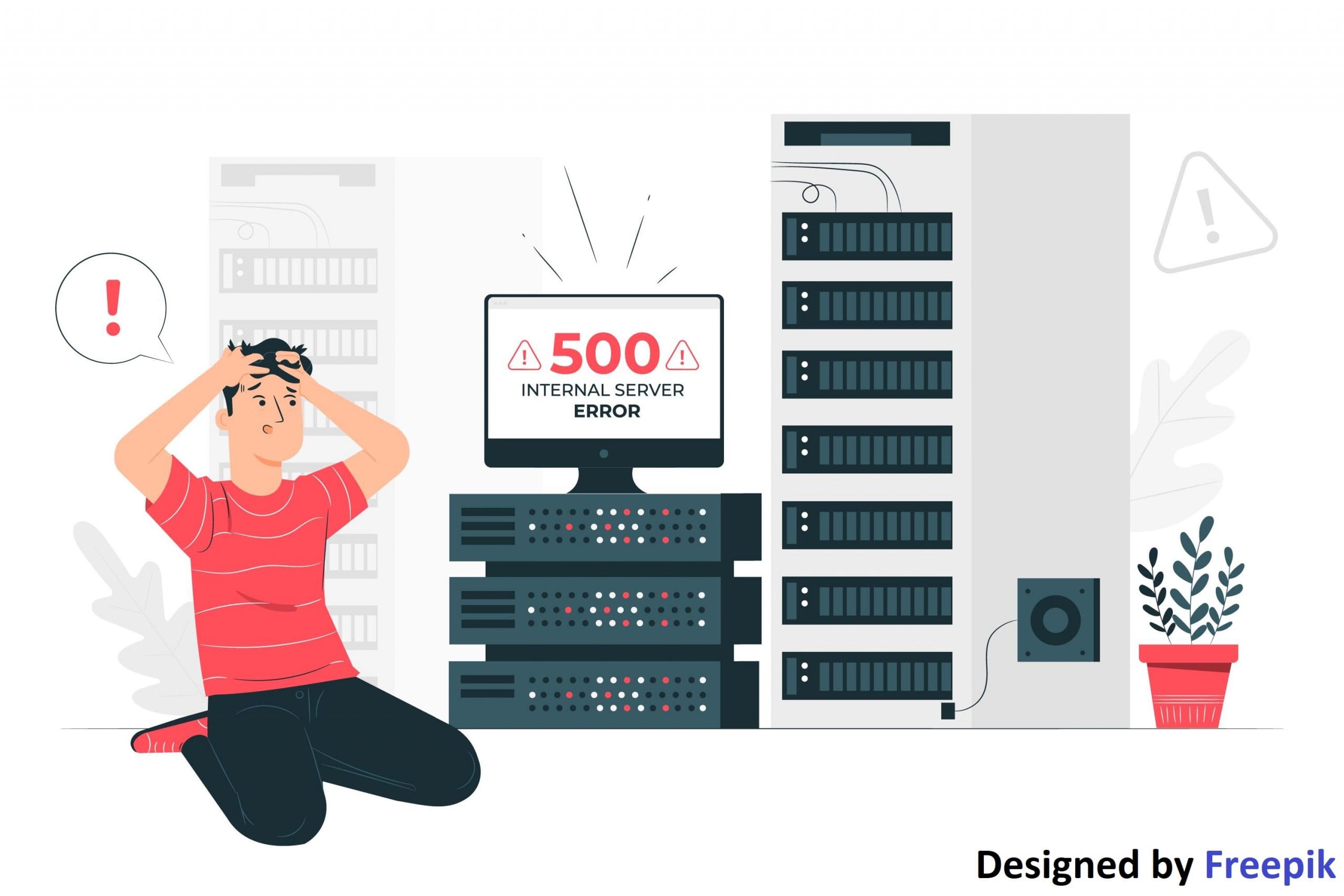
Worst Hosting Experiences
700 adminApril 19, 2023

Checklist To Ask Your WP Hosting Provider
Below is a checklist you can discuss and questions you should ask any provider you are considering.
• What uptime guarantee do you offer?
• What types of hosting are available?
• Is it free to upgrade to a new hosting package?
• What kind of security do you have in place to protect websites?
• Do you offer a free SSL certificate?
• What kind of backup policies do you offer?
• How responsive is your technical support?
Once you have a good idea of the hosting you need for your website, make sure you ask the following questions. In most cases, you can find the answers to these questions on the hosting company's website.
In some situations, you may need to contact the hosting provider's sales team to get an answer. Once you have the answers to this interrogation, you can decide which company offers you the best web hosting services. Let's go through each question one by one.
1. What uptime guarantee do you offer?
Regarding web hosting, nothing is more important than uptime and reliability. Most good web hosting providers offer an uptime guarantee of 99.9%, although some go as high as 99.99%.
2. What types of hosting are available?
There are many types of web hosting available. The following are the familiar types of hosting that companies should offer:
• Shared Hosting
• Virtual Private Server (VPS)
• Cloud hosting
• Dedicated server
3. Is it free to upgrade to a new hosting package?
Most small businesses need simple shared hosting. If you start generating a lot of traffic, you may need to upgrade to a VPS or a dedicated server. If your website reaches that point, you want to be sure that the hosting company can upgrade you to a new type of hosting easily and without downtime.
4. What kind of security do you have in place to protect websites?
Cyber security is critical, and for many companies, it starts with protecting the website. Some standard security features offered by good hosting companies include:
• Distributed Denial-of-Service (DDoS) Mitigation
• Virus and malware scanning
• Email scanning
5. Do you offer a free SSL certificate?
Secure Sockets Layer (SSL) is a basic form of security that protects your site and helps keep the users who visit your site safe. Having an SSL certificate is also essential for SEO.
6. What kind of backup policies do you offer?
You always want to keep your website files safe and protected. While website problems are rare, a good backup policy helps ensure you never lose any valuable information.
7. How responsive is your technical support?
If something goes wrong with your website, you want to affix it as soon as possible. Whether the problem is caused by you or your hosting company, contacting the technical support team will be the first step in resolving it. You’ll want to make sure your hosting provider offers 24/7 support.
Resource:
https://digital.com/best-web-hosting/questions-to-ask-to-help-find-your-best-web-hosting-services/
Disclaimer: Wherever any material is quoted as sourced from the published text with publishing rights vested in an individual, it is stated that it is a pure quotation and has no intention to claim it as our own.
Image Source: www.freepik.com
486 adminFebruary 15, 2023
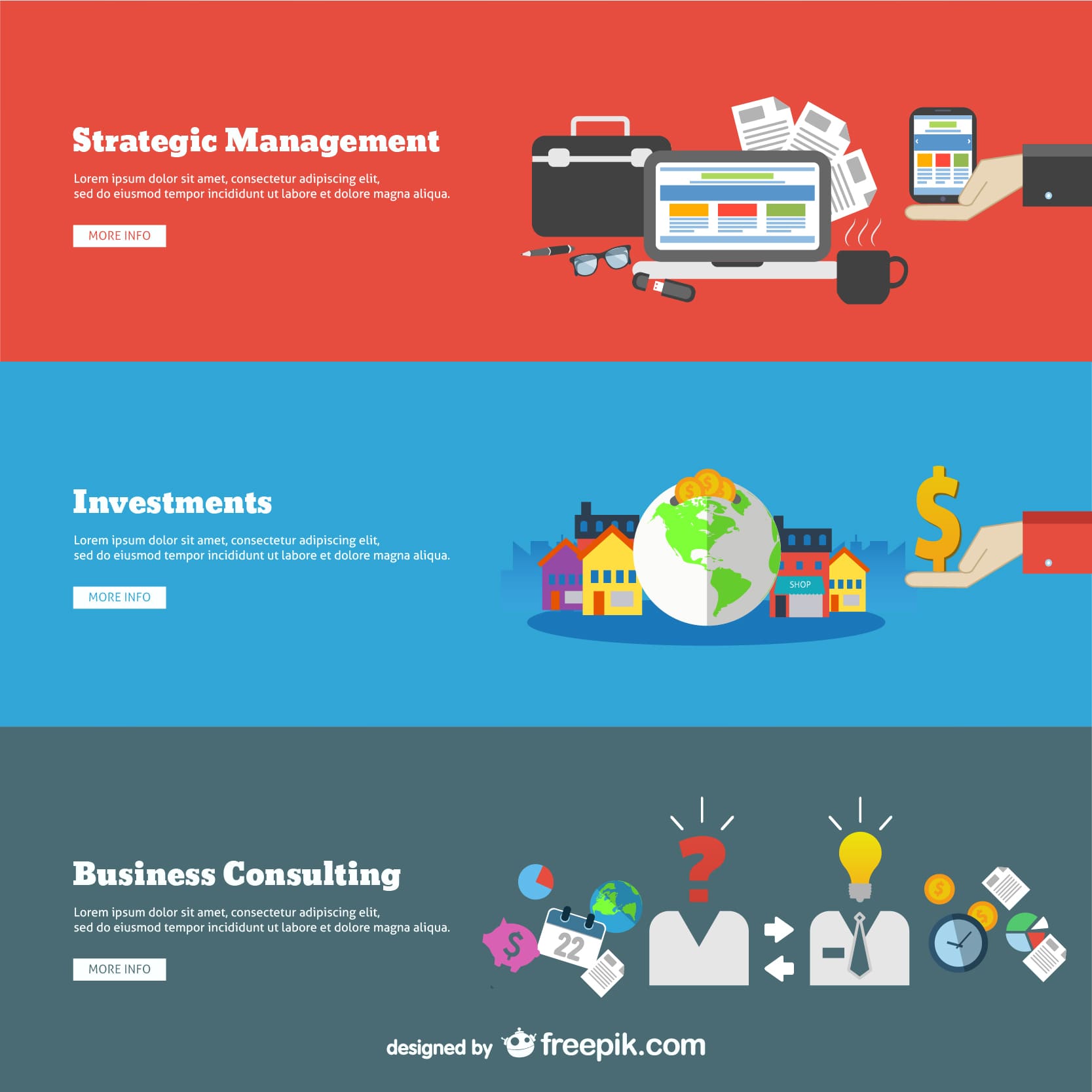
5 Hosting Addons Which Will Save Your Agency, and Clients, A Lot Of Heartache
To help you find web hosting that suits your needs, we compared popular web hosting services on essential criteria like security, uptime, and more.
Hostinger– Best Overall
Hostinger offers reliable web hosting at incredible prices. Split hosting plans start at $1.99 per month. Hostinger offers 24/7/365 support baked into the price of every project. The most popular option is the exceptional shared hosting plan which costs $2.99 monthly. You also get a free domain for a year, and a free Let's Encrypt SSL certificate to secure your website. Hostinger uses its control panel - CPanel. It Has eye-catching and well-organized navigation icons and is user-friendly and easy to navigate.
DreamHost- DreamHost is home to over 1.5 million websites. People trust Dreamhost because they provide fast websites at great prices and plain words.
The company provides a 100% uptime guarantee and compensation if your site goes down. With the Shared Starter, you get 50 GB of storage for one website, up to 5 subdomains, WordPress pre-loaded and ready for you, and a domain, SSL certificate, and WordPress builder included for free.
HostGator- HostGator offers all the hosting essentials you need at a great price, plus it comes with a 45-day money-back guarantee. HostGator provides a substantial list of how-to guides for technical support. You can turn to phone, live chat, and email support if you are still waiting for the answers.
In addition to Linux, HostGator offers a variety of options for upgrading, including Windows hosting, cloud hosting, VPS hosting, managed WordPress, and dedicated servers.
Bluehost- Bluehost is one of the finest web hosting enterprises in the world, for the most part among people launching their new WordPress websites.
They offer great rates and a beginner-friendly platform that simplifies every aspect of running a WordPress website.
If you get stuck or need help, Bluehost has 24/7 support via phone or live chat.
Bluehost also offers great analytics and SEO tools to track how well your website is doing for specific keywords.
WP Engine- WP Engine is the best WordPress hosting among many. They provide a great product, which is highly optimized for WordPress websites. If you want all the storage and speed you can get for your WP blog or online store, and this is the host for you.
Resource:
https://www.quicksprout.com/best-web-hosting
https://neilpatel.com/blog/best-web-hosting-services/
Disclaimer: Wherever any material is quoted as sourced from the published text with publishing rights vested in an individual, it is stated that it is a pure quotation and has no intention to claim it as our own.
Image Source: www.freepik.com
509 adminFebruary 2, 2023
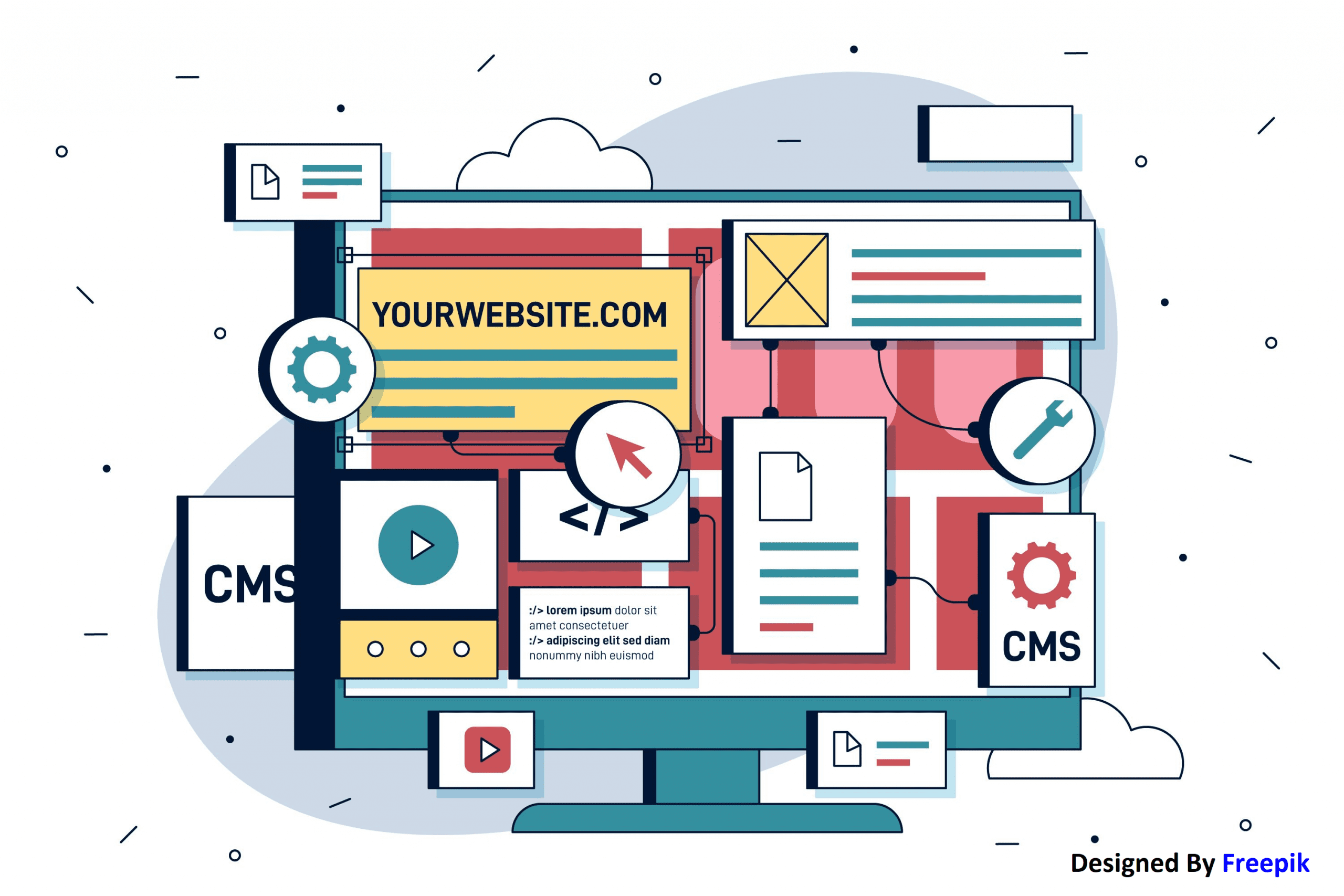
Top 5 WP Plugins Your Chicagoland Small Business Should Consider
One can choose from over 50,000+ WordPress plugins, making it extremely good for a new competitor to find a suitable plugin for their website.
No matter what industry you're in, enabling WordPress with plugins is a tried-and-true strategy. It allows any entrepreneur to balance low investment and efficient results.
With all this in mind, we have set up the top 5 WordPress plugins that are useful for any small business.
WP Forms: Every website needs an exposure form because it makes it easy for visitors to contact you. WP Forms is the most user-friendly contact form plugin for WordPress (WP). This drag & drop online form builder allows you to create contact forms easily, online order forms, payment forms, email subscription forms, and all other online forms.
Yoast SEO: Yoast SEO is one of the powerful plugins for WordPress, which makes it easy to optimize your pages and posts to rank higher on search engines. With Yoast SEO, you get titles and meta description templates, so you can learn how to create this information according to SEO best practices.
Jetpack: Jetpack is a collection of unique tools and features that supercharge your site with tons of proper functionality. Jetpack offers the ability to have multiple plugins in one. The Automattic team behind WordPress also develops it, so you'll get exceptional developers behind the tool. From improving site security to optimizing user engagement, Jetpack provides many features to keep your site running smoothly.
Elementor: Elementor is the leading page builder for WordPress - it allows you to place various page elements with a drag-and-drop interface. That way, building your ideal website is as easy as clicking and dragging the features you want into the builder area — no coding is required.
W3 Total Cache: W3 Total Cache is a useful caching plugin for WordPress. Caching stores website content in a user's browser to provide that data faster the next time they access your website.
Resource:
https://blog.hubspot.com/website/must-have-wordpress-plugins
https://www.leadboxer.com/blog/16-best-wordpress-plugins-for-business
Disclaimer: Wherever any material is quoted as sourced from the published text with publishing rights vested in an individual, it is stated that it is a pure quotation and has no intention to claim it as our own.
Image Source: www.freepik.com
513 adminFebruary 1, 2023 Youtube Video

In-House Vs. outsourced CTO
To implement new technologies in Your Company, you need a large talent pool, scalable infrastructure, and a strategy for continuous improvement. Therefore, your company needs a CTO.
Chief Technology Officer, or CTO, plays an essential role in the business. A CTO is a C-level executive responsible for all technology within a company, from hardware to software to teams and vendors.
In-House Vs. Outsourced CTO
| In House CTO | Outsourced CTO |
|---|---|
| Carry out day-to-day issues in the company | Review and analyze your IT department on a high level & advice on productivity |
| Aware of the functioning of resources in the company on a day-to-day basis | Handle delivery of technology initiatives and ensure risk-reducing operations |
| Costs around 150k | Cost can vary depending on the commitment |
| Suitable for midsized or large companies | Suitable for start-ups and small businesses |
Pros and Cons of In-House CTO:
Pros:
• They are available daily
• They follow the business objectives from the beginning
• An in-house CTO will understand the unique needs of the company
• There is a good relationship between the team members
• Technical issues are resolved quickly
Cons:
• Local tech talents are getting scarce
• Bonus is required
• Sometimes, the technology front can need more multi-domain expertise.
Pros and Cons of Outsourced CTO:
Pros:
• With an Outsourced CTO, it's easy to get started quickly without making a long-term commitment.
• They contribute new perspectives to the business.
• Offers effective tech solutions as they have expertise in a wide range of domains
• They stay on top of emerging trends and best practices
• Choosing an Outsourced CTO allows stakeholders to perform essential business functions.
Cons:
• Finding the right outsourced CTO requires a trust-based relationship
• Difficulty controlling an activity or task
• There is a possibility of a schedule mismatch
• Other schedules may make them less focused on the project.
Resource:
https://www.mindbowser.com/outsourced-cto-vs-inhouse-cto/
Disclaimer:
Wherever any material is quoted as sourced from the published text with publishing rights vested in an individual, it is stated that it is a pure quotation and has no intention to claim it as our own.
Image Source: www.freepik.com
527 adminDecember 14, 2022

Top 5 Product Definition Tools
Then, investing in improving and making product definition processes more effective can help. These days, a wide range of tools can help you save money, work more efficiently and deliver better products.
This article will highlight the five best product definition tools to help you identify the right one.
1. Monday.com
Monday.com is an online product definition platform that enables teams of all sizes to plan, track and manage their daily work. From product roadmaps to weekly iterations, monday.com helps teams define clear ownership, analyze and track their position, manage sprints, and collaborate. monday.com's easy-to-use platform makes it easy for the crew to work together from anywhere.
It lets you convert all data into attractive charts and Graphs and efficiently track projects. In addition, it facilitates effective real-time collaboration among your team; Your staff will be able to quickly and easily update the tool and import and export data.
2. Airfocus
Airfocus is the first and only modular product management platform on the market, built specifically for product teams to manage products to market, internal developments, IT portfolios, and more. The flexible platform helps product teams manage strategy, understand user needs, prioritize and align their teams on clear roadmaps.
3. Trello
Trello project management tool that helps product teams collaborate and organize.
Trello’s Key Features include the following:
• Kanban boards and checklists for easy task management
• Automate workflows with Trello's Butler bot
• A mobile app for Android and iOS devices for Product Management, Productivity, Team Management, etc.
4. Jira
Jira Software is a product definition tool that helps teams of all types manage work. Jira was initially designed for bug and issue tracking. Now, Jira has evolved into a versatile work management tool that can handle all kinds of work, including necessary management and testing.
Jira’s Key features include the following:
• Scrum and Kanban Boards for Agile Teams
• Create a roadmap to communicate the product strategy clearly
• Detailed analysis of team performance
• Built-in workflow automation
5. ProdPad
Another excellent product management tool, ProdPad, provides product definition with an easy-to-use way to develop a strategy. Using a drag-and-drop tool, you can create a lean product roadmap and communicate and define your product strategy without getting bogged down in the build process. Prod Pad Key features include:
• Road Mapping,
• Task Scheduling/Tracking
• Customer Management
• Project Management
• Prioritization
• Notifications
Product management can take time and effort. However, using the right product management tools, such as those described in this article, can help you manage, distribute, and track work more quickly, ensuring that you follow all steps and deadlines correctly.
Resource:
https://theenterpriseworld.com/top-5-product-management-tools/
https://theproductmanager.com/tools/best-product-management-tools/
https://clickup.com/blog/product-management-tools/#53-9-figma
Disclaimer:
Wherever any material is quoted as sourced from the published text with publishing rights vested in an individual, it is stated that it is a pure quotation and has no intention to claim it as our own.
Image Source: www.freepik.com
589 adminDecember 1, 2022

How much should Small Businesses Pay for a Monthly Website Maintenance in Chicagoland?
Why Should You Maintain Your Website Consistently?
No matter how long you've been in business, your website should always look updated with the latest features and meet customer expectations. With yearly maintenance, you can protect your website from bugs and downtime. If you want your website to stay up and running smoothly, you should patch and upgrade any software you use on your site. And many more things to get updated on time.
How much should small business pay for website maintenance in Chicagoland?
You have to pay no fixed price to maintain your website. To recreate your domain and host your website, you must pay approximately $25 per month in the Chicagoland area.
A large business may have a dedicated service and may decide to spend on SEO and website development services. To avail of these services, you must pay up to $5000 per month.
Here is a list of website maintenance fees that you need to pay in the Chicagoland area:
Web Hosting: $3 to $1,000
Domain Name Renewal: $1 to $3
Tech Support: $50 to $3000
Ongoing development: $200 to $5000
Ecommerce system maintenance: $15 to $25
Analysis and reporting: $5 to $15
Site Backup: $3 to $10
Security Scan: Free or up to $100
CMS patches and upgrades: $20 to $200
SSL Certificate: Free or up to $100
SEO: $400 to $1000
The Frequency of Website Maintenance:
Web Hosting: You need a congruous web hosting service for which you pay a monthly or yearly fee.
Ongoing development: To continuously maintain and upgrade your website, you must pay hourly or monthly packages.
Domain Name Renewal: You must renew your domain annually.
Security: A daily scan is required, but you should scan at least once per month.
CMS Patches and Updates: You should upgrade your CMS monthly or at least once a year.
SSL Certificate: Depending on your certificate.
Tech Support: This is a monthly investment for website maintenance.
Analytics and Reporting: You need congruous monthly reports to maintain your website.
Site Backup: Regular backup can be best for website maintenance.
Resource:
https://www.pagetraffic.com/blog/website-maintenance-cost/
https://seodesignchicago.com/website-development-tips/how-much-does-website-maintenance-cost/
Disclaimer:
Wherever any material is quoted as sourced from the published text with publishing rights vested in an individual, it is stated that it is a pure quotation and has no intention to claim it as our own.
Image Source: www.freepik.com
503 adminOctober 21, 2022

Choosing The Right Development Company
How to Select the Best Custom Software Development Firm:
The most crucial factor in selecting a custom software development business should be that the partner complements and enhances an organization's existing capabilities and knowledge.
Regarding product development, coordinators and project leaders will rely on a multi-disciplinary team to design and produce the most refined product feasible for the enterprise's demands. A staff with a comprehensive set of skills will provide the most transparent and seamless experience. They have spent numerous hours honing talents beyond the basics and learning what it takes to go above and beyond. When looking to outsource software development, company leaders should consider the following essential skill areas:
1. Obtain Referrals from Others:
Speak with others in your network to get recommendations for custom software developers. It will expedite the process of picking possible custom software developers and assist you in gathering honest comments about them.
2. Speak about Coding:
The standard of the coding will have a direct collision with the quality of the appeal produced. Discuss the level to be maintained when coding with the bespoke software developers.
Mark your guidelines as -
• No buggy or resource-intensive code
• More Lean coding, for example.
3. Examine the Company Portfolio:
Examine a handful of the previous projects to get a sense of the types of applications on which the software engineers worked. Do you know why? The cause is as follows:
Custom software development organizations that have worked on numerous projects have a proven and tested process for project completion. On the contradictory, because of their lack of expertise, new software development firms are still in the process of building techniques. As a result, they are unknown of the issues that may arise during the software development lifecycle.
Consider the scope of your software development project. Most custom software development firms prefer taking on projects of a specific size, such as multi-year or multi-enterprise initiatives.
4. Comprehend Various Software Systems:
Learn about several software development technologies, such as Windows and UNIX. Choose the technology you want to build based on its qualities.
Examine the company's development technology experience; this is important if you create your project on a specific software system.
5. Concentrate on Delivery Time:
Choose a custom software development business with a track record of meeting deadlines. This software will not only give you and your team ample time to test the program and report any defects (if any), but it will also allow your personnel to train and orient themselves to better use the application.
Resource:
https://www.netsolutions.com/insights/choosing-the-right-software-development-company/
https://www.corelynx.com/blog/10-tips-choose-right-custom-software-development-company/
https://www.dewsolutions.in/tips-choosing-software-development-company/
Disclaimer:
Wherever any material is quoted as sourced from the published text with publishing rights vested in an individual, it is stated that it is a pure quotation and has no intention to claim it as our own.
Image Source: www.freepik.com
614 adminSeptember 20, 2022 Youtube Video

5 Best Recommendations for WP Hosting
Bluehost:
Bluehost, one of the oldest web providers founded in 1996, has grown to become the most prominent brand name in WordPress hosting. They are an authorized 'WordPress' hosting service. Your website will not slow with Bluehost, even when there is a lot of traffic. Their skilled support is available 24 hours a day, seven days a week, via phone, email, or live chat. They are the best web hosting provider for small enterprises. In addition, WPBeginner users will receive a 63% discount, a free domain, free SSL, and a free site builder with templates.
SiteGround:
SiteGround is a well-known and highly rated hosting company in the WordPress community. They offer one-of-a-kind in-house WordPress speed and security solutions to ensure your site is as quickly and securely. They are regarded in the market for providing the best round-the-clock assistance, being an official hosting provider for 'WordPress.', which results in hosting the WPBeginner website with SiteGround. Automatic updates, daily backups, built-in WP caching, free CDN, free SSL, one-click staging, and GIT version control are among the SiteGround services, among the very few firms providing location-specific hosting, with 6 data centers in the United States, Europe, Asia, and Australia.
DreamHost:
DreamHost has been in business for 18 years and is well-known for making web hosting simple. You get a bespoke dashboard, 1-click WordPress installation, automatic WordPress updates, unlimited space, unlimited bandwidth, and complimentary SSDs that speed up your site by 200%. Over 1.5 million WordPress blogs and websites are hosted with DreamHost. They are also an official WordPress hosting provider. WPBeginner customers receive an exceptional 72% discount and a free domain and SSL certificate.
Hostinger:
Hostinger is quickly becoming a household name in the WordPress hosting sector. They provide:
• Low-cost hosting.
• Live chat assistance 24 hours a day.
• A solid website hosting platform.
Hostinger includes:
• A one-click WordPress installation.
• Managed automatic updates.
• Increased security.
• A free CDN.
• WordPress speed acceleration.
• Free site migration.
They also provide geolocation hosting, with a choice of 7 data centers in the United States, Europe, Asia, and South America. Hostinger has 29 million customers in 178 countries. In addition, they have a special 80% discount for WPBeginner readers, free SSL, and a free domain name.
HostGator:
HostGator is thus far the best web provider, hosting over 10 million domains. In our opinion, every website owner must use WordPress for the following reasons:
One-click installation
99.9% uptime guarantee
24/7 hour support
They are the best web hosting for businesses, in our opinion.
Disclaimer:
Wherever any material is quoted as sourced from the published text with publishing rights vested in an individual, it is stated that it is a pure quotation and has no intention to claim it as our own.
Image Source: www.freepik.com
543 adminSeptember 19, 2022
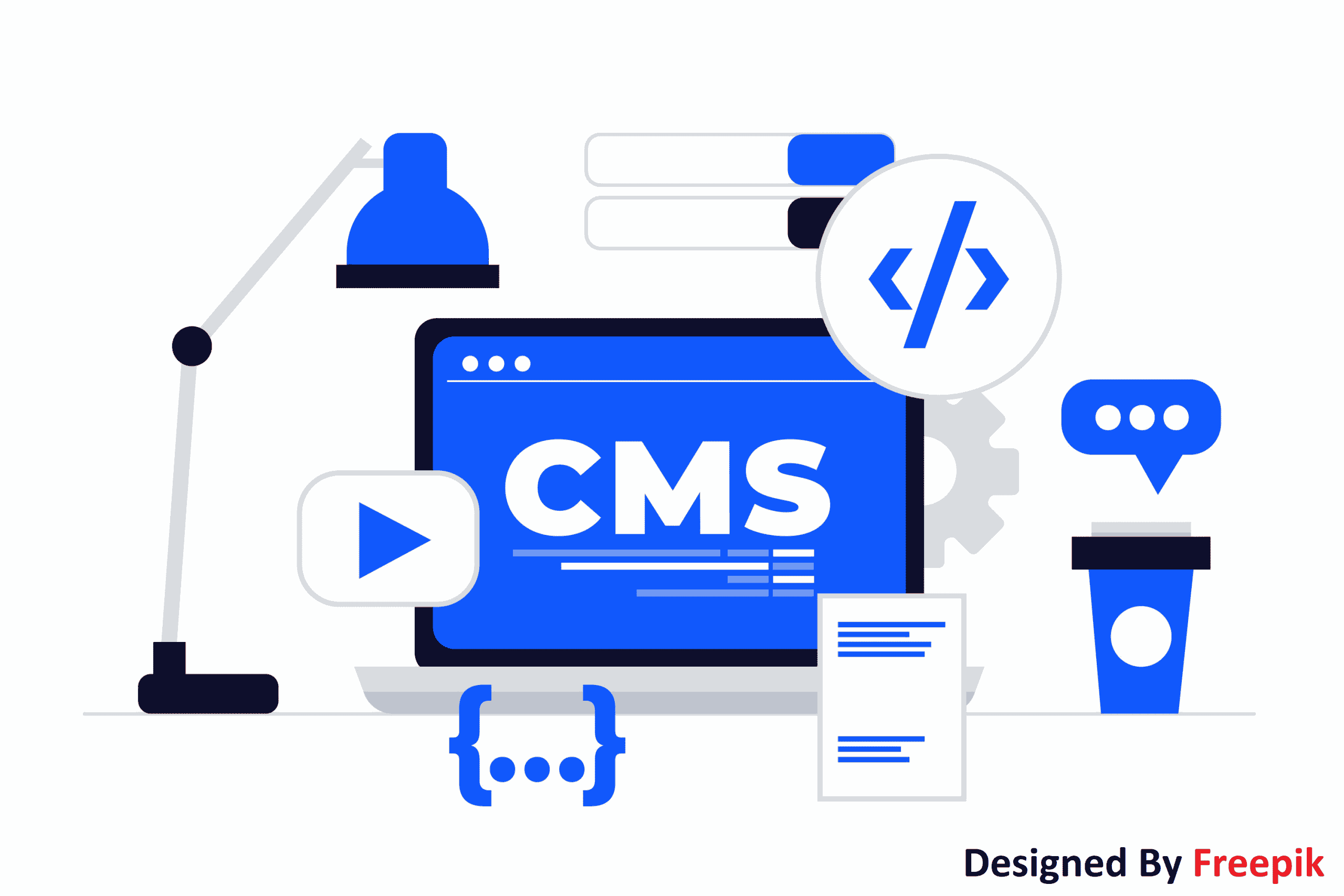
Top 5 Plugins for your Agency’s Small Business Clients
Web designers and digital marketers are constantly confronted with websites that host dozens of plugins incompatible with one another. These plugins are no longer supported by WordPress or are so intricately customized that touching them imperils the website.
How do you decide which plugins are worth it if you're constructing or maintaining WordPress sites for clients?
Let's take a peek at some of our favorites down below:
Atari: Atari's WordPress integration is one of the most excellent options for firms that work with clients.
Atari was initially designed as a visual feedback tool to assist agencies and developers in communicating more effectively and handling clients' demands more quickly and efficiently.
Atari evolved until we decided to transition to a complete SaaS model. Atari makes website management exceedingly simple for agency owners. There are two critical components:
ManageWP
According to Sucuri's newest hacked website report, WordPress websites remain the most popular targets for hackers. When you think about it, it makes dialectic. WordPress is the most popular CMS, and its flaws are well-known. So, why wouldn't hackers choose the simple path?
Just because WordPress has a target on its back doesn't imply your clients' websites should be vulnerable to hackers. What you can do is as follows:
A site's comprehensive security should always include server-side safeguards such as a firewall and SSL certificate. That is your first line of defense.
Contact Form by WPForms
Every website must have specific pages and functionalities. The Contact page and contact form for a case are non-negotiable.
The contact form is a quick, straightforward, and convenient way for visitors to contact individuals on the other side of a website.
Because of its critical function in online communication, you must be cautious about whatever contact form plugin you pick.
InfiniteWP
Managing a large number of websites can be difficult. Managing backups, changes, and databases for various customers might be challenging.
It's a lot easier with InfiniteWP.
This free plugin enables users to administer an unlimited number of WordPress domains from their server, easing their tasks and eliminating some of the difficulties above. InfiniteWP is a time-saving solution for all those "busy" jobs that are vital but time-consuming.
UpdraftPlus 3
Backups and security are inextricably linked. One cannot exist without the other.
And, while I've heard the brawl that you don't need a backup plugin if your web server does it for you, I disagree.
I insist on using a WordPress backup plugin because I believe in failover. You should consistently have a backup plan or system in place for everything you do (including backups for backups) because you never know when one aspect of your business will fail or be lost.
You have complete control over how all the time your website is backed up and where those backups are saved using Updraft Plus.
Resource:
https://mediatemple.net/blog/web-development-tech/7-essential-wordpress-plugins-for-a-new-clients-website/
https://www.searchenginejournal.com/top-wordpress-plugins-for-agencies/263137/
https://atarim.io/blog/wordpress-plugins-for-agencies/
Disclaimer:
Wherever any material is quoted as sourced from the published text with publishing rights vested in an individual, it is stated that it is a pure quotation and has no intention to claim it as our own.
Image Source: www.freepik.com
434 adminSeptember 12, 2022 Youtube Video

Filing For A Patent
Step 1: Create your invention
The invention is the initial step for an innovator who wants to proceed with their creation, getting critical to get as much information as possible. Some essential questions that the inventor should consider are: what is the field of the alteration, what is the profit, and how will it aid improve currently existing solutions? Not all inventions qualify for patent protection. Section 3 of the Patents Act identifies the subject matter.
Step 2: Patent Investigation and Drafting
Following clarification of the invention, the inventor must do a patentability search which is the better half since it will aid in resolving whether the vision is new or not. The Patents Act requires that all innovations fulfill the novelty requirement. After a thorough search and preparation, one must consider a patentability report and opinion. The patentability search determines the nearest potential previous arts.
Step 3: Submitting a Patent Application
The actual procedure begins with submitting a Patent Application. After preparing the patent application may be filed with the government patent office using the Form 1 application form, creating a receipt with the patent application number. Under Form 2, one can also file a provisional patent application if the innovation is still in its early stages. The advantage of filing a transitional application is that it allows you to obtain a previous date of filing, which is essential in the patent industry. In addition, one has 12 months to file the entire specification. One must utilize the Form 28 application to file for patents for start-ups and small businesses.
Step 4: Application Publication
From filing the whole specification, the application is published 18 months after the filing date. There are no particular essentials for posting from the applicant. If the competitor does not wish to wait 18 months, they can file Form 9 with the specified costs to request early publication. The patent exercise is published one month after the request for an early announcement.
Step 5: Submit a Request for Examination
Unlike publication, the examination is not automatic, and the applicant must request that the patent office study the patent application. Under Form 18, one must file a typical request 48 months after applying. Upon receiving such a request, the regulator assigns the application to a patent examiner, who examines it using various patentability criteria, such as novelty, non-obviousness, inventive step, and suitability for industrial application, and provides the applicant with the First Examination Report (FER).
Step 6: Respond to the Objections
The applicant must react to the patent office's complaint through the First Examination Report. The applicant is required to respond in writing to the objection expressed in the examination report. The applicant can demonstrate the invention's patentability and attempt to dismiss the whole complaint cited. Depending on the circumstances, one may even require physical hearings or video conferencing.
Step 7: Patent Grant
After resolving any objections, the application is submitted for a grant once it is determined to fulfill all patentability conditions, and lastly, the applicant would be given the patent. The issuance of a patent is announced in the patent journal, which is published regularly.
Resource:
https://www.uspto.gov/patents/basics/patent-process-overview#step1
https://economictimes.indiatimes.com/news/how-to/how-to-go-about-patent-filing-in-india-all-you-need-to-know/articleshow/86417211.cms
https://iptse.com/how-to-file-patents-understanding-the-patent-process-in-india/
Disclaimer:
Wherever any material is quoted as sourced from the published text with publishing rights vested in an individual, it is stated that it is a pure quotation and has no intention to claim it as our own.
Image Source: www.freepik.com
549 adminSeptember 8, 2022

Cloud or Not
Everything old has become new again.
Let us first dispel some common misconceptions about cloud data storage.
The debate over the merits of data in the cloud appears to stem from the perception that the concept is new and unproven, so people are unsure whether the benefits outweigh the risks.
The cloud was not new as early as the 1970s because many large companies could not afford their mainframe computers. Instead, businesses would "dial in" to remote computers managed by time-sharing services in what was then known as "time-sharing." Users of such services would send their data and analyze it on managed computers. Does this sound familiar?
Furthermore, because many companies were using a shared environment, users could easily access data of common interest. The time-sharing service would keep demographic and econometric data databases, which users could use in their analyses.
Reasons for leaving the cloud
An undercurrent among more giant corporations is making them reconsider their cloud services. The most common is bill shock. The temptation to build their internal cloud is growing as the cost of storage and servers falls. Other issues raised by businesses include latency issues, project failures, and a lack of functionality in cloud services. The departure is intensifying. While most cloud defectors are giant corporations, small businesses look to large corporations for philosophical guidance. Companies are constructing their clouds with all of the hassles associated with the cloud, not to mention security concerns. However, it comes at a cost that cannot measure solely in terms of hardware.
Data Monetization: Cloud Data Sharing
The fact that the cloud is neutral ground is one of the least discussed aspects of cloud computing. People can access and use data stored in the cloud via the Internet. While this idea is not new, today's technology provides unprecedented data collaboration and monetization opportunities. There is no reason a business partner cannot have access to information, albeit limited and controlled access, the inverse of the security issue. In non-cloud environments, data sharing is significantly more difficult.
Data monetization is a critical business benefit of data sharing, which is especially appealing for any business with high-volume customer data, such as retail or telecom.
Advantages of the Cloud
At the starting point of this article, it was advanced that the main benefit of the cloud can also be seen as a primary concern in using it because someone else is doing the work for you.
You can use the cloud to access expertise that your organization may not have. Working with a cloud provider has cost and operational advantages over doing it yourself. The typical acquisition and purchase order process takes time, making it difficult for a company to obtain computer systems when needed. It is frequently more accessible for the cloud provider to acquire new hardware than for your company to purchase what you require.
Is it better to cloud or not to cloud? You have a choice. Ultimately, companies should not make decisions based on organizational comfort; what is most valid from an operational standpoint will create the most significant business benefit. And make sure to ask the appropriate questions.
Resource:
https://www.wired.com/insights/2013/05/to-cloud-or-not-to-cloud-where-does-your-data-warehouse-belong/
https://www.forbes.com/sites/larrymyler/2018/01/11/to-cloud-or-not-to-cloud/?sh=408ac46a627c
https://www.redhat.com/en/topics/cloud-computing/public-cloud-vs-private-cloud-and-hybrid-cloud
Disclaimer:
Wherever any material is quoted as sourced from the published text with publishing rights vested in an individual, it is stated that it is a pure quotation and has no intention to claim it as our own.
Image Source: www.freepik.com
708 adminAugust 30, 2022

Top Three PHP Frameworks
Top 3 PHP Frameworks:
- Laravel: Laravel can be given massive popularity due to its ability to handle complex web applications with extra security and speed compared to other frameworks. It simplifies the development process by reducing the complexity of everyday tasks like sessions, routing, queuing, and authentication. Laravel has excellent speed and commendable safety features with the flexibility to evolve with the latest web development trends.
- Symfony: Symfony is considered the best choice for web applications that needs scalability. It has many features. Its modular component system is exceptionally flexible and allows developers to select and select components for their projects.
- CodeIgniter: It is well known for its speed and footprint (about 2 MB in size with documentation). CodeIgniter is perfect for developing dynamic websites. It offers several modules that help create robust and reusable components.
Resource:
https://rollbar.com/blog/10-best-php-frameworks/
https://hackr.io/blog/best-php-frameworks
Disclaimer:
Wherever any material is quoted as sourced from the published text with publishing rights vested in an individual, it is stated that it is a pure quotation and has no intention to claim it as our own.
Image Source: www.freepik.com
512 adminJune 17, 2022

Technology – A Competitive Advantage
Information and communication technology (ICT) can have a wide range of effects on competitive advantage. ICT enables the firm to respond effectively to change or business possibilities by making large amounts of information available to all personnel. It promotes team collaboration, allowing them to deliver strategic projects that swiftly lead to growth. Technology also boosts supply chain efficiency by facilitating communication and information sharing.
Regularly, new technologies enter the market. In many situations, they present chances for firms to redesign their business models and significantly improve the efficiency of existing operational methods. Companies that are better prepared and skilled at using these technologies will have a considerable competitive edge. To get this edge and surpass competitors, firms must adapt in ways that place humans at the heart of any organizational shift, deploy technology quickly, and create at scale through ecosystem collaboration.
What Makes a Competitive Advantage Last?
There are several forms of competitive advantages. They are not confined to a few procedures in which you may outperform the competition. For example, it might be operational excellence or product leadership. Alternatively, your solution may provide higher client personalization.
Your competitive edge is what you, your organization, or your department do better than anybody else. The term "durable" relates to your capacity to continue performing those tasks in the long run. And, indeed, you may have several advantages and build new ones. You don't have to have them all right now. Sustainable competitive advantages are organizational strengths that are specific to your company. These qualities differentiate you from your competitors. It's what you specialize in and is clearly valuable for your market. Skills or strengths that are significant to your clients are called competitive advantages. If the power you've found it essential to you but not to your customer, it's not a long-term competitive advantage. A competitive advantage is a benefit or reason customers choose you over your competitors. It has to be valuable to your consumer!
Use Data to Improve Agility and Power Innovation:
Use data to improve agility and power innovation, not just to understand the world but to make decisions and drive action. Data can show you where, when and what to focus on next. It can help you make faster and better decisions. It can help you predict and prevent problems before they happen. Data can help you in getting an advantage over your competitors. Data-driven organizations are more agile and better positioned to power innovation.
Companies that want to use their data more effectively to innovate at scale must first understand and recognize the value data can provide. They must also ensure that the data is clean, of high quality, compliant, secure, and entrenched at the heart of the business. Companies must link the "brain" of the business (the data) to the "body" of the business (operations). Data and analytics may assist firms in responding to market developments more quickly. Businesses may gain a competitive edge by leveraging data analytics to forecast future trends, analyze customer habits, and uncover new business prospects more rapidly.
UX Design is a Competitive Advantage:
In the quest to differentiate and compete in your markets, great design and user experience may make a potent combination. Over ten years, the Design Management Institute (DMI) evaluated S&P corporations and discovered that design-led enterprises outperformed their rivals by 228 percent, a truly astounding amount. It is no longer enough for your goods and services to be functional; they must also be holistic, linked, and enjoyable to use. Despite some being relatively mature, many organizations have spent developing user experience and design teams that have not seen this type of return. So, how are these fantastic organizations utilizing design and user experience to leapfrog their competitors? And how will they maintain their competitive advantage in the long run?
Here are a few reasons why UX and design help organizations:
- Enhances the Offerings' Market Fit
- Promotes an Innovation Bias
- Creates Experience Systems rather than Products
- Resonates Emotionally with Customers
Achieving a Competitive Edge with Automation:
Automation streamlines corporate processes, giving staff more time to focus on product creation and process improvement. This means that businesses may speed development or bring goods and services to customers faster than the competition.
Robotic process automation (RPA) reduces human data input and physical storage expenses by replacing manual paper-based operations. Companies may reinvest this money in crucial technical initiatives, putting them miles ahead of the competition. Although costly, RPA software is a long-term investment that may assist businesses in meeting these goals by aligning business operations with the requirements of people both within and outside the organization.
Businesses need to be more strategic in their business decisions to outperform their fast-moving and tech-savvy competition and become a household brand in their field. Automation solutions guarantee that a company's structured and unstructured information is automatically received, organized, and indexed properly, allowing it to make informed decisions for future growth. This involves extending the RPA solution to other organizational areas such as accounts receivable, legal, and human resources. These are all areas where automation may help businesses become more inventive and efficient, providing them a competitive advantage.
Summary:
As new technologies develop rapidly, firms that are proficient at spotting the opportunities they bring will gain a considerable competitive edge. Data will also play a significant role in enhancing agility, enabling innovation, propelling development, and opening new opportunities through ecosystems and collaborations. Businesses must think outside the box to become best-in-class, and RPA software provides them with the competitive advantage they require to become the go-to source for products and services in their industrial sector.
Resource:
https://www.forbes.com/sites/forbesbusinesscouncil/2020/10/06/how-to-use-technology-to-gain-a-sustainable-competitive-advantage/?sh=1ac2c328328c
https://www.ey.com/en_in/consulting/how-can-technology-at-speed-create-competitive-advantage
https://www.dmi.org/page/DesignValue/The-Value-of-Design-.htm
https://madeintandem.com/blog/design-ux-sustainable-competitive-advantage/
Disclaimer:
Wherever any material is quoted as sourced from the published text with publishing rights vested in an individual, it is stated that it is a pure quotation and has no intention to claim it as our own.
Image Source: www.freepik.com
634 adminJune 17, 2022

Ideation
Ideation is a creative process where designers explore ideas in sessions (e.g., brainstorming, worst possible idea). It is the third level of the Design Thinking methodology. Participants gather with open minds to generate ideas in response to a problem statement in a supported, judgment-free environment. Ideation is a third stage of the design thinking process that encourages open thinking and risk-taking to generate solid and distinct ideas. Ideation differs from a typical concept planning session because it allows for independent thinking and teamwork. In most idea brainstorming sessions, team members become weighed down by listening to a superior's strategy. Their thoughts become focused in one direction on hearing from the superior, and their strengths and inventiveness are lost. As a result, the team generates pet ideas that support one significant idea while overlooking the capabilities of each member that should be utilized.
Finding New Perspectives is the Goal of Ideation Sessions:
It isn't easy to obtain the perspective needed to identify design solutions. You'll need a dedicated location for standing back and seeking and seeing every view to conducting good ideation sessions. But first, your team must identify the appropriate problem to treat. After "Empathize" (gaining user insights via research/observation) and "Define" (identifying links/patterns within those insights to produce a meaningful and feasible issue statement or point of view), Ideation is the third phase of the design thinking process.
Before looking for ideas, your team requires a clearly defined challenge to a focused problem statement or point of view (POV) to motivate and guide everyone. "How might we...?" queries, such as "How might we build an app that searches for affordable hotels in safe neighborhoods?"
Assist in reframing difficulties and encouraging effective collaboration toward potential solutions to bring people together to generate ideas and break down barriers. It would be best to have a trained facilitator and a creative environment, which includes a ready room with posters of personas, relevant information, etc. Your team will also need guidelines, such as a 2-hour time limit, quantity-over-quality concentration, a ban on distractions like phones, and a "There is no bad ideas" mindset.
Ideation Techniques:
Because of the nature of Ideation, it is critical to adopt appropriate strategies for the type of thoughts you are attempting to develop. The plan you select must also meet the needs of the ideation team, their levels of creative output, and their previous experience with ideation sessions. Here's a rundown of the essential ideation techniques:
Brainstorm:
Brainstorming is a well-known approach that uses group interaction to generate solutions by building on one another's ideas. Use this strategy with a group of five to seven people for more effective brainstorming. Limiting your brainstorming session to 20 minutes and having a minor group helps keep the topic focused. To develop more diverse ideas, try to include participants from various backgrounds or perspectives.
As the tagline "1+1=3" suggests, ideas are combined to form one good idea. Participants should be able to discuss their thoughts without fear of being criticized freely.
Brain Dump:
A brain dump is similar to Brainstorm; however, it is completed independently. The participants jot down their thoughts on post-it notes and then share them with the group.
Storyboarding:
When designing or optimizing processes, storyboarding is a valuable tool. Participants build a visual tale that illustrates their ideas and potential outcomes, allowing them to understand areas of improvement. Follow your consumer through the process, including the effects of your solutions.
Mind Mapping
Mind mapping is a visual technique that develops linkages between the problem and alternative solutions your team is attempting to address. Write your problem statement or a high-level term linked to the situation in the center of a piece of paper or whiteboard. You will detail any related solutions or ideas raised by the team in the area surrounding that statement and use lines to connect them to the central theme. Next, add a layer that outlines how you will implement the recommended solutions, tying it to the preceding layer.
Worst Possible Idea:
The worst idea technique challenges participants to think of their worst possible solutions to a problem. While a brainstorming session supports all ideas, some people may be concerned about potential criticism; this strategy alleviates that concern by welcoming terrible ideas. It frequently creates a more enjoyable environment as people try to entertain one another and use their ingenuity to develop outrageous ideas.
Questioning Assumptions:
Many sectors have preconceived notions about accomplishing things, but this technique challenges those assumptions to generate more innovative ideas. As a result, you might choose to apply this strategy to improve an existing product or create a new one. Consider what you want to solve or develop, then brainstorm 20 to 30 assumptions about that product, service, or idea. These assumptions can be both optimistic and wrong, and they should apply to all elements of your company.
Final Thoughts
Ideation is frequently the most exciting step of a Design Thinking project since it allows for practically available free-thinking within the specified subject. The goal of the Ideation stage is to produce a vast number of ideas — ideas that may inspire newer, better ideas — that the team can then filter and narrow down to the best, most practical, or most original ones. Numerous excellent ways can assist the design team during the Ideation sessions.
Resource:
https://www.interaction-design.org/courses/design-thinking-the-beginner-s-guide
https://www.interaction-design.org/literature/topics/ideation
https://www.indeed.com/career-advice/career-development/ideation-techniques
https://www.nngroup.com/articles/ideation-in-practice/
Disclaimer:
Wherever any material is quoted as sourced from the published text with publishing rights vested in an individual, it is stated that it is a pure quotation and has no intention to claim it as our own.
Image Source: www.freepik.com
579 adminJune 14, 2022

WordPress Hosting
WordPress hosting is just hosting optimized to meet the performance and security needs. It also often provides a one-click WordPress install to simplify getting started with WordPress is possible.
WordPress hosting is classified into two types:
Shared WordPress hosting:
Shared hosting is a low-cost service where you share server space with other websites. WordPress hosting (whether shared or not) implies that the server is optimized for the specific platform.
WordPress hosting is inexpensive and simple to operate; shared hosting is ideal for new bloggers. When using this type of hosting, you share server space with other websites, which means you'll have to make sacrifices when installing many unique applications and upload large files. However, shared hosting eliminates the requirement for a dedicated server, which is advantageous if you are just starting.
Managed WordPress hosting
Managed hosting is an IT provisioning model. The service provider rents dedicated servers and associated hardware to a single customer and administer those systems on their behalf. Managed hosting is usually more expensive than shared hosting, but it includes additional features such as skilled system administration, 24-hour emergency support, and assured server availability.
The majority of managed hosting providers use the shared hosting model. Some, such as Amazon Web Services, employ a paradigm known as utility computing, which provides consumers with access to a utility computing cloud network but no system administration.
Shared or Managed WordPress Hosting?
Shared hosting is beneficial for small businesses that don't want to spend much money on web hosting. You'll share one or more servers with other websites while using shared hosting, which means you'll have to compete for resources like processing power and database access. However, shared hosting is not as expensive as you may believe, and it is an excellent method to create your brand and grow your business. Managed WordPress hosting, on the other hand, is a preferable option for organizations that want to host their website in the best possible conditions.
Resource:
https://themeisle.com/blog/what-is-wordpress-hosting
https://www.techtarget.com/searchitchannel/definition/managed-hosting
https://www.a2hosting.com/blog/shared-hosting-vs-wordpress-hosting/
Disclaimer:
Wherever any material is quoted as sourced from the published text with publishing rights vested in an individual, it is stated that it is a pure quotation and has no intention to claim it as our own.
Image Source: www.freepik.com
600 adminMay 20, 2022

Benefits of Building A Native App
Best Performance: The native mobile app development is built and optimized for a specific platform. As a result, the app displays exceptionally high levels of performance. These apps are fast and responsive because they are built for that platform and compiled using platform core programming languages and APIs. As a result, the app is more efficient. The device app stores the software, allowing it to maximize its processing speed. As users navigate the native mobile app, content and visual elements are already stored on their phones, which means load times are faster.
More Secure: Developing a native mobile app guarantees users reliable data protection.
Interactive And Intuitive: Native mobile apps run smoothly in user input and output. These types of apps inherit the OS interface of their device, making them look like an integral part of the device.
Resource:
https://clearbridgemobile.com/benefits-of-native-mobile-app-development/
https://decode.agency/article/native-app-development-benefits/
Disclaimer:
Wherever any material is quoted as sourced from the published text with publishing rights vested in an individual, it is stated that it is a pure quotation and has no intention to claim it as our own.
Image Source: www.freepik.com
416 adminMay 18, 2022

Types of SSL Certificates
An SSL Certificate is a code that provides security for online communications. It is just like a sealed letter in an envelope before mailing it. It enables an encrypted connection when the browser contacts a secured website.
There are three types of SSL certificates available today: single-domain SSL certificates, wildcard SSL certificates, and multi-domain SSL certificates (MDC). What is the difference between the verification process and the verification process required to get the certificate?
1] Single Domain SSL Certificates:
Single-domain SSL certificates apply to only one domain. One cannot use these certificates to authenticate any other part, not even the subdomain of the domain for which it is issued. The certificate protects all pages on this domain; For example, if cloudflare.com has a single-domain certificate, then cloudflare.com/learning (the homepage of the learning center) is also included in that certificate.
2] Wildcard SSL Certificates:
Wildcard SSL certificates are for a single domain and all its subdomains. The subdomain is under the umbrella of the main field. Usually, the subdomain address starts with something other than 'www.'
3] Multi-Domain SSL Certificates (MDC):
A multi-domain SSL certificate, or MDC, lists multiple different domains on a single certificate. With MDC, non-subdomains can share domain certificates.
Resource:
https://www.globalsign.com/en-in/ssl-information-center/types-of-ssl-certificate
https://www.cloudflare.com/en-in/learning/ssl/types-of-ssl-certificates/
Disclaimer:
Wherever any material is quoted as sourced from the published text with publishing rights vested in an individual, it is stated that it is a pure quotation and has no intention to claim it as our own.
Image Source: www.freepik.com
457 adminMay 10, 2022

Mobile SDK
What Is A Mobile SDK?
SDKs are essential tools used in app development projects. Let's explore the mobile SDK. We will explain SDK and why it is so important when developing mobile apps.
Every mobile vendor has heard the acronym "SDK" in discussions with their product and customer support teams. SDK is a software development kit, or Devkit for short. It is a set of software tools and programs used by developers to create applications for specific platforms.
SDK tools will include libraries, documents, code patterns, processes, and many more that developers can use and integrate into their apps. SDKs are designed to use for specific platforms or programming languages.
An easy way to imagine what an SDK is like is to consider it a first aid kit. In the first aid kit, you have various resources, including bandages, cotton, aspirin, etc. A software development kit is very similar. In the SDK, you will usually have:
- API
- Code Library
- Documentation
- Teaching
- Debugging
All of these personal tools help developers create software products. In fact, on any development project, your project management team lead may decide that using more than one SDK is in the project's best interest.
Importance of SDK for Mobile App Development:
Coding every tool and feature in your mobile app from scratch will take developers longer. There is no reason to code standard features already created for your developer. For instance, you want to share photos taken in your Android app directly on any social media platform. Instead of writing code for this feature, your developers can use the Instagram Android SDK toolkit to get the code needed.
Using mobile SDKs in development is a no-brainer when considering all the standard features your app needs. There is no reason to rediscover the wheel. Suppose you do not use SDK in development. In that case, you will lose valuable time in the market and spend more money on development costs. So using a mobile DSK is a wise option.
Resource:
https://www.redfoundry.com/what-is-a-mobile-sdk/
https://clevertap.com/blog/what-is-an-sdk/
https://appfigures.com/support/kb/626/whats-a-mobile-sdk
https://www.koombea.com/blog/what-is-mobile-sdk/
Disclaimer:
Wherever any material is quoted as sourced from the published text with publishing rights vested in an individual, it is stated that it is a pure quotation and has no intention to claim it as our own.
Image Source: www.freepik.com
520 adminApril 8, 2022

The Best (ASO) App Store Optimization Tools
The following App Store Optimization (ASO) tools can help you grow your business by driving more traffic to your app pages in the App Store or Google Play, increasing keyword rankings, and increasing downloads:
1] App Radar: Successful app store optimization (ASO) involves using relevant keywords to attract users with high quality. One can easily find the right keywords for one's app or mobile game. One can also see which keywords the app is ranking for and compare them to the competitors.
Some of their trusted clients are iTranslate, Wargaming.net, Meister, Arise, Kolibri, and Mixvibes.
Key features:
- Keyword analysis
- Keyword optimization
- App store ranking tracking
- Ratings and reviews management
- Competitive research
- Large keyword database
- Real-time app store rankings
- App analysis
- App Localization Management
2] Apptweak: Apptweak is one of the best ASO tools for apps and Mobile games. Apptweak's keyword research and notification tool allows developers to find relevant keywords for their app. As you may know, ASO requires an intelligent keyword strategy and helps your app to the top of the search results. The Apptweak tool also helps in the competitor's research.
Apptweak's clients are PayPal, Amazon, Adobe, Jam City, Yelp, Big Fish, Udemy, LinkedIn, and Electronic Arts.
Key features:
- Keyword research
- Keyword ranking history
- Organic install per keyword
- Visibility score
- ASO update history
- Competitive Keyword Spy
- Category sorting
- Keyword volume and search popularity
- Keyword Impact Analysis
- ASO timeline
- Featured app list
- Keyword translations
- Establish keyword rankings and growth
- App download and earnings forecast
3] Storemaven: If you want to increase the App Store conversion rate, Storemaven is an excellent tool for you. Storemaven has a very scientific approach to organic users. Their app store testing platform guides you through creating A / B testing. Companies like Yahoo, Electronic Arts, Zynga, Kabam, Postmates, Warner Brothers, TikTok, and Uber use this tool frequently, from creating a strategic hypothesis to creating different variants, increasing test accuracy, and analyzing results.
Key features:
- Test result analysis
- Competitive research
- Data-driven approach
- A / B testing
- Personalized ASO policy plan
Resource:
https://www.blog.udonis.co/mobile-marketing/mobile-apps/aso-tools
https://www.velvetech.com/blog/mobile-app-store-optimization-tools/
https://digitalagencynetwork.com/tools/app-store-optimization/
Disclaimer:
Wherever any material is quoted as sourced from the published text with publishing rights vested in an individual, it is stated that it is a pure quotation and has no intention to claim it as our own.
Image Source: www.freepik.com
461 adminApril 5, 2022
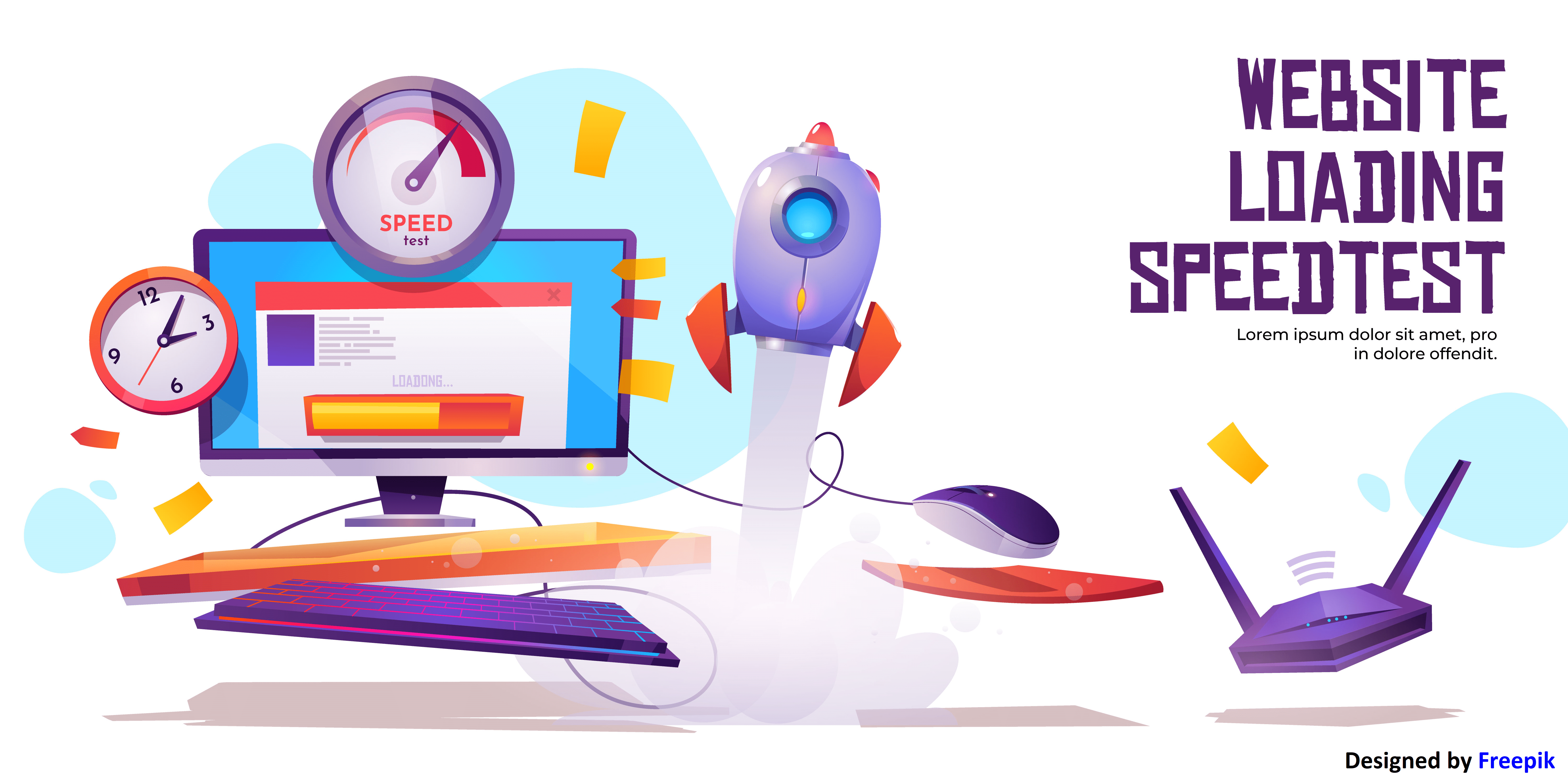
Loading Speed of your Website – Does it Matter?
Website performance means how quickly a browser can load fully functional web pages from a given site. Slow site speed can lead to poor search engine rankings, low overall site traffic, and negative user experience.
Why is website loading speed critical?
Conversion rate:
Many companies have found that a decrease in page load time of a few milliseconds increases conversions:
- Mobify found that reducing its home load time by 100 milliseconds increased session-based conversions by 1.11%
- Retailer AutoAnything's sales increase 12-13% when page load time is halved.
- As a result, improving site performance is a big part of conversion rate optimization.
Bounce Rate:
Bounce rate refers to the percentage of users leaving the website after seeing only one page. If the page cannot load in a few seconds, users will close the window or click away.
For SEO:
A site's performance on a mobile device is significant for SEO.
User Experience:
Long page load times and low response times to user actions create a terrible user experience.
Final Words
Websites with low loading speeds may force visitors to leave the website, return to the search results, and then visit your competitor's website. You need to make sure you have good website hosting and good website speed so that potential customers don't lose interest and keep browsing your website.
Resource
https://www.cloudflare.com/en-in/learning/performance/why-site-speed-matters/#:~:text=Website%20speed%2C%20or%20website%20performance,and%20have%20better%20conversion%20rates
https://www.velocityconsultancy.com/why-website-speed-is-important/
Disclaimer:
Wherever any material is quoted as sourced from the published text with publishing rights vested in an individual, it is stated that it is a pure quotation and has no intention to claim it as our own.
Image Source: www.freepik.com
486 adminApril 5, 2022 Youtube Video

Can Website Redesign Boost Traffic?
Let's look at why redesigning your website is a good idea:
1] Improved Search Engine Rankings:
SEO is essential as the foundation of the Google ranking system. Older sites may not include optimal search engine methods. As you can guess, this will do more harm than good. Lastly, a lot can be done for old websites when it comes to SEO. On the other hand, a redesigned website is guaranteed to increase website traffic. And that's because it optimizes search engine optimization.
2] People Expect Changes and Improvements:
Your customers love your website because it looks innovative and professional. After a while, your clients will see the change or another revision of your website. They want to know the latest information about your company.
3] Better Information System:
Your website is an information center for your brand. It provides potential customers with valuable and relevant information about your business, products, and services. Lastly, this information helps close the deal and increase your website traffic. After all, search engines prefer quality content.
You can make the information on your site more potent by redesigning website services. Think of your website as your leading seller. So it makes sense to start with this. With the website redesign, you can organize the information you need and present it so users can find it easily. It is also essential to have an easy follow-up flow from one page to another.
Providing the best possible experience for your target audience will improve your success rate in gaining more customers. The ever-changing online world sees trends come and go, but your business can survive and evolve online for many years to come with a successful redesign.
Resource:
https://www.cyberoptik.net/blog/why-a-website-redesign-can-boost-your-traffic/
https://blog.hubspot.com/website/why-redesign-a-website#:~:text=The%20most%20common%20reasons%20are,scale%20of%20your%20website%20redesign
https://digitalhubaustralia.com.au/how-a-website-redesign-can-boost-your-website-traffic/
Disclaimer:
Wherever any material is quoted as sourced from the published text with publishing rights vested in an individual, it is stated that it is a pure quotation and has no intention to claim it as our own.
Image Source: www.freepik.com
509 adminMarch 30, 2022

Mobile App Marketing – THE BASICS
Mobile app marketing involves user interaction, from learning about the product to becoming a loyal user. It also involves defining the target audience, learning how to reach them, how to interact with them, and analyzing the behavior in their app to constantly improve as users move through the editing funnel. A mobile app marketing strategy gets users to increase repeat engagement and become loyal advocates for the product.
1] Conducting Market Research To Understand Customers:
One must do thorough market research before launching the app. Before starting any development work, you need to identify the key players in your particular app category.
2] Tackle App Store Optimization (ASO):
Search engines are not the only source to find content. If you want your app to be found organically in the App Store, you need to optimize its descriptive content for app store searches.
3] Social media marketing:
Researchers say that people spend daily more than 1hr on social media. You need to optimize social media channels for branding. If you start promoting your app on social media channels, it helps raise awareness about your product. For example, social media is a great way to build community and get feedback from users who will not be encouraged to contact you through the app or your website.
4] Create A Website Or Landing Page:
Mobile websites are the leading source of app installs. It has become common to create a pre-launch landing page or a teaser video for your product. Once you have the video for your website, you can recycle it by posting it in the App Store, on social platforms, or in paid ads. In addition to creating hype around your app, having a pre-launch website is a great way to get started with building your domain authority and doing some quick search engine optimization (SEO).
Resource:
https://creadits.com/blog/6-fundamentals-of-a-successful-mobile-app-marketing/
https://clearbridgemobile.com/step-by-step-guide-marketing-mobile-app/
https://www.adjust.com/blog/your-guide-to-app-marketing-strategies/
Disclaimer:
Wherever any material is quoted as sourced from the published text with publishing rights vested in an individual, it is stated that it is a pure quotation and has no intention to claim it as our own.
Image Source: www.freepik.com
492 adminMarch 21, 2022

Uploading Mobile Apps on Google Play Store
Almost all businesses have mobile apps to engage their audience. If you are planning to launch your mobile app, the Google Play Store is the best platform to reach billions of users. Now, if you're wondering how to upload your mobile app to the google play store, end your search here. We've covered end-to-end information about the Google Play upload process.
A step-by-step process for uploading an app to the Google Play Store:
1] Creating a developer account: A developer account is required to upload a Mobile app on the Google Play Store.
1. First, Sign in with your Google Account
2. Accept the developer agreement
3. Pay the registration fee, which is $25.
4. Complete your account details
2] Link developer account with Google Wallet merchant account: A merchant account is required to either download the app or receive payment made by users for in-app purchases. All payments will be received in the merchant account.
1. Sign in with your developer account.
2. Go to the menu and click on Report
3. Select financial Report
4. You can set up a Merchant Account by clicking on Set Up Now
5. Mention business details.
6. Hit the Submit button.
7. The merchant account will then be linked to your developer account.
3] Upload the app on the play store: After registering a merchant account, you can now upload the Mobile app to the Play Store.
1. From the menu, select All Applications.
2. Click on Add a New Application.
3. Select language from the drop-down menu.
4. Add titles to your app
5. To upload your app, you can either upload the APK or create a store list.
4] Upload the android package kit (APK): An Android Package Kit is a file format for Android to store, distribute, and install apps on Android devices.
1. From the menu, click Publish Management.
2. Select App Release.
3. Select the type of release for the first release from internal testing, closed testing, open trial.
4. Tap Create Release.
5. Follow the instructions to upload the APK files.
5] Store Listing: In this step, you need to fill in the information about your app to upload your app to Play Store.
1. Add an app title, a short description, and a full description.
2. Add screenshots, images, icons, videos, and other graphic content.
3. Add translations of your app to other languages.
4. Categorize your app into related types and categories.
5. Add contact details.
6. Add a link to your privacy policy to access sensitive data.
6] Content Rating: Rating is important to build trust in your lead. If the app is not rated, it is highly likely to be removed from the Google Play Store.
1. Select the app in the Play Console
2. Click on Store Presence from the menu
7] Choose a pricing and distribution model: You can choose your app for free or for pay. The Google Play Store lets you switch from a paid app to a free app later but does not allow you to switch from a free app to a paid app.
8] Publish your app: Once you are convinced that everything is OK, take the last step to upload the Android app on Play Store.
Resource:
https://www.cubix.co/blog/how-to-upload-app-to-google-play-store
https://appinventiv.com/blog/how-to-submit-app-to-google-play-store/
Disclaimer:
Wherever any material is quoted as sourced from the published text with publishing rights vested in an individual, it is stated that it is a pure quotation and has no intention to claim it as our own.
Image Source: www.freepik.com
586 adminMarch 16, 2022

Why Website Maintenance?
It is essential to update and maintain your site regularly to ensure that your site is running at full capacity. Proper maintenance of your site helps to increase site security, increase the number of new visitors, drive back traffic, and more.
Invest in website maintenance for your website development, and here are the reasons why:
1] It Improves Security:
Many modern websites are based on open-source CMS like Drupal or WordPress. Although WordPress and other systems frequently release security patches, they are vulnerable to hackers trying to take advantage of outdated software. A professional website maintenance service will help keep your website safe and up to date.
2] It Enables Scheduled Backups:
By maintaining and adhering to a regular website maintenance schedule, it allows you to get reliable backups if your system crashes or anything else happens in your website's source program. Recovering with a working backup is easier than starting to rebuild your website from scratch.
3] It Boosts Site Traffic:
SEO increases your site visitors. For top ranking on SERP, you need to update your website regularly. Google does a great job at raising rankings for websites that are updated regularly.
4] Improved User Experience:
Your website must meet the expectations of visitors. This means that strategies to improve the user experience, and ultimately conversion, should be put on your website regularly.
5] Compatibility with Latest Algorithms and Tools:
Websites are rated high in rank if they are fast, error-free, maintained regularly, and contain fresh content. So, in order to climb up in the search result, you must regularly update and maintain your website.
Resource:
https://www.forumone.com/ideas/why-is-website-maintenance-important/#:~:text=Regularly%20updating%20and%20maintaining%20your,boost%20returning%20traffic%2C%20and%20more
https://bochiweb.com/10-reasons-why-website-maintenance-is-important/
https://wirebox.co.uk/the-importance-of-website-maintenance-and-support/
Disclaimer:
Wherever any material is quoted as sourced from the published text with publishing rights vested in an individual, it is stated that it is a pure quotation and has no intention to claim it as our own.
Image Source: www.freepik.com
521 adminMarch 10, 2022 Youtube Video

Securing Mobile Apps
Following are some steps to implement a mobile trial and obtain a hacker-free application:
1] Source Code Encryption:
A major part of the code in native mobile apps is on the client-side. Cybercriminals can easily detect the bug vulnerabilities in the design and source code of mobile applications using mobile malware. Then, using reverse engineering techniques, authentic apps are repackaged into malicious apps and uploaded to third-party app stores to attract suspicious users. Recent reports suggest that malicious code affects more than 12 million mobile devices at any given time. Therefore, developers should ensure that the apps are protected from tampering-proof and reverse engineering attacks. So you need to encrypt your source code, and the encrypted source code will ensure that no one else can access that source code.
2] Platform-specific Limitations:
If you are developing multiple mobile apps, it is better to understand the security features as well as the limitations of the platform and code accordingly. You should also consider different user case scenarios, encryption support, password support, and geo-location.
3] Secure the data in transit:
When a mobile application accesses an enterprise or other confidential data, unstructured information is usually stored in the device storage. In order to protect data from data theft, it is advisable to use a VPN or SSL tunnel.
4] Secure the Backend:
Mobile applications communicate with each other through the API, which is vulnerable to attacks. The backend server should have security measures in place to protect against malicious attacks. Ways to strengthen API security include embedding API gateways, using official APIs in code, conducting code reviews, adding firewalls, using API keys, and using 2-factor authentication and tokens.
5] Cryptography :
Use advanced encryption techniques such as AES and SHA-256 with 256-bit and 512-bit encryption for hashing.
6] Prevent unexpected data pilferage:
When a user interacts with your app, they agree to specific permissions, which allow brands and businesses to collect important personal customer information. By enforcing ethical advertising and using secure analytics providers, you can be sure that your user data will never be inadvertently leaked to hackers or malicious commercial vendors.
7] Complete Dynamic and Static Verification:
Dynamic and static verification techniques are still not prominently designed. Little is it made available for the dynamic versions of mobile apps.
Following these steps can simply help enhance mobile app security.
Resource:
https://huddle.eurostarsoftwaretesting.com/8-things-to-ensure-mobile-app-security/
https://www.flatworldsolutions.com/IT-services/articles/mobile-app-security-tips.php
Disclaimer:
Wherever any material is quoted as sourced from the published text with publishing rights vested in an individual, it is stated that it is a pure quotation and has no intention to claim it as our own.
Image Source: www.freepik.com
597 adminMarch 7, 2022 Youtube Video

AI Platforms for Content
The creative aspect can be enjoyable, but the scientific element is far more challenging. In addition, creating content is a labor-intensive process that takes time, effort, and input.
So wouldn't it be magnificent if there was a way to still take pleasure in the enjoyable aspects of content creation without having to worry about slavishly producing content every day?
You can, due to tools for creating AI content. In addition to your regular content creation efforts, using artificial intelligence can help you increase your output without sacrificing the quality of your production.
What exactly is the generation of AI content?
Everyone is asking this question, but the answer is far from the image of a room full of robots obdurately banging away at keyboards that come to mind. AI content production essentially entails having software do the material building for you. It writes everything from blog posts to digital media text to ebooks, landing sites, emails, product listings, etc., and things in between. There is even a move on the way to creating audio and video content, and the tools in question provide a wide range of abilities. Others excel at writing email subject lines that get opened, while some can make blog entries in the majority with the press of a button.
Content AI and Machine Learning Application Types:
Content production (automation) A few keywords and some tools can generate a complete collection of articles. An AI tool will be better able to write any content that needs to fit inside SEO parameters.
Modern AI systems can update and modify any number of articles at a considerably faster rate than a human content producer, thanks to dynamically changing SEO rules and algorithms.
Personalization of Content
Most online businesses get a wealth of helpful information about their customers. Content customization uses visitor information (such as geographic location, demographics, and shopping preferences) to provide pertinent content based on audience preferences and motivations.
It can be anything from a particular call to action to a dynamic landing page that alters depending on consumer segments based on location or industry! The introduction of intelligent chatbots that choose material for consumers based on their prior interactions may further personalization.
Text mining and keyword research
Some programs can examine the best keywords for improving your website's organic ranking. These programs scour your text-based material for the presence of high-performing keywords that will bring visitors to your website.
Best Artificial Intelligence Content Creation Tools in 2022
- Articoolo: Article Generator Automatic
- Automated Insights' Wordsmith: BI Meets Content Creation
- Grammarly: A Free Online Writing Aid
- Content Spinner by WordAi
- Article Forge: High-Quality Content in 60 Seconds or Less
Resource:
https://mydukaan.io/blog/ai-content-creation-tools/
https://www.jasper.ai/blog/ai-content-creation
https://www.predictiveanalyticstoday.com/artificial-intelligence-platforms/#:~:text=What%20are%20the%20Top%20Artificial,the%20top%20Artificial%20Intelligence%20Platforms
Disclaimer:
Wherever any material is quoted as sourced from the published text with publishing rights vested in an individual, it is stated that it is a pure quotation and has no intention to claim it as our own.
Image Source: www.freepik.com
455 adminSeptember 2, 2022 Youtube Video

How do Companies Benefit from AI
Revenue generated by AI has grown over the years in most business operations using AI technology. The use of AI in businesses has increased since the COVID-19 pandemic.
Businesses should focus on using a range of intelligent technologies for the most significant benefit, from machine learning to natural language processing.
AI can meet three essential business needs:
- Automating business processes
- Gaining insights through data analysis
- Engaging with customers and employees
How can AI benefit a company?
1] Efficiency and Productivity Gains:
Efficiency and productivity gains are the most important benefits of implementing AI within the enterprise. AI technology helps to increase productivity and operational efficiencies. AI technologies are great at driving or even replacing lower-level, repetitive tasks. The technology handles functions at a speed and scale that humans cannot match. AI allows workers to move to higher-value tasks that technology cannot do.
2] Improved speed of business:
The most crucial function of AI is to help companies save time and money by automating and optimizing routine processes and tasks. AI makes quick business decisions based on the output of cognitive technology.
3] Better customer service:
Machines can work 24/7; they don’t sleep, don’t need breaks, don’t get bored. We can Use insights to predict customer preferences and give them a great, personalized experience using AI technology.
4] Increase revenue:
We can increase revenue by identifying and maximizing sales opportunities. All it takes to start is an open-minded attitude and a willingness to embrace new opportunities wherever possible.
Resource:
https://www.techtarget.com/searchenterpriseai/feature/6-key-benefits-of-AI-for-business
https://www.nibusinessinfo.co.uk/content/business-benefits-artificial-intelligence
Disclaimer:
Wherever any material is quoted as sourced from the published text with publishing rights vested in an individual, it is stated that it is a pure quotation and has no intention to claim it as our own.
Image Source: www.freepik.com
472 adminMarch 9, 2022

Chatbots
You can arrange food, plan flights, and get proposals for essentially anything you can consider. Keeping in mind that we're in the good 'old days, the most recent numbers, both as accessible bots and utilization, all highlight a specific something. Selection is developing
If you like it, chatbots and menial helpers are the fate of advertising and client assistance, and that implies they may introduce new open doors for your business moreover.
What Are Chatbots?
Chatbots – otherwise called "conversational specialists" – are programming applications that copy composed or spoken human discourse for the reasons for recreating a discussion or collaboration with a genuine individual. There are two crucial ways chatbots are offered to guests: online or independent applications. Today, chatbots are utilized most ordinarily in the client care space, expecting jobs customarily performed by living, breathing human beings, for example, Level 1 help agents and consumer loyalty reps.
These services of a chatbot can deliver diverse and important life-saving health messages to check the weather forecast or purchase a new pair of shoes and anything else in between.
The chatbot can communicate with you through different social media platforms, such as Facebook Messenger, Siri, WeChat, Telegram, SMS, Slack, Skype, Okay Google many others.
Feature of chatbots are as follow-:
Allowed to investigate: Current conversations can be accessed on the web and in the intranet by seeking customer questions. As the client's knowledge base grows, so do chatbot responses improve, and they can identify which articles were essential and which ones were not.
Logical: An incredible chatbot will have the option to propose and suggest items and administrations for client management based on current or past organizations.
KCS: Short for knowledge-centered service, KCS is a strategy and rules for building and saving hierarchical knowledge. It's extraordinary for making intelligent machines, as it gives bot makers a guide to follow to ensure chatbots are moral, practical, and improve over the long haul.
Privacy: In the wake of ongoing information penetrating, bots are safer than any time in recent memory. Many are currently altogether straightforward about what information they gather and what they use it. Clients regularly have the choice to quit information assortment whenever wanted.
Customized: Along with recalling things like a client's name and purpose behind looking for help, chatbots would now show more compassion and change their language and tone depending on the setting. For instance, they recognize that a flight crossing out is awkward instead of treating it with a lack of concern.
The three best examples of chatbots are as follows-:
Pizza Hut

Pizza Hut clients can undoubtedly arrange pizza for conveyance or carryout from Facebook Messenger or Twitter. Clients can likewise reorder their #1 pizzas, pose inquiries, and see current arrangements.
It should be obvious there's a store of approaches to using chatbots, and the user numbers don't lie. They probably won't have taken over at this time. However, more individuals are getting more mindful of their uses - and more brands are taking advantage of that chance.
Mastercard

Mastercard's Facebook Messenger bot makes it simple for clients to beware of record exchanges (for example, ask, "what amount did I spend on eateries in May?"). With Masterpass, clients can likewise now purchase from Mastercard accomplices like FreshDirect, Subway, and The Cheesecake Factory.
The Wall Street Journal

The Wall Street Journal chatbot makes it simple to keep steady over huge news and stock statements with Facebook Messenger. You can likewise modify alarms type in some essential orders, and you can get organization data, key monetary measurements, and animal cites, alongside the most recent news posts.
Conclusion -:
Chatbot innovation will adjust to us, and making individual chatbots will be as simple as changing the settings on your Fb account or adding an inbox channel to your email. It will know your environmental factors, your own set of experiences, your way of life, and your language. We cannot yet understand or envision it will get help in proper manners.
Resource:
https://kinsta.com/blog/chatbot/
https://www.wordstream.com/blog/ws/2017/10/04/chatbots
https://www.socialmediatoday.com/news/9-great-examples-of-how-brands-are-using-chatbots/524138/
https://blog.ubisend.com/discover-chatbots/what-is-a-chatbot-introduction#:~:text=A%20chatbot%20is%20a%20program,this%2C%20respond%20with%20that)
https://www.conversocial.com/blog/11-characteristics-of-a-super-useful-chatbot
Disclaimer:
Wherever any material is quoted as sourced from the published text with publishing rights vested in an individual, it is stated that it is a pure quotation and has no intention to claim it as our own.
Image Source: www.freepik.com
536 adminFebruary 24, 2022 Youtube Video

Artificial Intelligence is Changing Healthcare and Pharma Fast
The primary goal of health-related AI applications is to analyze tie-up between prevention or treatment techniques and patient outcomes.
Medical science has improved rapidly, but the healthcare system is facing increasing demand for its services, and staff are struggling to meet the needs of patients.
A joint report with the EU's EIT Health explores how AI can improve patient experience, access to healthcare, and pharma services.
Artificial intelligence is used to develop new drugs, fight disease, and more in the pharma and biotech industries. Pharma businesses are utilized AI to increase the success rate of new medicines.
Artificial intelligence is a broad term used in healthcare to describe the use of machine-learning algorithms and software (AI), which mimics human comprehension in the analysis, presentation, and understanding of complex medical and healthcare data. In particular, AI is the ability of computer algorithms to draw approximate conclusions based on input data.
Here are some of the ways that show how artificial intelligence is helping the healthcare and pharma sector:
- Disease diagnosis
- Medical processing
- Data storage
- Manage appointments
- Medical advice and consultation
- Drug interactions and discovery
- Reduces time
- Other applications
1] Disease diagnosis:
Artificial intelligence help in detecting decrease faster, and it helps diagnose it. Al also used to find cures for known diseases such as Parkinson's and Alzheimer's and rare diseases. With the help of Al, the cost of medical treatment will automatically decrease, and the doctors can remotely monitor patients.
2] Data storage:
AI helps to store and monitor patients' data. Doctors can monitor patients' old medical history. It allows doctors to study and cure diseases. Numerous companies are now exploring the possibility of incorporating big data in the healthcare industry through advanced data analytics.
3] Medical processing:
Al is capable of examing the thousands of electronic medical reports.
4] Manage appointments:
An AI-based patient management system improves to automate the work. With an AI system, we can book an appointment with doctors remotely. It is thoroughly Scheduling patients' appointments simplifies the process, thus helping both the doctors and the patients.
5] Medical advice and consultation:
Nowadays, most hospitals have their apps. With the help of these mobile apps, people can read and connect with the doctor and take medical advice or consultation.
6] Reduces time:
With the help of this AI-based application, a patient can connect with doctors remotely. It also helps in data entry and lab test analyses. It reduces routine tasks, which means doctors can focus more on complicated cases and interact with patients.
7] Drug interactions and discovery:
Drug interactions may sometimes become a menace for people taking numerous medications. The machine learning algorithms extracting information about specific drugs and their harmful side effects become easy.
Artificial intelligence and pharma industry.
Examples:
- Novartis pharmaceutical corporation company uses AI to predict untested components researchers should explore to find new cures.
- Tencent Holdings leverages AI to monitor patients remotely.
- To help multinational biotech companies find treatments for rare diseases and Healx uses AI.
- IBM Watson helps match patients with the proper drug trials
- Apple company uses AI to Screen children for autism.
Resource :
https://ehealth.eletsonline.com/2020/01/how-is-artificial-intelligence-shaping-the-healthcare-and-pharma-industry/
https://www.digitalauthority.me/resources/artificial-intelligence-pharma/
https://en.wikipedia.org/wiki/Artificial_intelligence_in_healthcare
Disclaimer:
Wherever any material is quoted as sourced from the published text with publishing rights vested in an individual, it is stated that it is a pure quotation and has no intention to claim it as our own.
Image Source: www.freepik.com
498 adminFebruary 17, 2022 Youtube Video

AI – Applications of AI
Administrative Tasks Automated to Aid Educators:- Non-educational tasks such as task-related duties such as facilitating and automating personalized messages to students, back-office tasks such as grading paperwork, arranging and encouraging parent and guardian interactions, regular issue feedback facilitating, managing enrollment, courses, and HR-related topics can all be assisted by artificial intelligence.
Voice Assistants:- A student can use Voice Assistants to acquire supplementary learning material or support without the involvement of a lecturer or teacher. This reduces the cost of producing temporary handbooks while also making it simple to get answers to frequently asked topics.
Spam Filters:- The email we use every day features artificial intelligence (AI) that filters out spam emails and sends them to spam or trash folders, allowing us to see only the filtered content. Gmail, a popular email service, has achieved a filtration capacity of around 99.9%.
Facial Recognition:- Face recognition algorithms are used by our favorite devices, such as phones, laptops, and PCs, to detect and identify users to enable safe access. Apart from personal use, facial Recognition is a commonly utilized Artificial Intelligence application across various businesses, including in high-security settings.
AI Applications in Gaming:- The gaming industry is another area where Artificial Intelligence applications have gained traction. AI can be employed to generate intelligent, human-like NPCs to interact with the players. It can also predict human behavior, which can help with game design and testing. AI stalks the player throughout the Alien Isolation games, launched in 2014. The game employs two Artificial Intelligence systems: the 'Director AI,' which is constantly aware of your whereabouts, and the 'Alien AI,' which is guided by sensors and behaviors and is always on the lookout for the player.
AI Applications in Automobiles:- Self-driving automobiles are built using artificial intelligence. AI can be combined with the camera, radar, cloud services, GPS, and control signals to drive the vehicle. AI can enhance the in-vehicle experience by adding features like emergency braking, blind-spot monitoring, and steering aid.
AI Applications in Agriculture:- To detect flaws and nutrient deficits in the soil, Artificial Intelligence is applied. AI can analyze growing weeds by utilizing computer vision, robotics, and machine learning techniques. Artificial intelligence bots can assist in the harvesting of crops at a more significant volume and faster rate than human labor.
AI Applications in Social Media:- In social media, AI technology offers a variety of applications, including customer experience management, sales, and marketing management, performance monitoring, and workforce management, all of which give businesses a competitive advantage.
AI Applications in Marketing:- This use of behavioral analysis, pattern recognition, and other AI tools, users can deliver highly targeted and personalized ads. It also aids in retargeting viewers at the appropriate time, ensuring more remarkable outcomes, and reducing emotions of distrust and frustration.
Disclaimer:
Wherever any material is quoted as sourced from the published text with publishing rights vested in an individual, it is stated that it is a pure quotation and has no intention to claim it as our own.
Image Source: www.freepik.com
539 adminJanuary 11, 2022

Augmented Reality (A.R.) Vs. Virtual Reality(V.R.)
Augmented reality and virtual reality technology generate interest in their possibilities for marketing, gaming, entertainment, e-commerce business, and brand development. It sounds similar, but they are two very different concepts.
What is Virtual Reality (V.R.):
Virtual reality is a computer-generated technology to take you in the alternate world or reality. This technology is used in 3D movies and video games. It is also used in training, education, and science. V.R. headsets consist of a head-mounted display with a small screen in front of the eyes and a specially designed room with multiple large screens.
What is Augmented Reality (A.R.):
A.R. can be defined as a system that incorporates three basic features a combination of natural and virtual worlds, real-time interaction, and accurate 3D registration of virtual and natural objects. Augmented reality means putting a digital product in the environment.
Augmented reality technology is designed for unrestricted movement. This technology projects 3D aspect over whatever you were looking at. This concept extends to smartphones with apps and games like Snapchat and pokemon go game, hololens holograms, etc.
Difference between A.R. and V.R.:
A.R. and V.R. are two different things, and each has its weaknesses and strengths. The difference between A.R. and V.R. is that AR uses 25% virtual and 75% natural while V.R. is 75% virtual and 25% real. A.R. does not need a headset, but some V.R. headset device is required. These are some differences between A.R. and V.R.
Resource:
https://in.pcmag.com/vr/109911/augmented-reality-ar-vs-virtual-reality-vr-whats-the-difference
Disclaimer:
Wherever any material is quoted as sourced from the published text with publishing rights vested in an individual, it is stated that it is a pure quotation and no intention to claim it as our own.
Image Source: www.freepik.com
526 adminDecember 27, 2021

Visual Recognition using IBM Watson
How does IBM Watson Visual Recognition work?
Visual Recognition understands visual data. It can turn plenty of images into organized information using deep learning algorithms. Visual recognition can analyze any visual data (images and videos) like objects, scenes, colors, food, faces, and other content. It then displays the results containing keywords and information about the content. IBM Watson visual recognition has some built-in models which help you to recognize people, food, animals, plants, and many more. If you want to use these built-in models, then you need to gather the images that you want to analyze and test them against the built-in models to gain insights. IBM Watson also provides an option to create a custom model to use your own images. For the custom model, you need to prepare the images as the training data and organize them into positive and negative images. After that, you need to upload the examples to create and train a custom model then analyze images using your own model.
As mentioned earlier,we (Avion Technology, Inc) has also worked on the integration and customization of IBM Watson Visual service API in a few of our projects. In one of the projects, the user can upload or capture an image of the tools placed in a tray with his phone. Each tray has pre-defined QR code to identify which tool it contains. When the user captures the image or uploads it, the image is sent to the API. The API analyzes the image and sends the response. The results include the total number of tools placed in the tray, and it also identifies if any tool is missing in the tray along with tool names.
IBM Watson visual recognition has some built-in models which help you to recognize people, food, animals, plants, and many more. If you want to use these built-in models, then you need to gather the images that you want to analyze and test them against the built-in models to gain insights. IBM Watson also provides an option to create a custom model to use your own images. For the custom model, you need to prepare the images as the training data and organize them into positive and negative images. After that, you need to upload the examples to create and train a custom model then analyze images using your own model.
As mentioned earlier,we (Avion Technology, Inc) has also worked on the integration and customization of IBM Watson Visual service API in a few of our projects. In one of the projects, the user can upload or capture an image of the tools placed in a tray with his phone. Each tray has pre-defined QR code to identify which tool it contains. When the user captures the image or uploads it, the image is sent to the API. The API analyzes the image and sends the response. The results include the total number of tools placed in the tray, and it also identifies if any tool is missing in the tray along with tool names.
Why should you choose Avion?
We have a team of experienced developers who have worked on the projects involving both integration and customizations of IBM Watson API. Please do not hesitate to Contact Us, and you will be able to make your vision a reality and a dream come true. Disclaimer: Wherever any material is quoted as sourced from the published text with publishing rights vested in an individual, it is stated that it is a genuine quotation and no intention to claim it as our own. Resources: https://www.ibm.com/watson https://www.ibm.com/watson/services/visual-recognition/ https://blog.gnshealthcare.com/why-ai-is-all-the-buzz#_ftnref1 https://www.researchgate.net/figure/Block-Diagram-Representing-the-Algorithmic-Process-Used-by-the-Visual-Recognition-Based_fig9_325885099 https://www.gminsights.com/industry-analysis/healthcare-artificial-intelligence-market https://www.researchgate.net/publication/325885099_A_Novel_Visual_Recognition-basedAuthentication_Model_Using_a_Hybrid_TrustTheme_to_Verify_Provider_Profilesfor_Enhancing_Information_Assurancein_Online_Healthcare846 adminJanuary 29, 2020
Get a Quote
Starting a project is just a few steps away...